Weather & Climate
Top Cities to Visit
Germany's Islands
How to Get Around
Driving in Germany
Top Attractions
Germany With Kids
Best Festivals
Scenic Road Trips
Where to Go Hiking
Best Beaches
Ski Resorts
Christmas Markets
Food to Try
Beer Regions
Best Time to Visit

Best Time to Visit Germany
:max_bytes(150000):strip_icc():format(webp)/ebephoto-5b7352c3c9e77c005080d5ad.jpg)
TripSavvy / Lisa Fasol
There really is no bad time to visit Germany , but we think the best time to visit Germany is May when the weather has finally warmed, crowds of tourists have yet to arrive, the cherry blossoms are in bloom, and Berlin has exploded into festival season.
However, there are several factors that could influence when you visit Germany . While the end of a long cold winter seems to drag, it is also best for winter sports . When the world awakens in spring festivals, it is often accompanied by thunderstorms. The country is most crowded in summer before it chills to fall when it is time for Oktoberfest . And when snow begins to hit the ground, Germany is at its most charming with its many Christmas markets .
Here is a complete guide to the best time to visit Germany with a month-by-month breakdown of weather, events, and festivals.
Popular Events and Festivals in Germany
The German calendar is full of events , but two major festivals draw the biggest international crowds.
Oktoberfest in Munich: Oktoberfest in Munich is acclaimed as the biggest beer festival in the world. Liters of beers, miles of brats , and Bavarian culture for days, this is quintessential Germany for many visitors. The festival takes place over two weeks from late September to early October and attracts over six million visitors each year.
Christmas in Germany: Christmas in Germany is when everything is a bit more magical. You might not realize how many Western Christmas traditions root from Germany. Along with occasional blankets of snow, the whole of Germany sparkles as weihnachtsmärkte (Christmas markets) open in every small town and city from late November through New Year's Eve .
Weather in Germany
Germany's four seasons are clearly marked by changes in weather.
Winter Weather in Germany: While winter officially begins in late December, temperatures have already dropped dramatically by November. Average lows dip down to 23 degrees F with highs only hitting the low 40s. Snow is fairly common, though most places miss out on the white Christmas. One thing that is for certain is rain, wind, and freezing temperatures. Invest in quality winter gear to survive the cold, particularly if you want to engage in winter sports .
Spring Weather in Germany: After a long, cold winter, Germany wakes up refreshed in the spring ( frühling ). The air is still cool, but sunshine breaks between the clouds and temperatures rise to 40 to 65 degrees F. Rain is still frequent, and with the warmer weather in late spring, there can be epic storms of thunder and lightning. Don't forget your umbrella ( regenschirm )!
Summer Weather in Germany: All of Germany rejoices in summer . Temperatures are usually between 65 to 75 degrees F, but can get downright hot. On days that peak 100 degrees F with high humidity, everyone enters the water— lake , beach , water park , or open-air pool ( freibad ). This is crucial as almost nowhere in Germany has air conditioning.
Fall Weather in Germany: Autumn ( herbst ) offers a welcome cool down from the warmth of summer. Temperatures range from the low 40s to high 50s F until late November when the temperatures really start to plummet. Be prepared for early snow, windy days, and more rain.
Peak Season in Germany
Summer in Germany is peak travel season. While many Germans go on holiday over the warmer months, often coinciding with the summer school break, this is the high time for visitors. Transportation will be more crowded, accommodation prices skyrocket, and airfare is at its highest.
That said, it is still a great time to visit. The weather is at its most enjoyable and festivals abound. Hiking , swimming, and enjoying the country's many biergartens are a key to summer fulfillment in Germany.
There are two more mini-peaks that occur along with the prime festivals of Oktoberfest and Christmas. Be prepared for similar crowds and higher hotel prices during those dates.
January in Germany
The after-Christmas slump is real in Germany and this is a quiet, if cold, time to visit. However, it still has its attractions. Prices during the off-season (which continue until about May) are quite low so this can be a great discount time to visit.
Events to check out: Three Kings Day ( Dreikönigsfest ) or Epiphany is on the 6th for Bavaria, Baden-Wuerttemberg, and Saxony-Anhalt. Berlin Fashion Week is another major event mid-month.
February in Germany
Winter hibernation largely continues outside of the ski slopes and Berlin's international film festival, Berlinale . But the biggest party is for Carnival in Cologne . Men, women, and children don silly costumes and party for a week of events before Lent.
March in Germany
Though the first day of spring happens this month, it is still chilly. However, some people are already stepping back into the outdoors with the help of strong beer.
Events to check out: Starkbierzeit (strong beer season) in Bavaria has been described as the “insider's Oktoberfest" and offers many of the same elements at half the price with a fraction of the tourists.
April in Germany
Spring fairs mean that it is starting to feel like spring as the weather finally warms.
Events to check out: Cannstatter Wasen in Stuttgart and Dippemess in Frankfurt are two of the biggest spring fairs.This is also the month Easter usually occurs so look for hand-decorated eggs (sometimes hanging on trees) and lots of chocolates.
This month ends with a bang for Walpurgisnacht when the witches come out to dance around the bonfire.
May in Germany
Germany sings when the cherry blossoms appear in bloom. Visitors and locals walk the flower-filled paths and enjoy one of the most beautiful months in Germany. This is just before peak season so prices have yet to spike and crowds are still fairly low.
Events to check out: There are some premier events like Erster Mai 's chaotic celebrations of labor, the fireworks of the Rhine in Flames , rowdy parties for Father's Day, and the foodie delights of white asparagus ( spargel ) and fruit wines .
June in Germany
Sommer is in session by June. Enjoy warm temperatures, long, sunny days, and maximum relaxation. Biergartens are now fully open, as are outdoor pools and lake-side beaches . Also remember that summer pleasures translate to the highest airfares and hotel rates as well as long lines for major attractions.
Events to check out: Karneval der Kulturen, Berlin's large festival of cultures, usually occurs this month.
July in Germany
July brings more summer festivals and sunshine fun.
Events to check out: Christopher Street Day (Gay Pride) usually happens this month with the biggest celebrations in Berlin and Cologne.
August in Germany
Laid-back summer vibes continue, including unexpected closures of businesses. Many people leave on vacation and simply shut down while they are away.
That doesn't seem to stop millions of people from flooding into the country. Crowds are at a peak during this month so expect museums , public transportation and events to be quite crowded.
September in Germany
Herbst (fall) begins with the changing of the leaves and many local wine festivals . And as temperatures drop, so do airfares and hotel rates.
Except for the dates of Oktoberfest . If you visit Munich during Oktoberfest , be prepared for high prices on all accommodation .
Events to check out: The highlight of fall in Germany is undoubtedly Oktoberfest when more than six million visitors from all over the world flock to Munich to drink beer and eat sausage. If you like wine, make sure to stop in the town of Bad Dürkheim, which hosts the Wurstmarkt, the world's largest wine festival, each September. For something by the sea, Kieler Woche is one of the largest sailing events in the world.
October in Germany
It is all about the pumpkins and Federweisser (feather wine) this month.
Events to check out: The Ludwigsburg Pumpkin Festival includes giant pumpkin carving and boats made out of massive gourds. Tag der deutschen Einheit (Day of German Unity) is a national holiday every October 3rd. Also try and attend the Festival of Lights in Berlin and the Frankfurt Book Fair .
November in Germany
November temperatures and crowds are at an all-time low before the rush of Christmas.
Events to check out: St. Martin's Day ( Martinstag ) is a celebration for children where they decorate their own lanterns and parade through the night. The earliest Christmas markets open by the end of the month.
December in Germany
Winter is here and Christmas is in the air in December. Among the many traditional events and markets, Germans celebrate each advent quietly at home with family. Check out Dresden and Nuremberg for two of the most historic Christmas markets .
Events to check out: Round out the year with an all-out New Year's Eve ( Silvester ) party. Official celebrations take place in most cities with professional displays, but that doesn't stop revelers from lighting their own fireworks on every street corner. If you prefer something quieter, try to escape to the countryside .
May is a great month to visit Germany because the weather is getting warmer, but the tourists crowds have not yet arrived.
The name of this famous beer-loving festival is deceptive, because Oktoberfest usually begins in late September and continues into early October.
Summer is the peak season for tourists in Germany with many Germans going on holiday during the school break and the warm weather encouraging more people to get outside.
The Best Time to Visit Cologne
The Best Time to Visit Dubai
The Best Time to Visit Munich
The Best Time to Visit the Bahamas
Weather in Munich: Climate, Seasons, and Average Monthly Temperature
The Best Time to Visit Spain
Germany Guide: Planning Your Trip
Spring in Germany: Weather, What to Pack, and What to See
November Festivals in Germany
The Best Time to Visit Frankfurt
The Best Time to Visit Naples, Italy
The Best Time to Visit Nuremberg
The Best Time to Visit France
The Best Time to Visit Berlin
The Best Time to Visit Kauai
Autumn in Germany: Weather, What to Pack, and What to See
- Deutschland
Best Time To Visit Germany
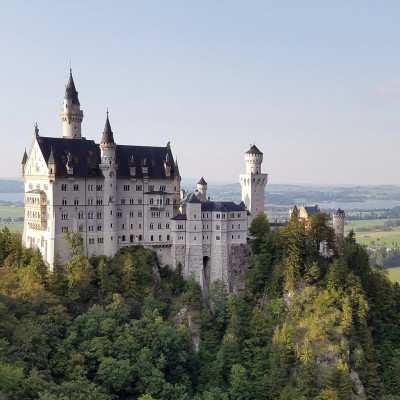
A guide to Germany’s many seasons
Given the variety of things to do in Germany – from festivals and events to forest treks and hiking, the ideal time for a German vacation depends just as much on the weather as it does your preference for particular activities and adventures. Whether you want to visit only the cities or admire the beauty of the Rhine Valley in Germany , you should keep in mind that timing is everything.
The German climate follows a predictable central European pattern – warm between April to August and cold from September to March. If you want to increase your chances of a dry holiday, then visit between July and September. Temperatures during this period fluctuate within the 68°F – 86°F range.
Best Time To Visit
We recommend.
- Visit Neuschwanstein Castle in winter – a fairytale setting
- Go museum-hopping in Berlin
- Ski down world-class slopes at Garmisch-Partenkirchen
- Try out cross country skiing in the Black Forest
- Movie buffs can head to the Berlin International Film Festival – one of the biggest in the world
- Have a good time at the Fasching or Carnival in Cologne
- Sample delicious Easter goodies at the Nuremberg Easter Market
- The Leipzig Book Fair is a must-visit for all bibliophiles
- Welcome pleasant weather with the Frankfurt Spring Fair
- Walk through a tunnel of cherry blossom trees in Bonn
- Sample some of Germany’s finest beer at the Frühlingsfest in Stuttgart
- Head to Beelitz for the Spargelfest and find out why the asparagus is a national obsession
- Hike the Elbe Sandstone Mountains
- Celebrate Bach in his hometown of Leipzig at the Bach Festival
- Explore charming Dusseldorf
- Enjoy beachside bliss at Rügen Island
- Indulge in water sports in Bodensee
- Enjoy a picnic by the Elbe River in Dresden
- Stroll around Lübeck – a UNESCO World Heritage site
- Cruise down the Rhine River
- Drive down the Romantic Road from Wurzburg to Fussen
- Tour the Brandenburg Gate in Berlin
- Be part of the merriment that surrounds the Oktoberfest in Munich
- Cycle around the picturesque town of Potsdam
- Enjoy the scenic landscape as you drive down Germany’s Wine Road
- Witness the migration of cranes at the East Frisian Islands
- Watch Berlin’s iconic buildings light up at the Festival of Lights
- Delight in brilliant fall foliage at the Black Forest
- Try out a spin or two at an ice skating rink
- Be part of the country’s oldest fair at Bremen
- Walk under a million lights at the Royal Botanic Gardens at Kew, Berlin
- Get into the festive spirit at one of Germany’s many Christmas markets
- Welcome the New Year at the ‘Party Mile’ in Berlin
Seasons in Germany
Best Season – The best season in Germany occurs over three periods through the year. You will find the highest number of visitors in the country during these times: June to August, Oktoberfest in September, and the Christmas period from mid-November to mid-December. With the Christmas markets opening across Germany between the 22nd to 29th of November, this is one of the best times to visit Germany. Three of the biggest and most popular markets take place in Berlin at the Charlottenburg Palace, in Leipzig at the Marktplatz (market square), and in Nuremberg at the Nuremberg Market Square.
Off Season – The colder German weather kicks off in November and lasts until March/April. Snow is a common occurrence in the South and East across the likes of Dresden, Stuttgart, Augsburg and Munich, with temperatures dropping as low as 33.8°F. By March, snow is less of an issue and intermittent rain is more common.
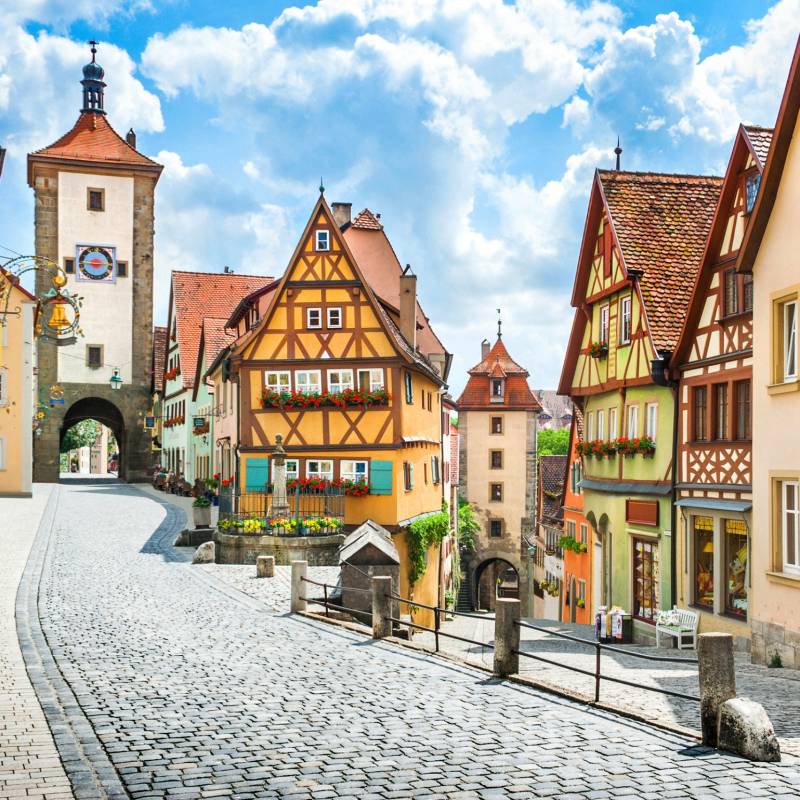
Best Time for Sightseeing
Before you finalize your Germany trip plan , it’s a good idea to be aware of when popular festivals and events are on. The German summer is packed. The Schützenfest Hannover, the Freiburg Wine Festival and the Berlin Culture Festival all take place in July. The Frankfurt Apple Wine Festival is in August. Oktoberfest in September brings huge numbers to every city, particularly Munich. Large crowds and extensive queues are typical during the peak summer months of July to September, so if you prefer it less busy, this might not be the best time to visit Germany despite the great weather. Early summer and October are best if you wish to avoid queues and crowds.
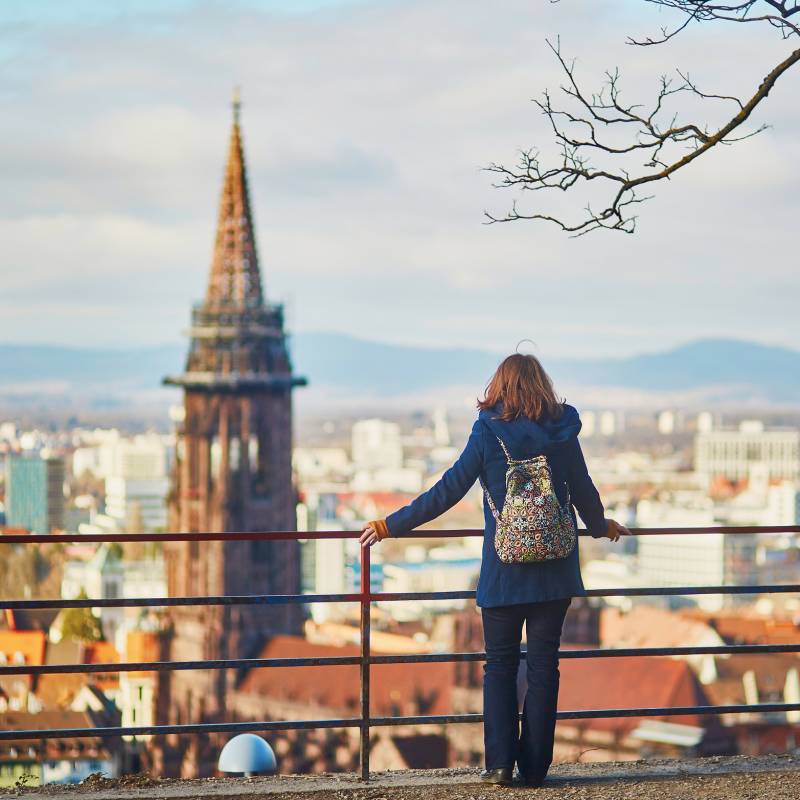
What to Pack for Germany
- Good Walking Shoes – You will get a much better taste of each city by walking. It’s advisable to bring with you at least one good solid pair of walking or running shoes.
- Travel adapter plug – This is a must. And remember–the German one is the two-pronged cylindrical version.
- Rainwear and Sunwear – It’s best to wear comfortable loose clothing and pack a light raincoat and compact umbrella, just to be on the safe side.
- Mobile phone – Check your mobile phone network and have it set up before arrival. It’s also advisable to carry a backup battery or battery pack with you.
- Passport – Please ensure that your passport is valid for at least six months from your date of departure from Germany. You will need about two blank pages in your passport for each country that you visit in Europe.
Our experts are happy to advise you further on when to visit Germany, packing for your trip, and all other essential details. Get in touch with us to plan a private Germany tour tailored to you.

Popular Trips to Germany
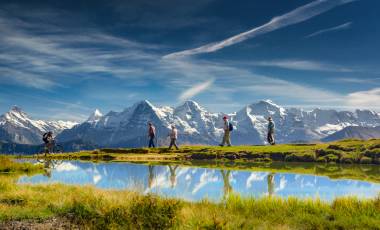
Essential Europe by Rail: Austria, Germany and Switzerland
Discover historic cities in Central Europe by rail, starting from artistic and cultural Vienna by the Danube river in Austria and ending in cosmopolitan Geneva, the heart of modern Swiss culture. Diverse experiences await you on this journey so you can enjoy both cosmopolitan capital cities such as Munich, Salzburg and Zurich, as well as…
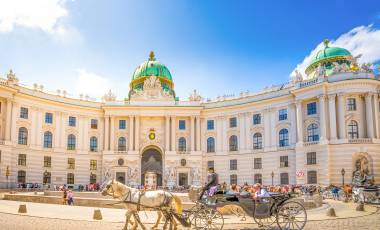
Austria and Germany: Heritage Sites
Grand castles, opulent palaces, stately churches, and more are on the cards as you travel through the historically rich cities of Vienna, Salzburg, and Munich. Art and architecture are the main themes as you visit the most famous buildings and monuments of Vienna. Views of rolling hills and vineyards keep you company as you drive…
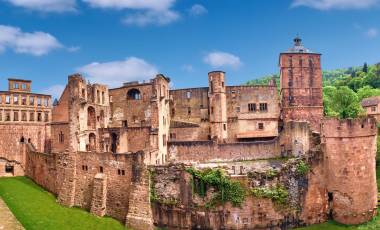
Highlights of Germany
Explore the highlights of Germany, right from Frankfurt, the hub of trade and commerce, to the historic university town of Heidelberg, and the delightfully vibrant capital, Berlin. Traveling in comfort by rail, also visit Saxon stronghold Dresden and the charming Bavarian village of Nuremberg, where World War II history comes alive. End your tour in…
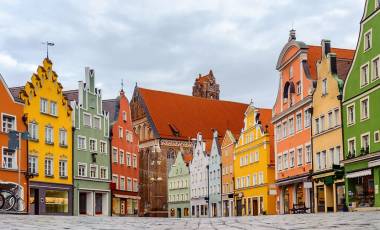
Classic Germany by Train
Discover the must-visit destinations in Germany on this short vacation. Explore Berlin, the hub of modern-day art and culture which boasts a rich and unique history. Iconic Nuremberg in the south offers glimpses into Germany’s heritage with its picture-perfect vistas, museums, and architectural sites, as well as World War II history. End your tour at…

Bavaria's Christmas Markets
Spend your holidays exploring the festive Christmas markets in the heart of Bavaria! Experience the spirit of Christmas on a guided tour of Munich’s traditional markets like Christkindlmarkt, Old Town and Christmas village, where you sample delicious cakes and goodies. Enjoy a romantic boat journey in the Bavarian countryside as you hop from one market…

Road Trip: Bavarian Countryside and Romantic Road
Take a drive through the meandering Romantic Road in the Bavarian countryside, where fairytale castles rub shoulders with pastel-colored, preserved villages, historic sites, and spa destinations. Framed by the distant Alps and ringed in by lush forests, this overland tour will take you deep into the heart of Southern Germany, famed as much for its…
Best Places To Visit
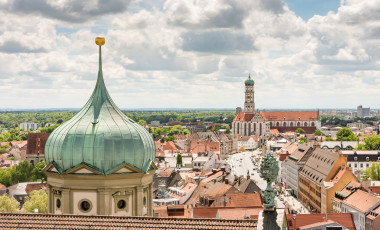
The Bavarian town of Augsburg is a historic palimpsest come alive. Dating back to 2000 years ago when it was founded by the descendants of Emperor Augustus, Augsburg came into its own in the medieval period as a free city and thriving center of the textile trade.
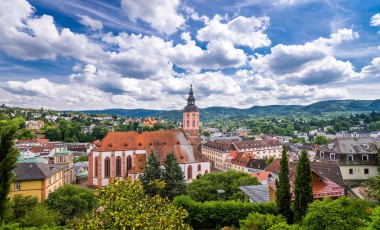
The elegance of Belle Époque comes alive with a contemporary pulse in Baden-Baden, thanks to palatial dwellings, colonnaded public buildings, ornamental gardens by the babbling Oos, hilltop castles, and opera galas.
Baden-Baden
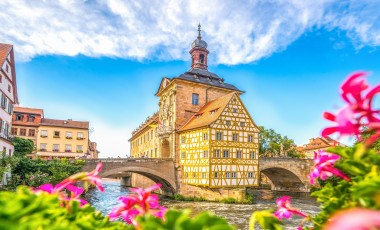
It’s tough to not think of beer in Bamberg, located in northern Bavaria and a town known to have the highest concentration of brewpubs in the world! Home to nine breweries, the region is known for its unique Rauchbier (smoked beer).
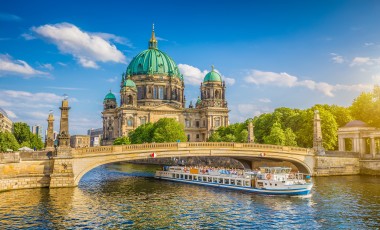
Berlin, the nation’s capital, is a vibrant city with a rich cultural heritage. Associated with famous personalities such as Marx, Bismarck, and Einstein, Europe’s second-most-populous city offers you a peek into its past at every corner.
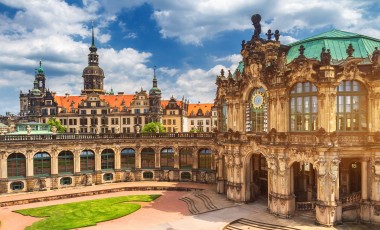
Known as the Jewel Box for its baroque and rococo city center, Dresden is also home to the largest green diamond in the world. The city is known for its dainty porcelain figurines that have a unique identity across the globe.
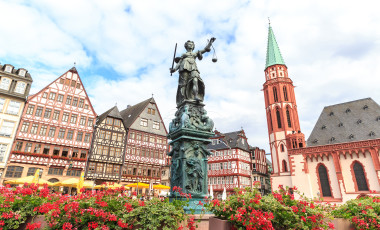
Concealed behind the gleaming glass and steel buildings of Frankfurt is a traditional and charming city. With a past that goes back centuries, this global hub of commerce, culture, and tourism has plenty to offer visitors.
Things To Do
From medieval castles to fairy tale forests, churches, historic cities and Oktoberfest, discover the top ten things to do in Germany from our destination experts.
Despite its excellent safety record, it’s still a good idea to be savvy when visiting Germany’s cities and if you’re out and about at night, especially on your own. Here are the top safety tips from our destination experts.
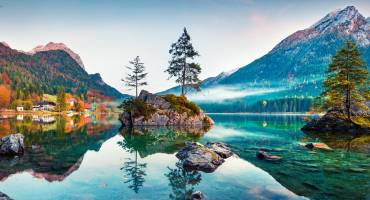
Germany Travel Guide
From the blog.

Top 9 Relaxing Holiday Destinations in Europe
From geothermal spas to celebrated wine and food regions, take a true break from the everyday at these leisurely destinations in Europe.
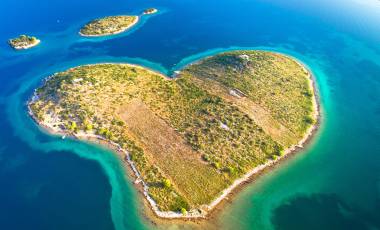
Eight Landscapes You Wouldn’t Expect in Europe
From dramatic ice caps and jewel-toned lakes to remote islands covered in verdant jungle and volcano craters, explore The Continent differently.

The Best Cities to Visit in Europe
Go off the beaten track, and away from the crowds, to experience these charming European gems.
What Our Guests Say

The Enchanting Difference
Authentic & unique.
Our award-winning, licensed local guides provide incredible insights and exclusive experiences for you.
Personalized & Private
Our experts completely customize your private tour to match your interests and preferences.
High-Quality Experiences
All our accommodations and services are personally tested by our team.
Fully Supported Travel
You’ll have a personal and dedicated trip coordinator, backed by 24/7 support in case of emergencies while you’re traveling.
Financial Protection & Flexibility
Your booking is flexible and completely secure with us.
Safe & Secure
Your safety and well-being are our top priorities.
Do you have a vacation in mind? Personalize your itinerary with our Trip Builder.
- Meet the Team
- Work with Us
- Czech Republic
- Netherlands
- Switzerland
- Scandinavia
- Philippines
- South Korea
- New Zealand
- South Africa
- Budget Travel
- Work & Travel
- The Broke Backpacker Manifesto
- Travel Resources
- How to Travel on $10/day
Home » Europe » Best Time to Visit Germany – MUST READ • 2024 Guide
Best Time to Visit Germany – MUST READ • 2024 Guide
Germany is a land of deep forests, medieval towns, and hearty cuisine. Narrowing down the many options of things to see and do is almost as hard as choosing the best time to visit Germany.
Whether you’re planning an Alpine escape among half-timbered houses, a city tour to take in the culture and architecture, or party up a storm at Oktoberfest, Germany offers something to suit all tastes.
Of course, like most destinations, different seasons bring a different perspective, and it’s good to know these before you begin planning your German vacation. While summer brings great weather for sightseeing, it’s also the most popular time for travel, so prices are inevitably higher and crowds are much larger.
Choosing the best time to visit Germany will largely depend on the experience you’ve been dreaming of – visiting historis sites? Hitting the Christmas markets? We’ve gathered all the info to make your decision easier.
Best Time To Visit Germany – April and May, September and October
Best Time To Go To Berlin – April and May, September and October
Best Time To Go To Munich – Autumn (September and October)
Best Time To Go To Oktoberfest – September and October
Best Time For Sightseeing – Spring (April, May) and Autumn (September, October)
Cheapest Time To Visit Germany – January
When is the Best Time to Go to Germany?
When to visit germany – a month by month breakdown, faq about the best time to visit germany, final thoughts on the best time to visit germany.
Germany is a country of contrasts – from abundant natural beauty to thriving cosmopolitan cities, from hard-hitting history to contemporary cool. There’s such an abundance of experiences to be had, that whenever you choose to travel to Germany , you won’t leave disappointed.
The summer months (between May and September) are the best months to visit Germany in terms of weather. Wherever about in Germany you stay, the weather will be pleasant. The later in the season you visit, the higher the chances are that you’ll experience some rain, but from May to June conditions are ideal for sightseeing.
While this is the best time to visit Germany in terms of weather if you’re hoping to avoid large crowds and peak season pricing on flights and accommodation, it’s probably best to plan your trip for the shoulder seasons in spring and autumn.
Spring (April to June) is a good option if you want to find that sweet balance between fewer crowds and lower pricing, while still enjoying pleasant weather. The weather in the spring can be somewhat unpredictable, sometimes offering you a glimpse of all seasons in just one day.
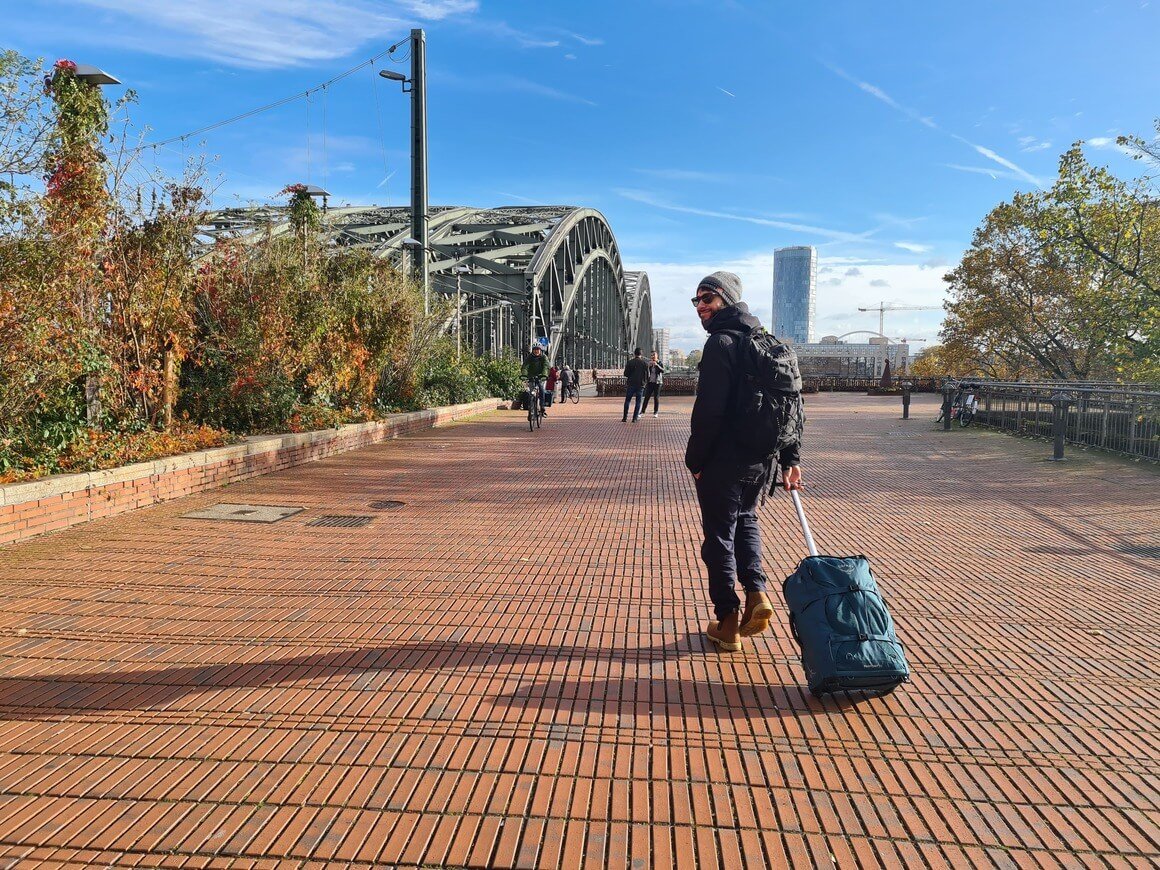
The Broke Backpacker is supported by you . Clicking through our links may earn us a small affiliate commission, and that's what allows us to keep producing free content 🙂 Learn more .
But if you’re not deterred by that, you can pick up some really good deals on flights and accommodation, and will enjoy a much more laid back experience without long queues.
Autumn (September to mid-October) starts off warm and mild in September but by October the cold is moving in and the weather can be slightly gloomier. Dazzling Autumn colors blanket the landscape, crowds are few, and you may even pick up a good deal on your room.
Winter is the quietest time to travel to Germany unless you’re hitting the Bavarian Alps for some winter sports or hoping to take in one of the many renowned festive markets. Germany gets fairly cold in winter, with snow and rain and grey skies. Dress warmly and check out our Germany packing list for insider info.
While it’s technically low season, the Christmas period does see a spike in tourism, so expect bigger crowds and inflated pricing around that time. November is very quiet, but be warned that a lot of hotels close at this time for maintenance before the Christmas rush, so plan ahead to avoid disappointment.
Best Time to Go to Berlin
The edgy and the contemporary exist alongside historical monuments and reminders of the city’s tumultuous past. There is a lot to do in Berlin offers an abundance of museums, architecture, art, and nightlife, enough to warrant more than one visit to fully explore this enchanting city.
If you are wanting to sample Berlin’s raucous Techno and nightlife scene – then you will not be disappointed at it is one of the best parties in Europe .
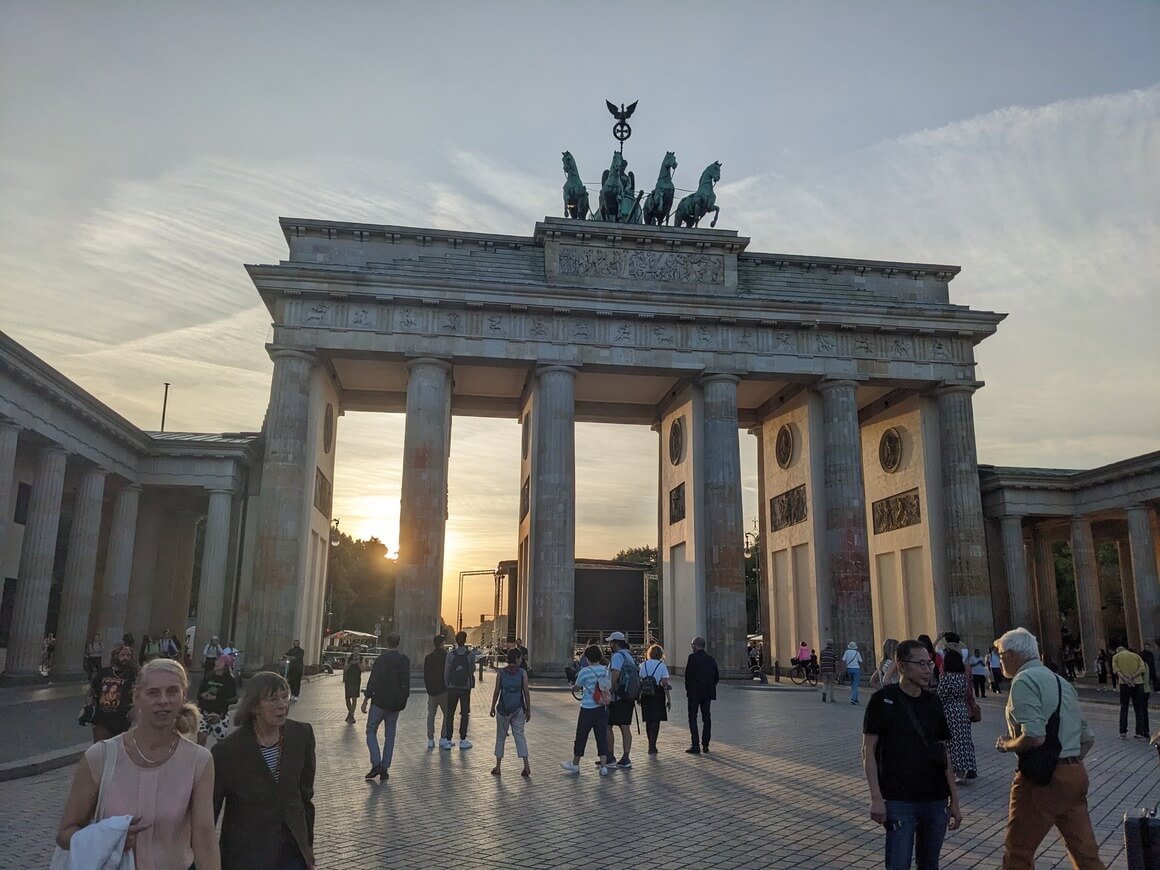
Between May and October, you’ll enjoy great weather that’s perfect for being outdoors. It can get muggy and humid in June and July, with rain possible at any time. From July onwards, the air dries out as does any potential for rain. Temperatures hover in the low 20s (Celsius) so it’s not overwhelmingly hot.
The city really comes alive in the summer with loads of events and festivals across Berlin. This is the peak season in Berlin, so expect crowds of tourists, longer queues, busier streets, and high pricing on everything from rooms to flights, and taxis.
Winters are particularly grey and rainy and can get quite chilly. It does snow occasionally but usually not more than a light dusting. Low prices and crowd-free experiences are the order of the day in winter, except over the Christmas holidays when tourism spikes. The Christmas markets are a real treat at this time, renowned as some of the best in Europe.
Spring and autumn offer mild and warm conditions with the added benefit of great pricing and fewer tourists. The weather can be a little variable at this time, so pack for all seasons.
The city is popular so maybe book your Berlin accommodation ahead of time.
Best Time to Go to Munich
Beer, BMW, and oodles of quirky Bavarian charm make Munich a popular destination with tourists. With a history dating back to the Roman Empire, the city features ornate architecture that will appease art lovers, while history buffs head out on a World War II walking tour. Each Munich neighbourhood has its own character.
A great year-round destination, Munich sees its peak tourist season in September and October as a result of the famous Oktoberfest. If you’re looking to avoid those crowds and still enjoy pleasant weather, early September is the ideal time for a visit, and you may find some good deals on rooms and flights too.
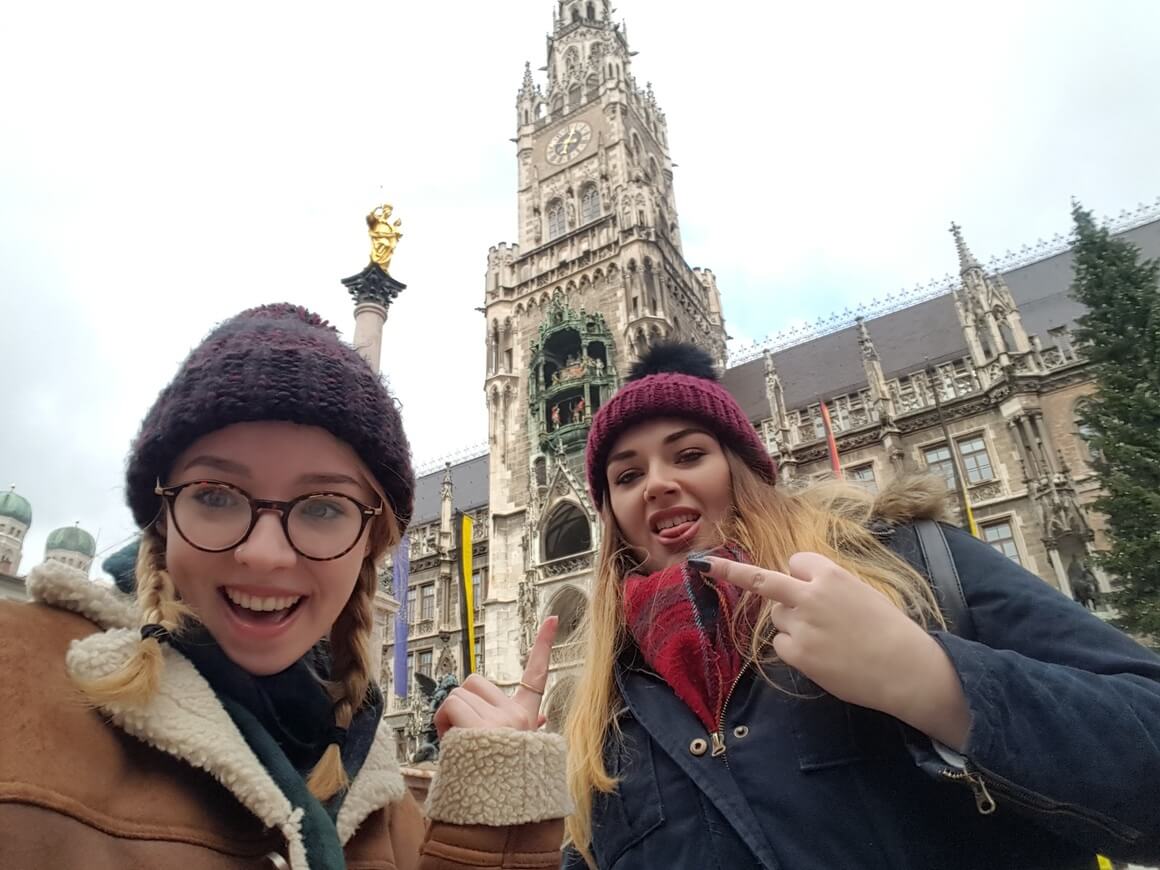
Winter is very quiet in Munich in terms of tourists. The days are short, grey, and wet, but the city is blissfully free of tourists and rates are good. The only exception is over the Christmas period when the city sees a peak in visitors coming to enjoy the festive markets.
Summer is when the city sees its peak rainfall, with June and July receiving the most precipitation. However, the temperatures are pleasant, lingering in the low 20s (Celsius) – perfect for sightseeing. The only downside is that it’s a busy time for tourism so expect long waits, queues at attractions, and heftier pricing – book your hostel in Munich early to lock in the best prices.
Best Time to Go to Oktoberfest
Giant frothy mugs of beer and tasty German delicacies are the star of the show at this famous two-and-a-half-week-long festival in Germany . This celebration of Bavarian culture has been in existence since the early 1800s and has grown into a world-renowned and heavily-bucket-listed event.
Contrary to what the name would suggest, the festival begins in mid-September and ends in the first week of October. Due to its popularity, it’s essential to plan thoroughly and book well in advance to avoid disappointment.
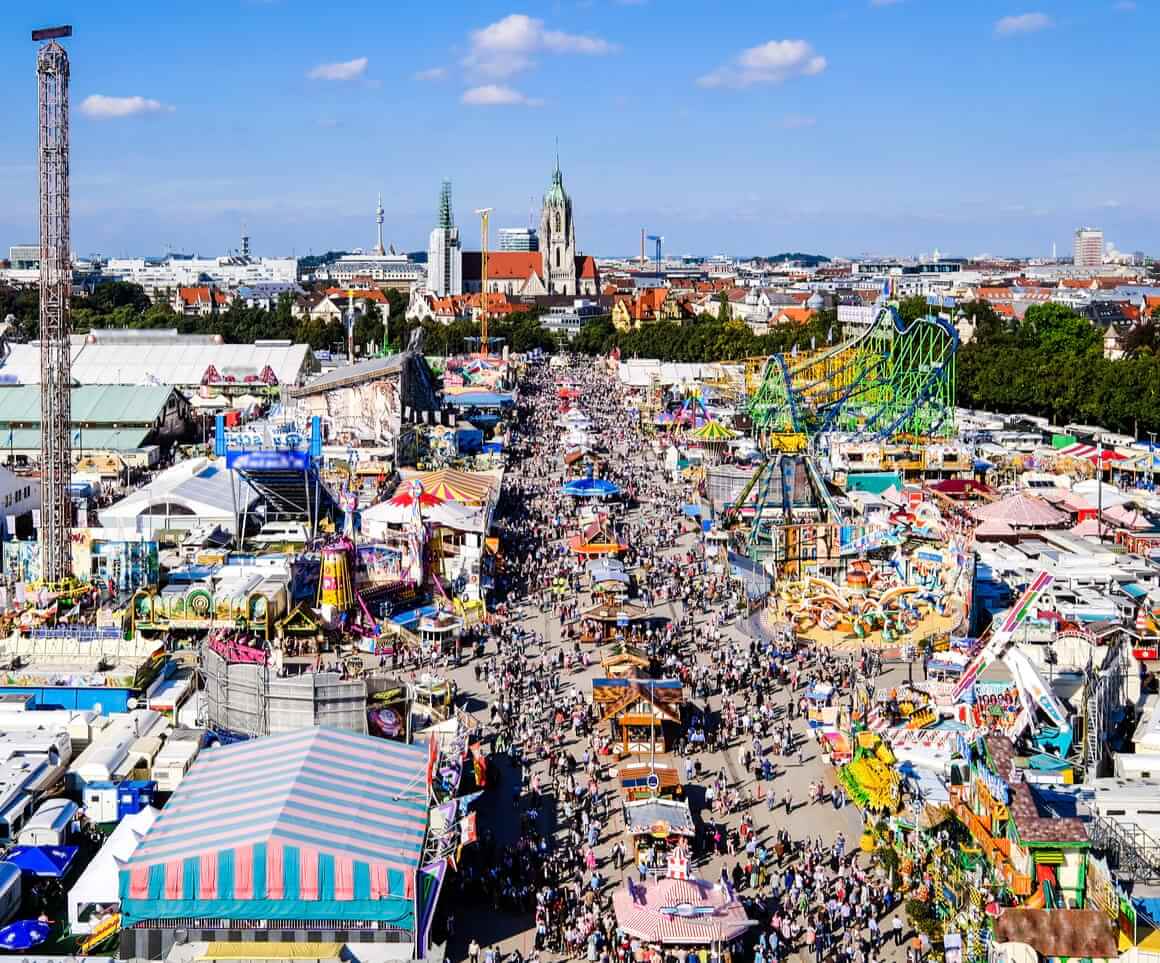
Large crowds and pricey accommodation are to be expected, but careful planning can still help mitigate the costs.
The best time to go to Oktoberfest is as early as possible in the day. Weekends can get very busy, especially later in the day, starting from just before lunch. Weekdays are fairly quiet and pick up after 18:00 when it can get very busy.
It’s a good idea to book a table – this saves you having to hover and wait in extremely long lines for a drink.
Best Time for Sightseeing in Germany
Sightseeing in Germany is best enjoyed in the summer months when the weather is warmer. However, this is the peak season when prices are higher than at other times of the year. Expect long lines at popular tourist attractions and jostling crowds wherever you go.
Late spring is a good time to enjoy pleasant (if a little variable) weather before the major crowds hit in summer. This will mean a much more enjoyable sightseeing experience without long queues. April and May can also yield some good deals on hotels and flights.
Similarly, October can be a very good time for sightseeing once the Oktoberfest crowds have departed. It’s still warm and mild, with rain becoming more frequent towards the end of the month. Sightseeing at this time will be much more laid back without the throngs of other tourists.

Wanna know how to pack like a pro? Well for a start you need the right gear….
These are packing cubes for the globetrotters and compression sacks for the real adventurers – these babies are a traveller’s best kept secret. They organise yo’ packing and minimise volume too so you can pack MORE.
Or, y’know… you can stick to just chucking it all in your backpack…
Best Time for Visiting Munich
Munich can get quite warm during the summer with temperatures in the mid-to-high-20s. While this would ideally be a good time to visit Munich, the crowds of peak season will be at their largest, making it slightly less appealing.
The shoulder seasons of spring and autumn offer visitors the chance to enjoy relatively uncrowded sightseeing while still enjoying mild and pleasant weather. Of course, the chance of rainfall is an ever-present reality, but April and October both offer slightly less chance that your plans will be rained out.
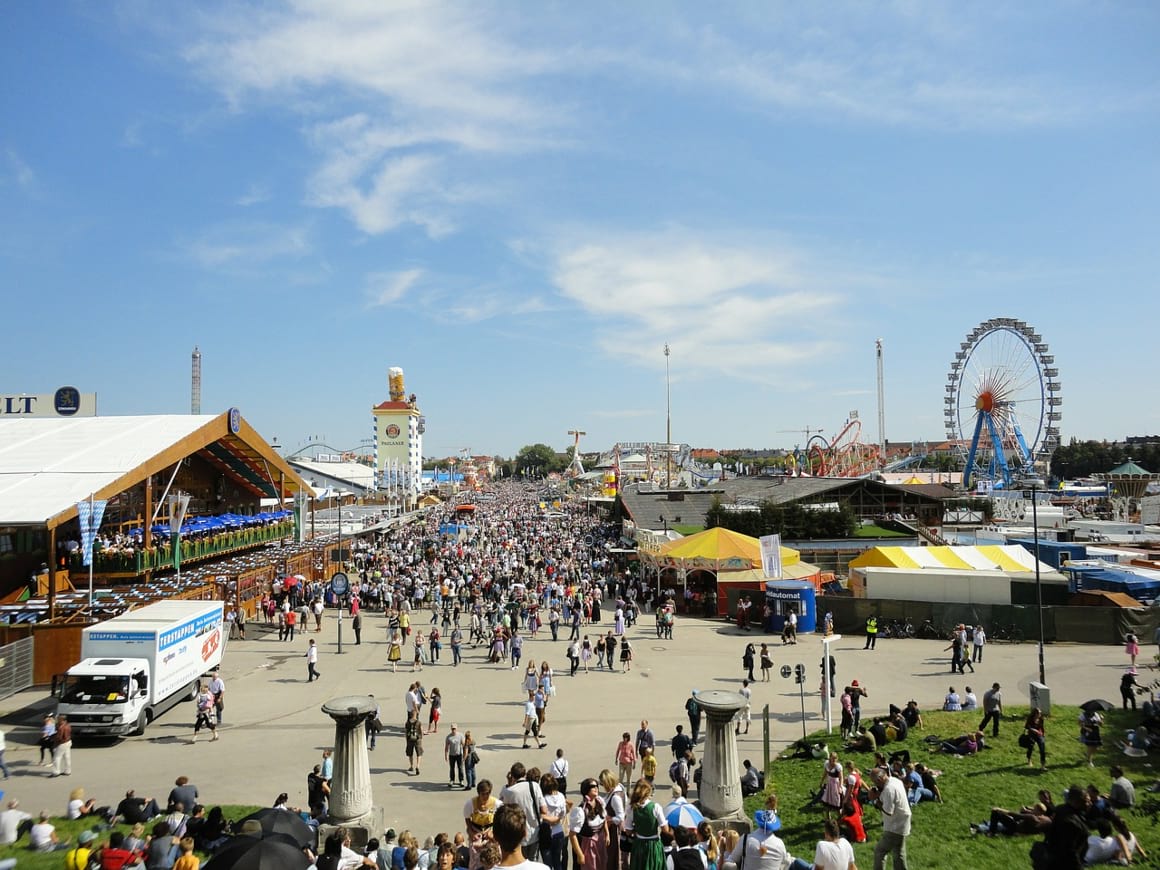
The first week of October in Munich is still very much Oktoberfest, and likely to be very busy. Accommodation and transport will likely come at a premium during this popular time.
The winter season is cold and wet and gloomy. Occasional snow is possible, but usually, it doesn’t stick around for too long. While this isn’t the kind of weather that lends itself to pleasant outdoor sightseeing, it does offer you the chance to see the sights without fighting through thick crowds of other tourists.
The Christmas period is an exception to this. Tourism peaks over this time, raising prices and filling the cities up. The famous festive markets attract visitors from all over Europe at this time. While this is a lovely time to be in Munich, if you’re not up for crowds, maybe give it a miss.
Cheapest Time to Go to Germany
The incredible variety of things to see and do in Germany make it a popular destination all year round. There’s rarely a time during the year when you won’t be among other visitors, but there are most certainly times of the year when you can visit Germany at a lower cost.
Generally, the winter months are the cheapest time to visit – unless you’re headed to the mountains for some winter sports, or hitting the cities over Christmas. This is also the least crowded time on the calendar to visit.
Summer is always more expensive as throngs of tourists make their way to Germany for their summer vacation.
Booking well in advance for peak season and event-related travel is always advisable, and a good way to try to keep costs down. If you’re heading to Germany in the low season, you could change your luck and hold out for a last-minute deal. The low season is the best time to visit Germany for good value.
Busiest Time to Visit Germany
The peak summer season (June to August) is the busiest time to visit Germany. Hordes of tourists flock to the many attractions and sights, making sightseeing sometimes very difficult. While the weather at this time is ideal, it comes with the downside of long waiting times and jostling for a glimpse of the sights.
Outside of the high summer, Germany sees a spike in tourism over mid-September and October for the annual Oktoberfest. Large (very jolly) crowds and higher pricing are expected over this period, and anyone wishing to attend should book well in advance to avoid disappointment.
Germany’s cities are well known for hosting some of Europe’s best Christmas markets . As a result, tourism sees another healthy spike over the December and early January period. This is a magical time to visit for a healthy dose of Christmas spirit, but if you’re wanting to avoid crowds, think twice. It can also be dammed cold so dress up warm in order to stay healthy in Germany !
More tourists always guarantee elevated pricing on rooms and airfare, as well as much longer queues and waiting times at popular attractions.
Weather in Germany
Germany’s weather is generally quite temperate and mild. The summers are warm and not overly hot, and the winters are cold but not too icy. Of course, parts of the country lie at much higher, Alpine elevations, causing temperatures here to plummet in the winter.
The east of Germany generally experiences cooler conditions – winters are harsher here and summers milder – while the southwest of the country is warmer all-round, feeling decidedly Mediterranean.
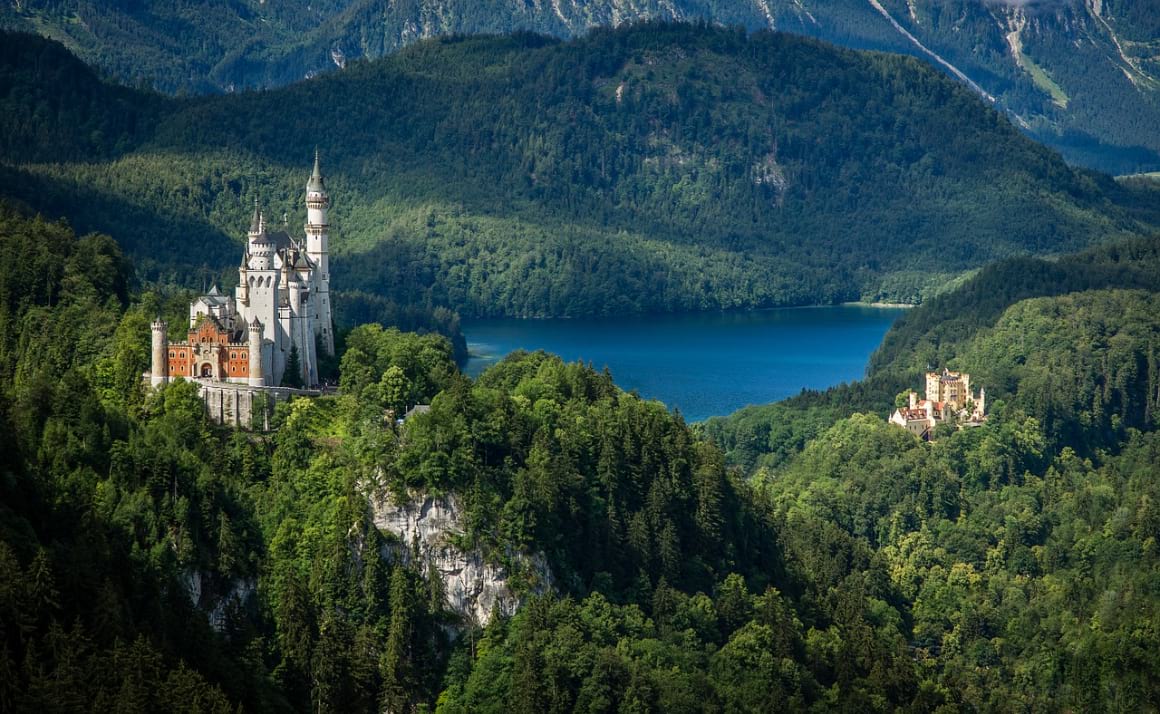
Rain falls throughout the year, but the rainiest season is by far the high summer. Between rainy days, the summers are characterised by warm and sunny days, reaching the mid-to-high-20s (Celsius).
Winters are gloomy and cold and wet for the most part. The further east one travels in Germany, the harsher the winter conditions become. The Alpine regions in the south also see harsher winter conditions due to altitude.
Between March and April, temperatures warm steadily with occasional afternoon thunderstorms becoming more frequent. The autumnal month of September can still offer lovely warm weather, but this peters off significantly towards late October when the first hints of winter start to make themselves known.
Where is the Best Weather in Germany?
Germany’s weather is impacted by a number of factors – the cool coastal currents in the north, Siberian cold waves coming from the east, and Alpine altitudes in the south.
The mildest weather in the country is found in the south-west. This is the prime wine-growing region of Germany as a result, with the climate feeling distinctly Mediterranean and warm.
Summer, while warm and mild, is also the peak rainfall season in Germany. While rain can be expected throughout the country at all times of the year, the northernmost regions of Germany expect more frequent rain. In the rest of the country, summer rain arrives in the form of late afternoon thunderstorms which can serve to cool things down.
September is considered a lovely time to visit Germany – not only is the autumn foliage at its most spectacular, but there’s less chance of rain while still being pleasant and warm.

Stash your cash safely with this money belt. It will keep your valuables safely concealed, no matter where you go.
It looks exactly like a normal belt except for a SECRET interior pocket perfectly designed to hide a wad of cash, a passport photocopy or anything else you may wish to hide. Never get caught with your pants down again! (Unless you want to…)
Festivals in Germany
In a country with such a proud beer-drinking tradition, any reason to come together and celebrate over a beer is welcomed. Celebrations include historic festivals, age-old traditions, and more contemporary celebrations, enough so that there’s something to suit just about any traveler.
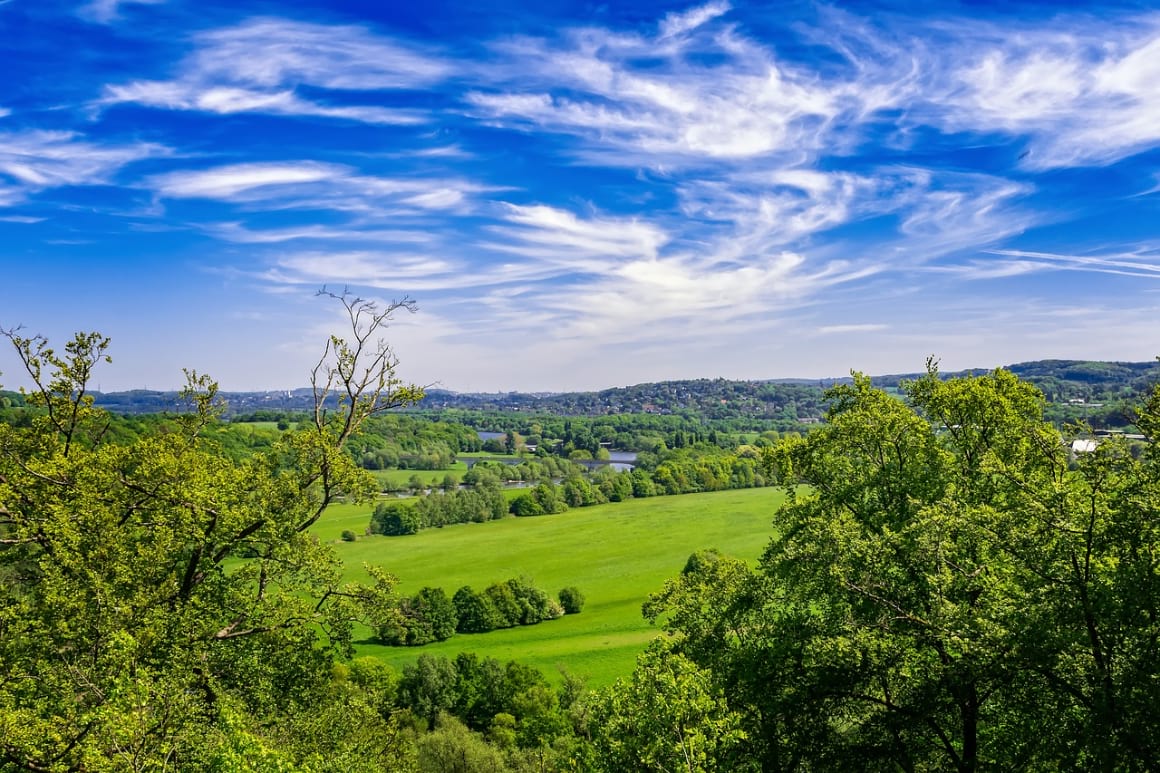
- Oktoberfest :
The most well-known of all German festivals is the age-old Oktoberfest. This festive gathering has been going since the early 1800s and continues to draw large crowds of over six million visitors each year.
Traditional food, authentic beer, and a great vibe are the order of the day, along with amusement rides, stalls, and games.
- Christmas Markets:
Germany’s Christmas markets are renowned as some of the very best in Europe. Across the country, quaint town squares are lit up with twinkling lights and adorned in decorations to create the perfect winter wonderland. Visitors come from far and wide to shop for gifts, enjoy a gluhwein as they browse, and soak up the festive cheer.
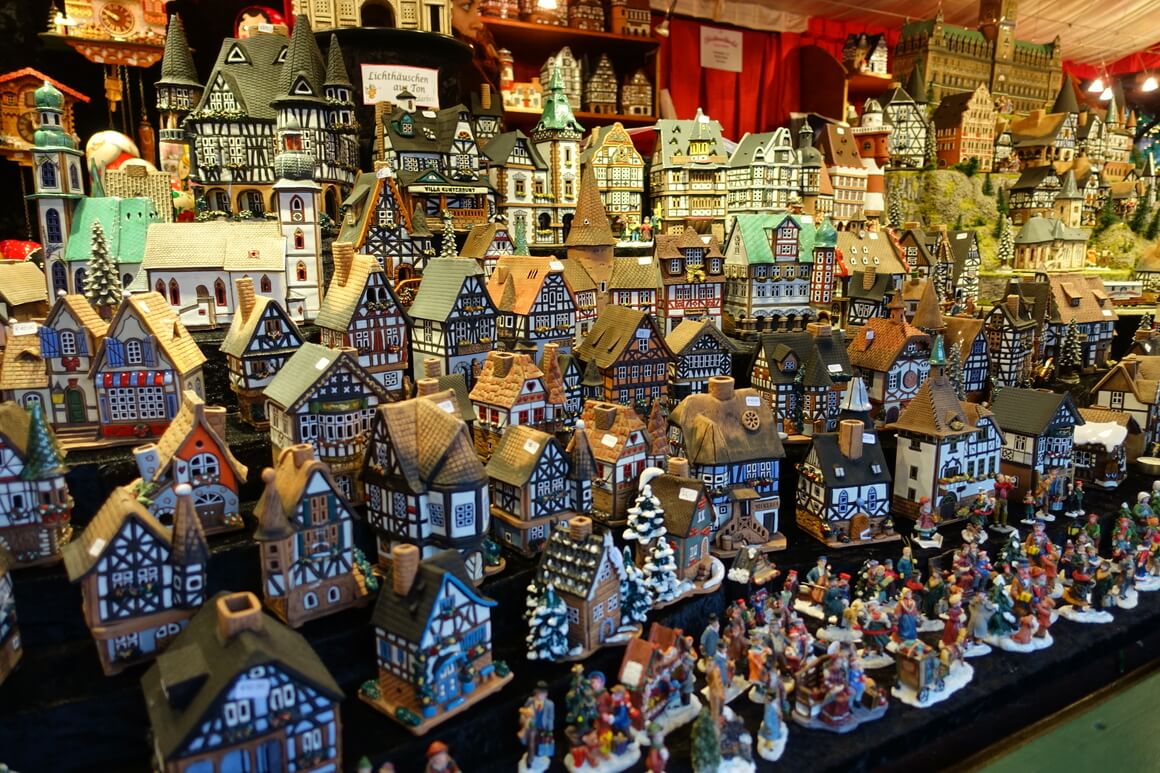
Berlin, in particular, is a treasure trove of over 60 markets.
- Frankfurt Spring Fair :
This medieval market has been in existence since the 14 th century and is a popular Easter-time event that attracts almost three million visitors annually. The fair does in fact take place twice a year – once in April, and again in September.
What started as a market where potters would come to peddle their wares, the event gradually expanded to include carnival rides and booths and is now known for its high-tech fairground rides. Don’t miss the rollercoaster and the amazing view of Frankfurt from the top of the Ferris Wheel.
- Berlin Culture Festival and Carnival :
This vibrant and colorful celebration takes place over four days in Berlin in the spring.
Celebrating cultural diversity and the many ethnic groups that come together in this dynamic city, the carnival includes parades, street festivals, dancers, and musicians.
- Jazzfest Berlin:
One of the world’s top Jazz festivals, the Berlin Jazzfest attracts top musicians, big bands, and ensembles from all over the world to delight jazz lovers over four days.
Running since 1964, the festival is the longest-running of its kind in Europe. Performances are staged at a number of venues throughout the city and are usually filled to capacity.
Meaning ‘free market’, the Freimarkt is one of the oldest fairs in Germany. Every year since 1053 AD, the fair has taken place in Bremen over October and November. Today, the celebration includes a street party, carnival rides, a street parade, and fragrant stores selling pastries and treats.
Every month of the year offers something slightly different for travelers to Germany. If you haven’t yet settled on the ideal time to travel, we’ve broken things down by month to further assist you with choosing the best time to visit Germany that will give you the experience you’ve been dreaming of.
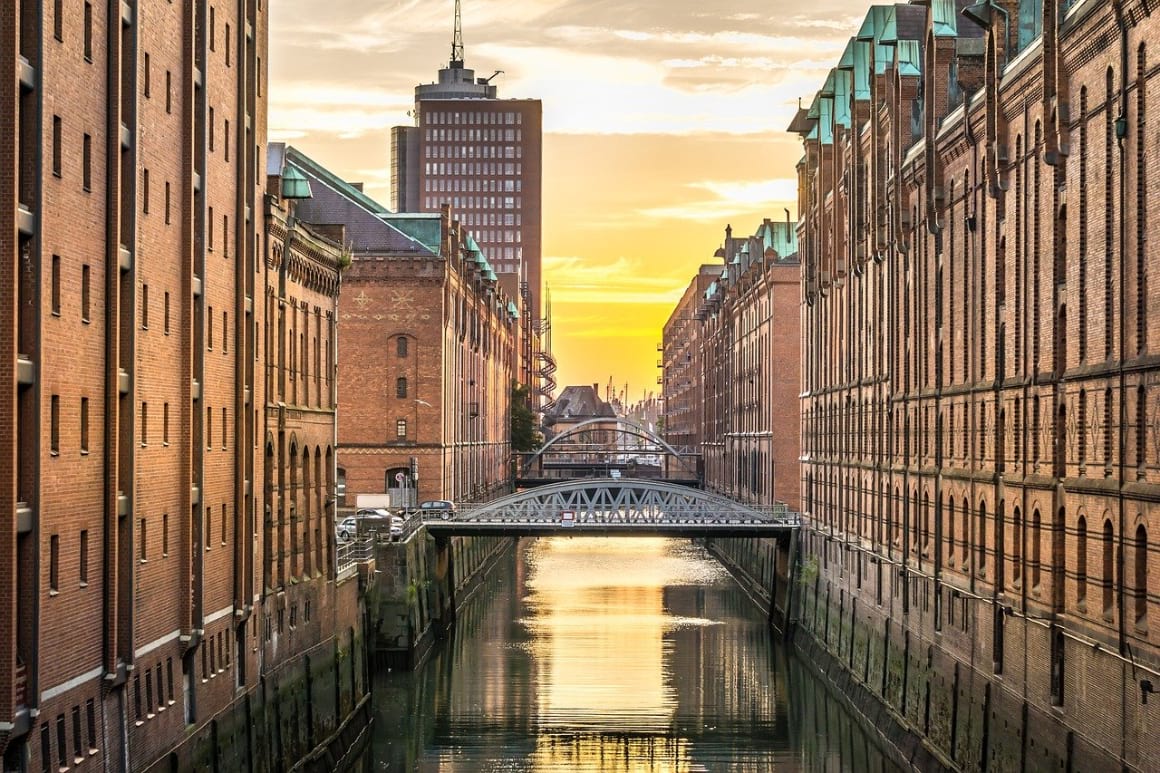
January in Germany
January is usually the coldest time of year in Germany. The northern parts of the country are more likely to experience steady rain instead of snow, while in the southern regions of the country, towards the higher altitudes, snow is more common.
Days are generally grey and gloomy, and only feature on average less than eight hours of daylight. Of course, this does have the pleasant side effect of attracting fewer tourists, which means you’re more likely to snag a good deal on rooms and flights.
February in Germany
The weather in February is similar to that in January – cold and wet, although slightly warmer. It’s likely that the sun may peek out more often too. If you’re visiting the east or the south, you’ve more chance of seeing snow.
It’s still low season, so you’ll have some relief from the crowds and expense of the peak, but you’ll need to dress warmly.
March in Germany
The beginning of the month will still feel decidedly wintery, but this changes gradually towards the end of March. The days get steadily longer, and the temperatures can frequently surpass the single digits (Celsius).
You can expect rainfall during March, and still, the occasional chilly snap – dressing in layers is highly recommended.
April in Germany
By April, there’s no doubt that spring has arrived. Temperatures rise to the mid-teens, and while there’s still some rainfall about, outdoor sightseeing is far more pleasant. The summer crowds haven’t yet arrived in full force so you’ll be spared the long queues and throngs of peak season.
Sunny, warm days are more dominant, but the occasional rainfall is to be expected. Nights and early mornings can still be a bit chilly. This is the ideal time to head to one of Germany’s National Parks .
May in Germany
From a weather perspective, May is the best time to visit Germany. The landscape is in full bloom, the mercury is hovering in the low 20s, and sunny skies are plentiful. There is a high chance of rainfall, but usually in the form of an afternoon shower.
With the good weather, tourism starts to pick up. This means larger numbers of other tourists and an increase in hotel prices. If you’re planning to visit Germany in May, book well in advance.
June in Germany
Summer in Germany is fairly mild with temperatures in the mid-20s. It’s not too hot, but it can, depending on where you are, get somewhat humid. Southern Germany experiences much warmer summers, while the north can still get chilly on occasion.
Tourists are everywhere, and things can start to feel crowded. If you’re visiting in June, make sure to plan well in advance.
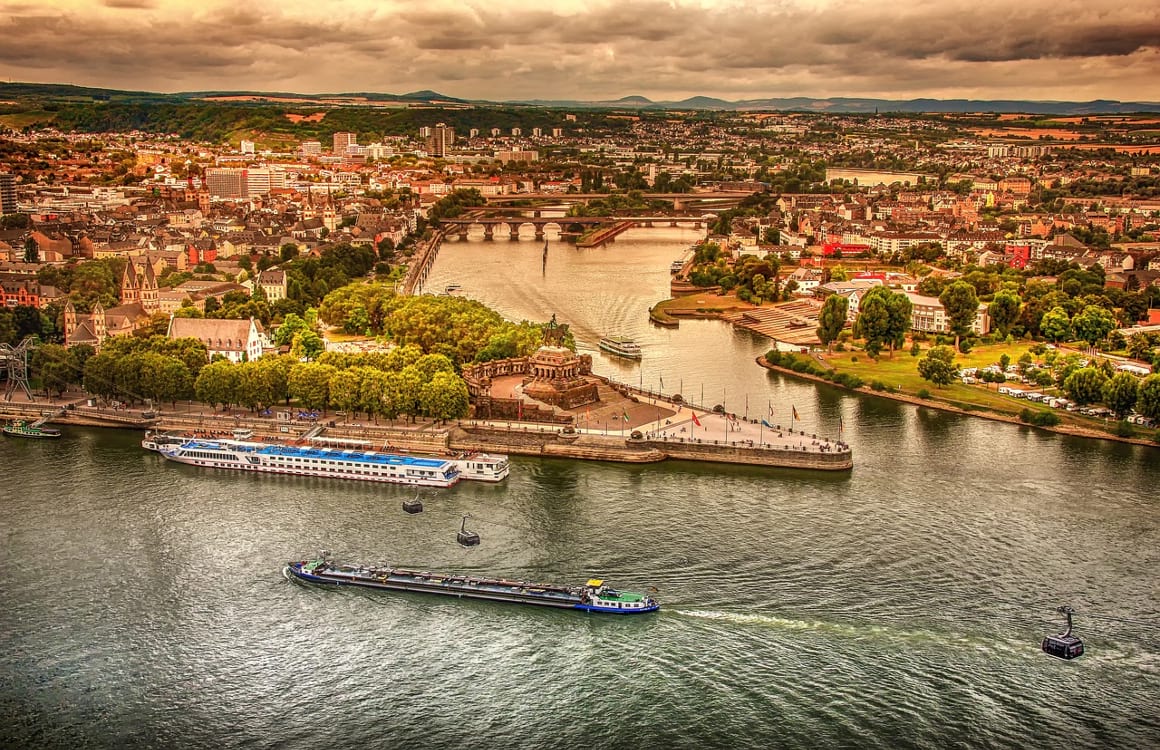
July in Germany
Lovely hot days cooled by a nice breeze are common in July. Temperatures hit the high 20s, and if you’re visiting inland, expect higher humidity. Occasional rainfall is possible but serves to cool things off pleasingly.
July is the peak season, so you’ll almost always be among crowds of other tourists. Expect long waits, seemingly endless queues, and heavier prices on airfare and accommodation.
August in Germany
August is one of the rainiest months of the year in Germany. While this doesn’t decrease the average temperature too much, it increases the humidity, meaning it can start to feel warmer than it is.
It’s still high season in Germany, so attractions will still be busy and bustling.
September in Germany
Temperatures drop into the low 20s – still pleasant and warm – and rainfall tapers off slightly. It’s a great time to do some sightseeing in the first half of the month as it still feels very summery and most of the summer crowds have departed.
Mid-September gets busier again as the Oktoberfest crowds begin to stream in. If you’re planning an Oktoberfest holiday in Germany, make sure to research where to stay during Oktoberfest well in advance to avoid disappointment.
October in Germany
The leaves begin turning and autumn colors transform the landscape. Days are getting noticeably shorter, and the temperatures dip to the low teens. While rain isn’t all that common at this time, the mornings and evenings can be quite fresh. Pack for all seasons and dress in layers to ensure you’re comfortable all day.
In addition to the lovely autumnal landscape, this is the best time to go to Germany as there aren’t too many crowds about, and you can enjoy great value on hotels and travel.
November in Germany
Grey skies and temperatures in the single digits herald the arrival of winter. It’s cold and occasionally, you can expect snow. The daylight hours are short, so you’ll need to factor that into your sightseeing plans.
Many hotels do their maintenance in November in preparation for the Christmas rush, so you may experience limited availability. Book well in advance even though this isn’t technically a peak period.
December in Germany
Germany transforms into a Christmas winter wonderland. It’s cold and grey, but the streets are adorned with decorations and the festive markets bring a magical element. Temperatures are likely to dip into the negatives, snow is likely, and the days are short.
The renowned Christmas markets attract many tourists, so expect peak season conditions with longer queues and pricier hotel options.

A new country, a new contract, a new piece of plastic – booooring. Instead, buy an eSIM!
An eSIM works just like an app: you buy it, you download it, and BOOM! You’re connected the minute you land. It’s that easy.
Is your phone eSIM ready? Read about how e-Sims work or click below to see one of the top eSIM providers on the market and ditch the plastic .
When is the Best Time to Go to Oktoberfest?
From mid-September to the first week of October, visitors flock to Munich to join in the revelry of the famous Oktoberfest. This celebration of Bavarian culture welcomes around six million attendees every year and has been in existence since the early 1800s. With so many people attending over only two and a half weeks, knowing when to go to avoid or join (depending on your preferences) the crowds can be helpful. Weekends are, of course, the busiest time at Oktoberfest. The middle weekend of the festival is a themed weekend and can get particularly busy, especially in the late afternoon and evening. During the week, mornings are the quietest time to enjoy the food and beer without the crowds, but pick up in the early evening in time for dinner. The last weekend of Oktoberfest is usually very busy and can get quite chaotic as visitors soak up the last of the merriment.
When is the Rainy Season in Germany?
Rain can fall throughout the year in Germany, but the peak of the rainy season is during the high summer months of June and August. This can cause an increase in humidity that makes things feel hotter than they are and muggy. Because of the influence of the ocean currents along the coastline, you’re likely to experience more rain further north, while the chances of snow in winter increase towards the south-east and the higher, Alpine regions.
When is the Coldest Month in Germany?
With temperatures in the low single digits, January is by far the coldest month of the year in Germany. Rainfall is not uncommon, and snow is very likely, especially in the south and in the mountains. The days are very short at this time, yielding only around eight hours of daylight for travelers to do their daytime sightseeing. Cold weather gear is a must for this time of year, especially if you want to make the most of the crowd-free conditions and great travel deals.
When is the Worst Time to Visit Germany?
If you wish to avoid crowds and peak season pricing, then the worst time to visit Germany is in the high summer between May and September. The weather is great at this time, if a little rainy, but you’ll be among the throngs at every turn. In addition, mid-September to early October is equally crowded with Oktoberfest attendees. If you’re not planning a Beerfest experience this time of year should be avoided – accommodation is scarce and pricey, and things can feel crowded.
Don’t Forget your Germany Travel Insurance
ALWAYS sort out your backpacker insurance before your trip. There’s plenty to choose from in that department, but a good place to start is Safety Wing .
They offer month-to-month payments, no lock-in contracts, and require absolutely no itineraries: that’s the exact kind of insurance long-term travellers and digital nomads need.

SafetyWing is cheap, easy, and admin-free: just sign up lickety-split so you can get back to it!
Click the button below to learn more about SafetyWing’s setup or read our insider review for the full tasty scoop.
Germany’s rich offering of incredible landscapes, turbulent history, abundant art and architecture, and soulful cuisine make a trip here something truly memorable, no matter when you choose to visit.
Each season delivers a unique experience of this fascinating country and may leave you wanting to return to explore more.
If you’re planning a visit in the peak seasons, it’s advised to book well in advance to avoid disappointment. If you’re wanting to enjoy a low season adventure, consider holding out for some really great last-minute offers.
Either way, there’s always something to see, experience, taste, and explore in Germany at any time of year.
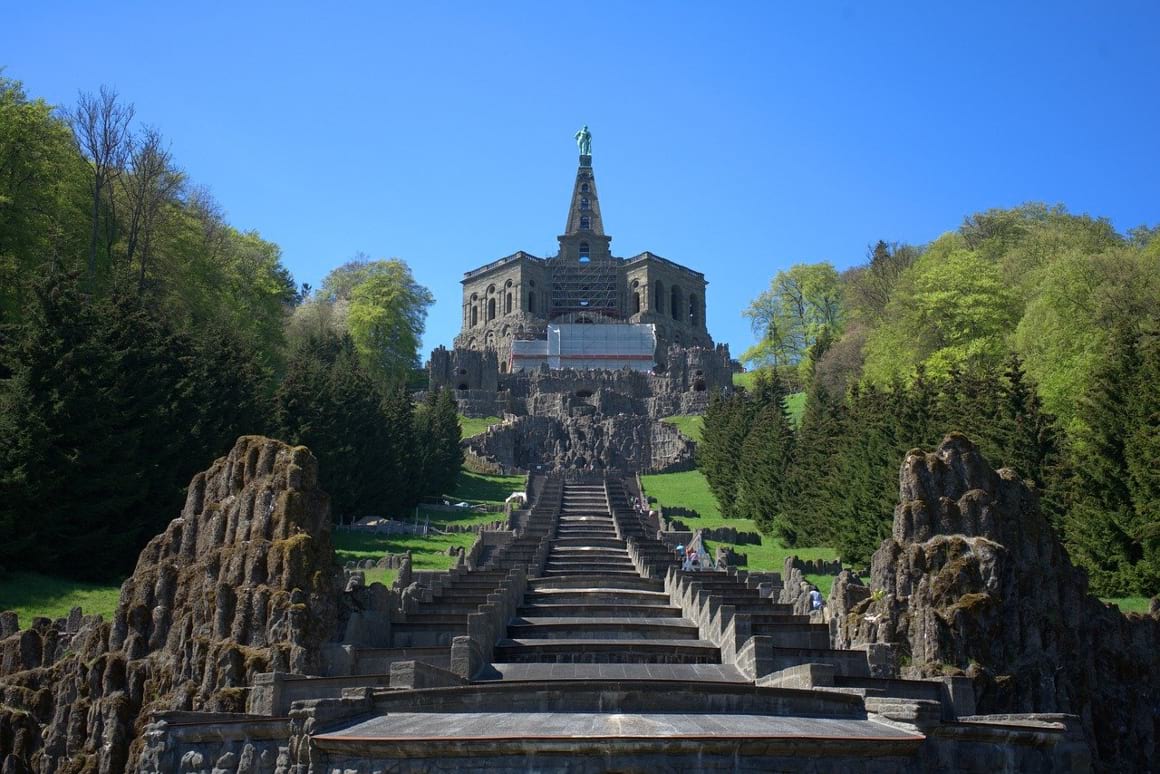
- Let’s get you ready for your next adventure with our backpacking Germany guide .
- Check out the best hostels in Berlin to kickstart your German adventure.
- Be prepared for anything with our guide to staying safe in Germany .
- Widen horizons and deepen your experience and impact as a volunteer in Germany .
- Prepare to drink a beer, or two, or three at one of Germany’s best festivals .
- Let’s get you ready for your next adventure with our Netherlands travel guide .

Share or save this post

Leave a Reply Cancel reply
Your email address will not be published. Required fields are marked *
Save my name, email, and website in this browser for the next time I comment.
Notify me of followup comments via e-mail.
How to Live Abroad
- The World's Best Places to Retire
- Travel—How, When, and Where to Go
- Real Estate Overseas
- Earn, Bank, Diversify, Invest
- Retirement Planning
- How to Move Out of the U.S.
- All Destinations
- Editor's Choice
- Daily e-Letter
- Our Experts
- Testimonials
Best Time to Visit Germany by Season - When and Where to Visit
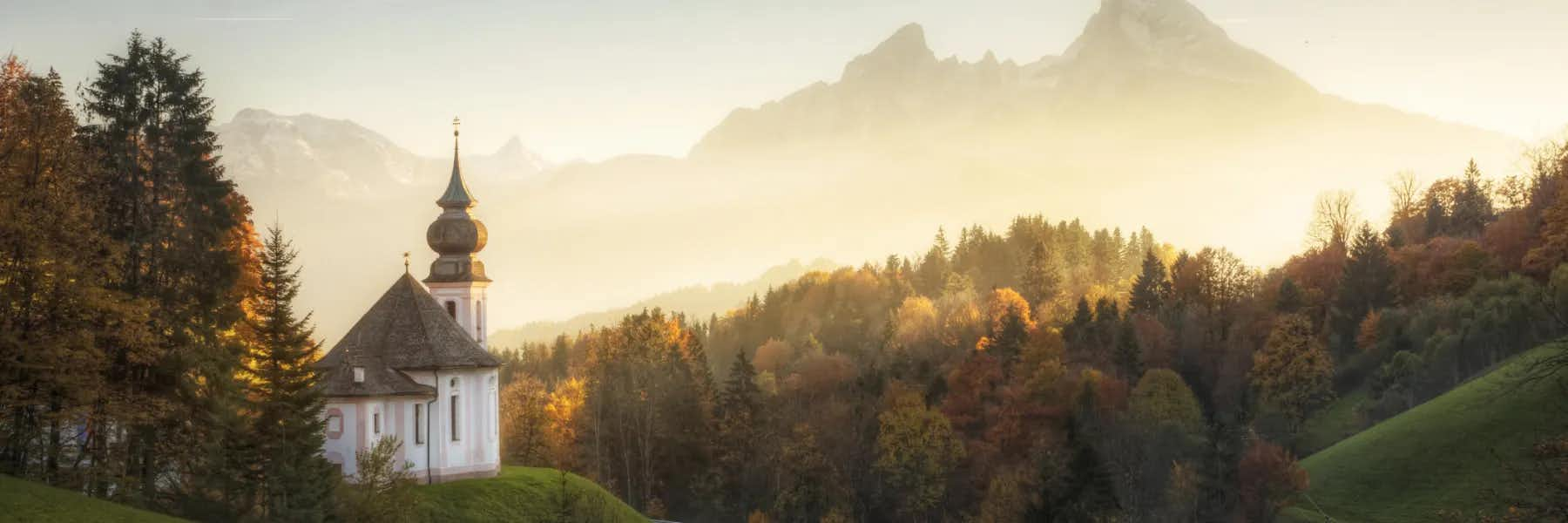
By Erik Meyers
When traveling to a new place, planning the trip can be a hassle. The biggest question is always: when is the best time to go? You have a list of things you want to make sure you see and do on your trip, but you want to try and find the best time of year to do it.
That's why I've put together this overview of the best times to visit Germany , based on what you might want to see and experience while you are there.
That's probably the best way to start planning a trip to Germany: make a list of things you want to make sure you don't miss when you're here. And if there are seasonal activities you just have to do, such as skiing or snowboarding, then that will make the choice of timing even easier.
Wherever you go, particularly if your goal is to see one of the main places people in the U.S. talk about when mentioning Germany, head to some alternatives nearby which you won't want to miss. For Berlin , this is Potsdam with lovely castles and gardens to visit, an easy train ride from Berlin station. For Heidelberg, this is Schwetzingen Castle and Garden or the Palatinate region for hiking or winetasting. For Munich , this is one of the lakes in the area. Wherever you are in Germany, try to get out of the main tourist areas to see something different. Not only will you be rewarded with fewer tourists, but you will also be able to boast you saw something unique.
For easy reference, I've organized the following overview by season starting with spring.
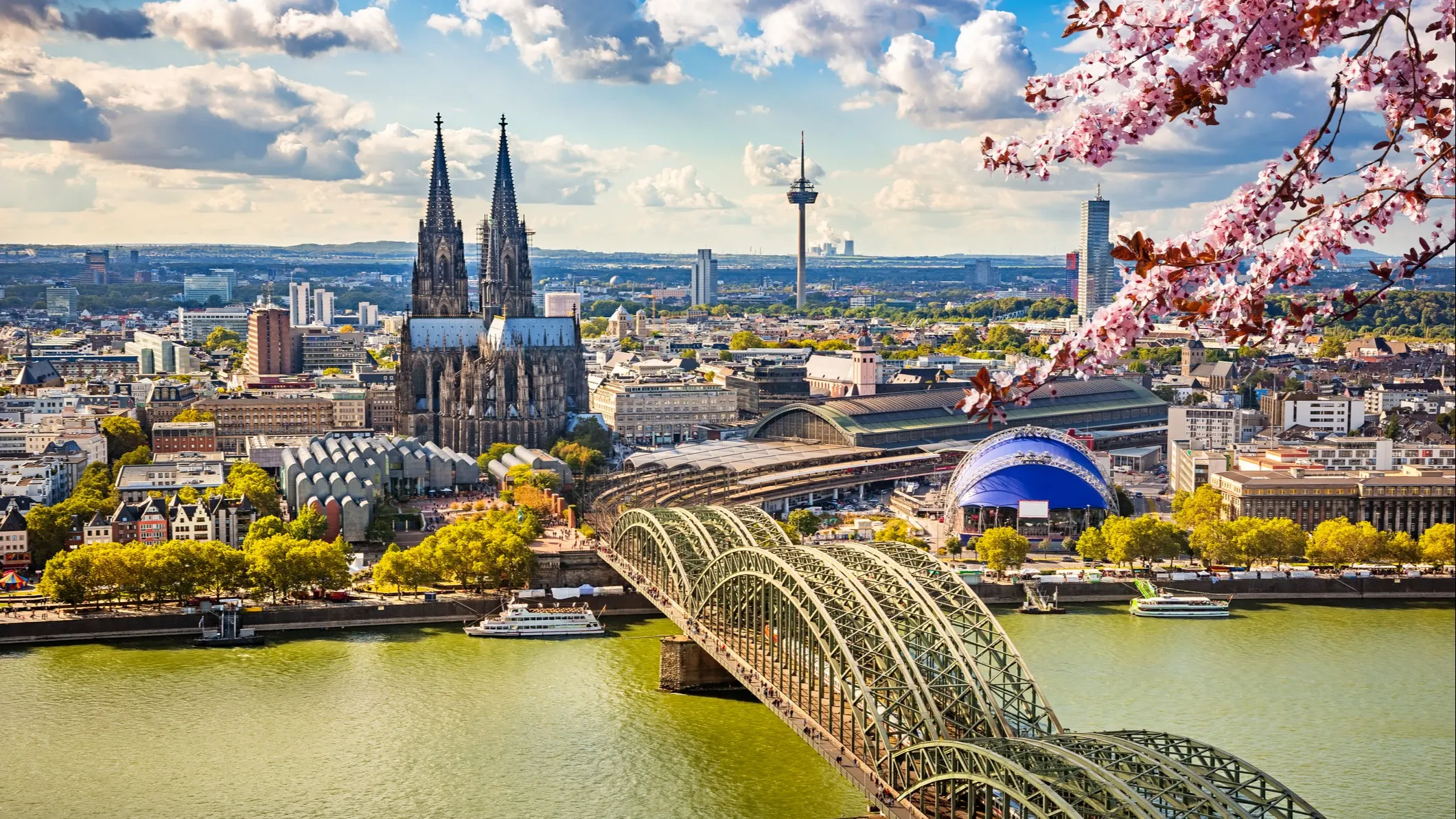
Since I was born in the spring, I'll start with that, a very green time of year.
Springtime in Germany can be lovely, though often rainy and windy. You will not find too many tourists no matter where you are headed, which can be a blessing, particularly if you are headed to one of the top tourist spots such as Berlin, Heidelberg, or Munich.
In many parts of Germany flowers and trees will be blooming though the nights will still be cool.
If you like skiing, and you're lucky, early spring may still offer some skiing at the highest elevations in far southern Germany at the beginning of the Alps. If you are in that area, you can also try finding snow in nearby Austria or Switzerland.
I think the best thing in spring is to either visit a city, such as Heidelberg, Berlin, or Munich, or head to one of the nature highlights for some hiking and relaxation. My favorite for this is the Pfälzerwald (Palatinate Forest) in southwest Germany, not too far from Alsace in France.
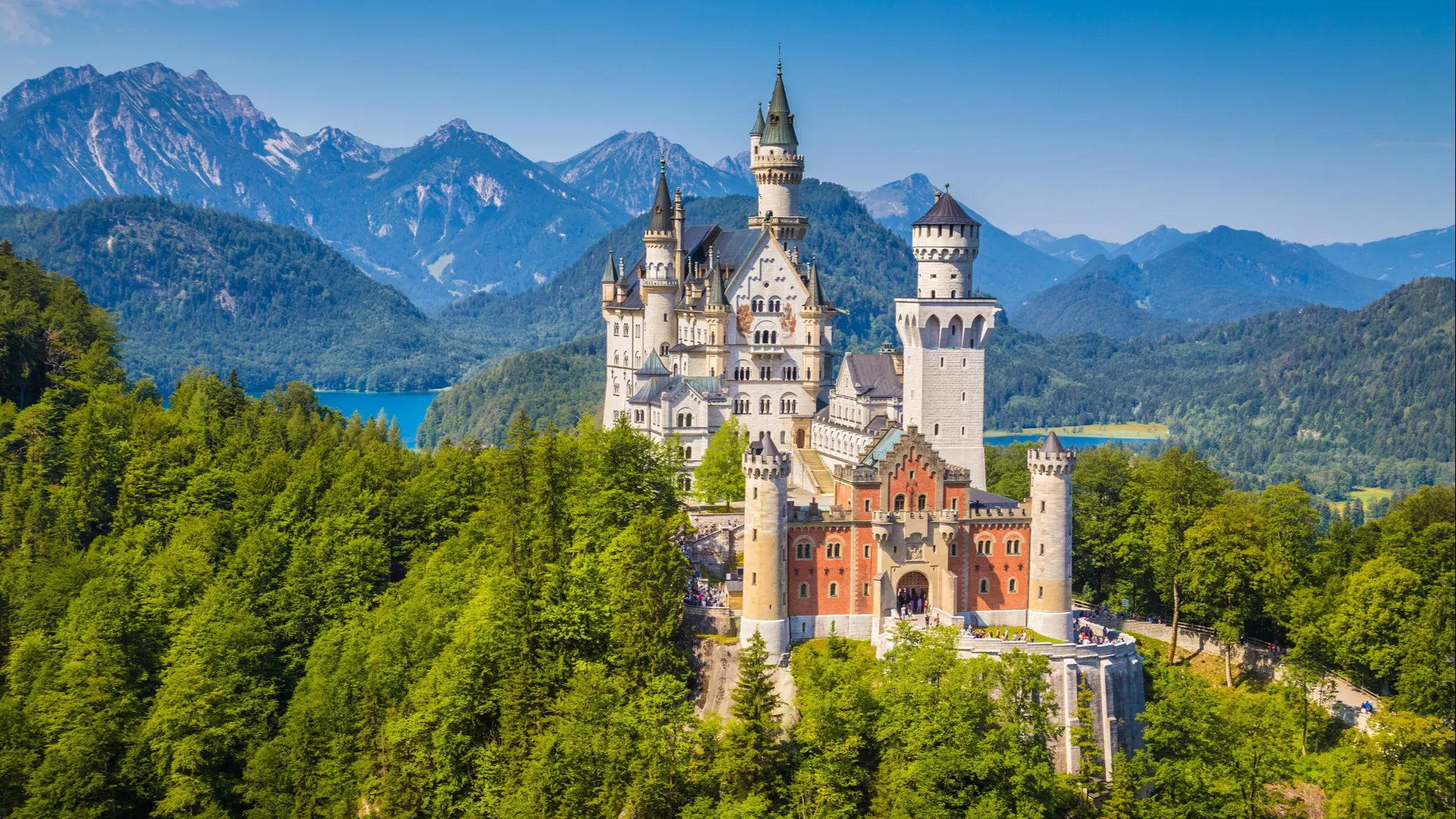
As in most countries, summertime can get very crowded. Of course, the weather is better, though don't necessarily expect hot temperatures everywhere in Germany. For example,
this past summer was quite cool and rainy, with only a few very hot days.
The warmest part of Germany is in the southwest, so if you are headed for Heidelberg this will be a good thing. If you head to the higher elevations it can get quite chilly, but the air is so fresh and wonderful it will be worth it. Overall, there aren't the temperature extremes like in the U.S. Summer can get hot (even up to 100 F, but that is not for weeks at a time), but there are also areas of Germany that can barely hit 85 F or 90 F in the summer. Humidity tends to be lower here as well, which makes for much more comfortable days.
Summer vacation for schools ends in Germany for most states by the middle of August. If you wait to go after that, you will at least have fewer German tourists to contend with.
The days will still be long and warm of course. For me, this is often the best time to travel.
Fall (Autumn)
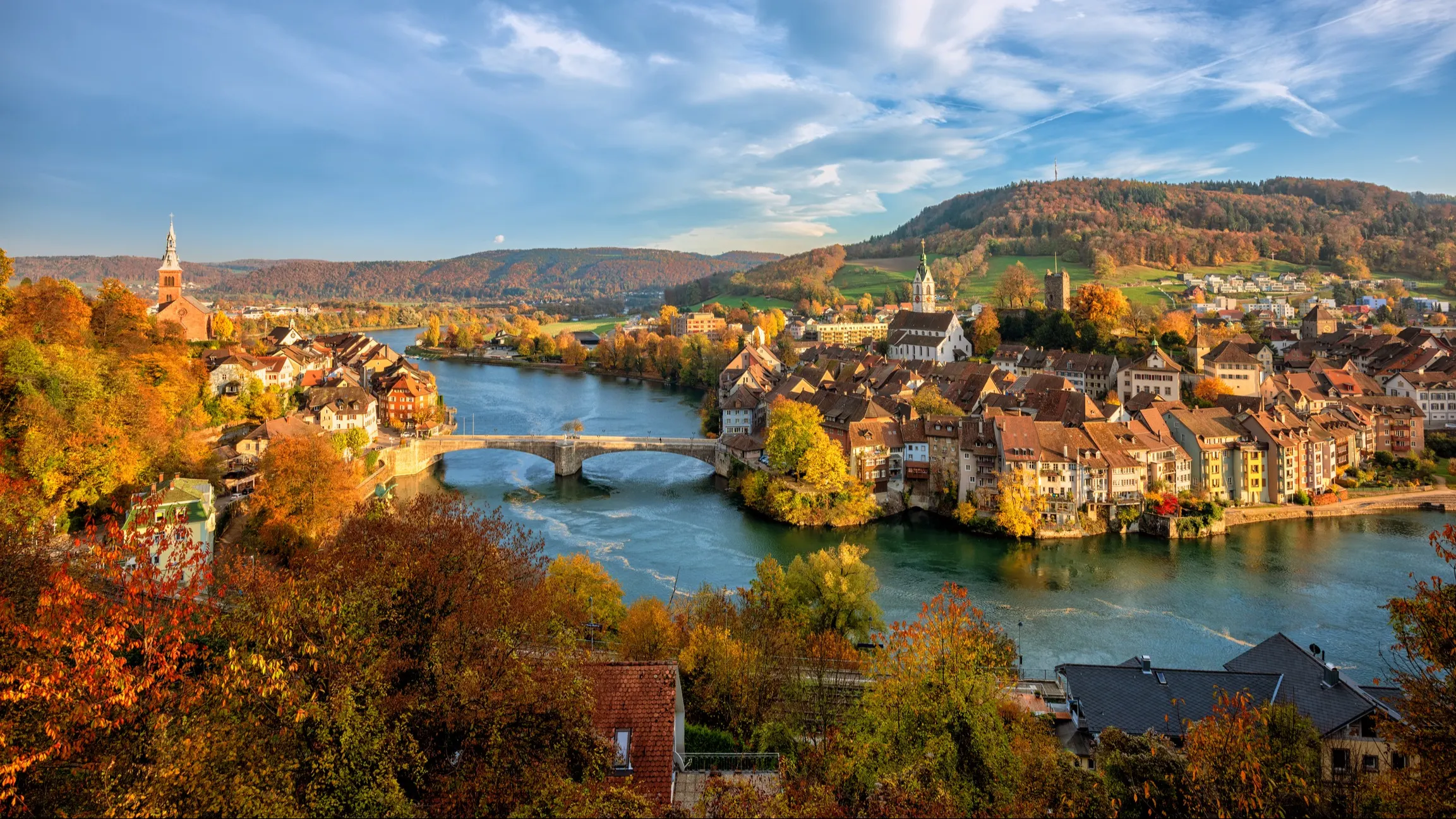
The fall (or autumn) brings cooler temperatures and many town festivals. Many parts of Germany offer a wide range of events, from wine harvest celebrations to town fairs to historical celebrations. These often feature a variety of food and drink, crafts for sale, and other events for the young and old.
One of the loveliest traditions is going to a wine festival in one of the wine regions of southwest Germany. You can sample the Neuer Wein (new wine—a slightly carbonated juice/alcohol mixture in the early stages of fermentation). Traditionally this is served with Zwiebelkuchen (onion tart), a delicious combination.
Early fall can be a great time to visit one of the seaside locations. You will still get some warm days, very few tourists, and the wonderful refreshing sea air.
Trees aren't as vibrant as say in New England in the U.S., but you will still see browns and yellows and you will definitely know it is fall.

Winter in Germany is marked by two main things: Christmas markets and skiing.
Almost every town, however small, offers at least one weekend of Christmas market some time from the end of November to December 23. These feature food, wine, and crafts galore. Some of the most famous, and most lovely, of the Christmas markets are Heidelberg, Rothenburg ob der Tauber (which claims to celebrate Christmas the whole year round with many shops of the holiday variety), and Nuremberg.
During the winter, it seems half of Germany is planning a ski week or weekend or currently enjoying one. Many go to the same place every year. The main skiing areas in Germany are in the far south in Bavaria, at the beginning of the Alps. Many Germans also head to Switzerland or Austria for their skiing and winter enjoyment.
These are the places with the most snow.
The rest of Germany rarely gets snow and if it does it tends to melt fairly quickly. Of course, there are some unusual years, but as the temperatures here tend to be milder, this can be more rain or sleet than anything else.
Featured Image Copyright: ©iStock/bluejayphoto
Germany Deep Dives
Climate in Germany
Cost of Living in Germany
Moving to Germany
Where is Germany?
City and Area Guide
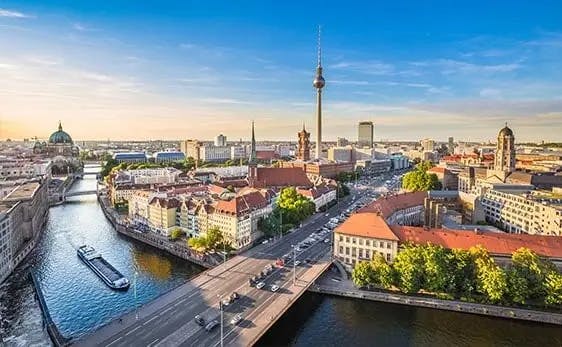
Best Time to Visit Germany: Beat the Crowds & Savor Seasonal Splendors
Deciding when to visit Germany can be a bit tricky, but don't worry, we've got you covered. It's all about what you want to see and do. Whether you're into exploring castles, enjoying festivals, or just soaking in the beautiful scenery, there's a perfect time for you.

Spring and fall are often seen as the best times to visit. The weather is just right—not too hot, not too cold. Plus, you'll miss the big summer crowds. Imagine walking through a quiet, blooming park or watching the leaves change color. Sounds nice, right? Keep reading to find out more about the best time to visit Germany.
Key Takeaways
- Ideal Travel Seasons: Spring (March to May) and fall (September to November) are the best times to visit Germany for pleasant weather, fewer crowds, and the natural beauty of blooming flowers or vibrant autumn leaves.
- Festival Timing: For festival enthusiasts, winter features enchanting Christmas markets and Carnival celebrations, spring hosts Easter and spring festivals, summer is perfect for music and beer festivals, and fall boasts Oktoberfest and wine festivals.
- Castle Exploration: Winter offers fairy tale-like snowy castle views with fewer tourists, spring and fall provide comfortable weather for exploration along with scenic beauty, and summer is great for vibrant landscapes and special castle events.
- Scenic Beauty and Activities: Each season offers unique experiences—winter for magical Christmas markets, spring for blooming landscapes, summer for warm weather outdoor activities and festivals, and fall for wine festivals and the beautiful change of leaves.
- Avoiding Crowds: Visiting in spring or fall rather than summer can lead to a more relaxed experience, avoiding peak tourist seasons while still enjoying good weather and a range of activities.
Best Time to Visit Germany for Festival Lovers
When planning your trip to Germany, it's key to consider when and where the best festivals are happening. If you're a festival lover, timing your visit to catch Germany's vibrant celebrations is a must. Here's a rundown of what to expect season by season.
Winter: Christmas Markets and Carnival
Winter in Germany is magical, especially December , when Christmas markets light up nearly every city and town. You'll enjoy mulled wine, traditional crafts, and a cozy atmosphere. Not to miss is the Nuremberg Christmas Market, one of the oldest and most famous in the world. Following the festive season, the Carnival (or Fasching) starts in February, boasting street parades and colorful costumes, especially vibrant in Cologne and Düsseldorf.
Spring: Easter and Spring Festivals
Spring, particularly April and May , is filled with Easter celebrations and various spring festivals. This is the time when you can witness the old traditions come to life in smaller towns. Additionally, Munich hosts Frühlingsfest, a smaller version of Oktoberfest with plenty of beer and funfair attractions but fewer crowds. The weather is pleasant for outdoor activities, making it an ideal time for festival-goers.
Summer: Music and Beer Festivals
Summer, from June to August , is the peak season for music lovers. With numerous music festivals like Rock am Ring and Fusion Festival, there’s something for every taste. Don’t forget the beer festivals! While Oktoberfest starts in late September, smaller beer festivals like the Berlin Beer Festival in August offer a great warm-up with hundreds of breweries participating.
Fall: Oktoberfest and Wine Festivals
Fall is perhaps the best time for festival lovers to visit Germany. September and October are synonymous with Oktoberfest, the world's largest beer festival held in Munich. It's a must-experience event for any festival enthusiast. Moreover, this season is perfect for wine lovers, with the Rhine in Flames festival and numerous wine festivals in the picturesque Rhine and Mosel valleys, where you can enjoy the local harvest.
Exploring Germany's Castles: Ideal Seasons to Visit
When you're plotting your adventure to Germany, you surely don't want to miss out on the magic of its castles. Germany's castles are not just architectural marvels; they're gateways into history and fairy tales. The best time to visit these wonders hinges on what you're looking for: vibrant landscapes, fewer crowds, or perhaps, a wintry tale setting.
Winter: A Fairy Tale Scene
If you're after a scene straight from a fairy tale book, winter is your season. From December to February , the castles are often enveloped in snow, offering a mesmerizing view. While it might be cold, the fewer crowds mean you can enjoy your visit without rushing. Neuschwanstein Castle , in particular, looks like it's straight out of a Disney movie in winter. Just remember, some castles may have reduced visiting hours or might be closed during extreme weather.
Spring: Blooming Beauties
March to May marks the transition from chilly winds to milder temperatures. Spring is when the gardens and landscapes around castiles like Heidelberg begin to bloom. It's the perfect time for those who adore nature and prefer a bit of solitude, as the tourist crowds haven't peaked yet. The weather is pleasant, allowing for comfortable exploration.
Summer: Lively and Bright
June to August is peak tourist season, and for a good reason. The weather is at its best, making it ideal for exploring the medieval walls and lush grounds of castles such as Burg Eltz. This is when Germany's castles look vibrant against the backdrop of blue skies and greenery. Plus, many castles host special events, including medieval fairs and outdoor concerts, drawing in visitors for a unique blend of history and culture.
Fall: A Romantic Palette
For many, the best time to visit Germany's castiles might be during the fall, from September to November . This season wraps the landscapes in warm hues, offering a breathtaking panorama. It's also the time for wine festivals in regions like the Rhine Valley, where castles provide a majestic setting for tasting events. The cooler weather and thinner crowds make fall an ideal time for leisurely exploring.
Enjoying the Scenic Beauty: Recommended Months to Travel
When planning your trip to Germany, picking the best time of year to visit largely depends on what you're looking for. Each season offers something unique. So, let's break it down by what each part of the year has in store for you.
Winter: December to February
Winter in Germany is truly magical, especially if you love snow. December brings charming Christmas markets; imagine sipping hot Glühwein as snowflakes fall around you. January and February can be quite cold, with temperatures often below freezing. It's the perfect time for skiing in the Alps or enjoying indoor museums without the crowds.
Spring: March to May
Spring is when Germany starts to bloom. March sees the last of the winter chill, but by April and May , flowers are blooming everywhere, making it a beautiful time for scenic walks. The weather is mild, but pack a light jacket. It’s also less crowded, so you'll have a more relaxed visit to popular spots.
Summer: June to August
Summer is the best time to visit if you're all about warm weather and vibrant festivities. From June to August , there's plenty of sunshine, with temperatures comfortably in the 70s (Fahrenheit). It's great for outdoor activities like hiking in the Black Forest or swimming in the Baltic Sea. Plus, there are tons of festivals, including Berlin's famous Love Parade.
Fall: September to November
For many, fall is the best time to visit Germany . The weather in September and October is still pleasant, with fewer rain showers and the warmth of summer lingering. It's the ideal time to enjoy the changing leaves and take part in wine festivals in the Rhine Valley. By November , the weather cools down, and the festive markets begin to set up, offering a sneak peek into winter's charm without the deep chill.
Avoiding Summer Crowds: Why Spring and Fall are Great Choices
When planning your trip to Germany, pinpointing the best time to visit isn't just about catching the best weather—it's also about blending great experiences with fewer crowds. While summer brings warmth and a buzz of activities, it also ushers in the most tourists. If you prefer a more laid-back visit without the hassle of long lines and packed sites, spring and fall emerge as ideal candidates for your travel itinerary.
During spring, from March to May, Germany starts to shake off the winter chill, and landscapes burst into color with blooming flowers everywhere. It's a perfect time for outdoor enthusiasts who enjoy mild weather without the summer's peak temperatures. Historical cities look picturesque, and parks are pleasantly less crowded, letting you soak in the sights at your own pace. What's more, spring festivities offer a unique glimpse into local culture without the overwhelming summer tourist influx.
Fall, stretching from September to November, is another sweet spot for visiting Germany. The weather is still welcoming, with mild days and crisp evenings. It's a time when the country's natural beauty shines with vibrant fall colors, especially in the Rhine Valley. Wine festivals are in full swing, providing a taste of local tradition and culinary delights. This season delivers an exceptional experience, balancing pleasant weather with the cultural richness of Germany sans the summer crowds.
Opting for spring or fall for your German getaway means enjoying the best of what the country has to offer—scenic landscapes, rich culture, and comfortable weather—with the added bonus of fewer tourists. Whether it’s meandering through historical sites, enjoying local festivals, or simply relishing the natural scenery, these seasons ensure your trip is both memorable and relaxed.
Deciding when to visit Germany can truly shape your travel experience. Opting for spring or fall means you'll sidestep the summer rush while immersing yourself in the country's vibrant landscapes and rich traditions. Whether you're wandering through blooming parks in spring or celebrating at a wine festival in fall, these seasons offer the perfect backdrop for a memorable journey. So, pack your bags for an adventure during these months and prepare to explore Germany in its most enchanting form. It's your chance to enjoy the best of both worlds - pleasant weather and an authentic cultural experience without the crowds.
Frequently Asked Questions
What are the best seasons to visit germany to avoid crowds.
Spring (March to May) and fall (September to November) are the best seasons to visit Germany if you want to avoid the summer crowds. These periods offer a mix of pleasant weather, fewer tourists, and the country's scenic beauty.
Why is spring a recommended time to visit Germany?
Spring is ideal due to the country blooming with colorful landscapes, mild weather, and fewer tourists. This season allows for comfortable outdoor activities and experiencing Germany's rich cultural offerings in a more relaxed setting.
What makes fall a good time to travel to Germany?
Fall is characterized by pleasant weather, vibrant fall colors, and wine festivals, especially in the Rhine Valley. This season allows visitors to experience Germany's beauty, traditions, and cultural heritage comfortably without the summer rush.
Are there any specific festivals to enjoy in Germany during these seasons?
Yes, particularly in fall, you can enjoy wine festivals in the Rhine Valley. These festivals offer a unique opportunity to experience local traditions, taste regional wines, and enjoy the festive atmosphere amidst beautiful fall scenery.
Can visiting Germany in spring or fall enhance my travel experience?
Absolutely. Traveling to Germany in spring or fall not only ensures you avoid the largest crowds but also lets you experience the country's natural beauty, cultural richness, and comfortable weather conditions. This makes for a more relaxed and memorable trip.
73 Basic Dutch Phrases for Your Next Trip to Netherlands 🇳🇱
Learn essential Dutch phrases for a smooth trip to the Netherlands. Perfect for travelers looking to connect with locals and enrich their experience.
Win a $500 Flight!
Embark on the adventure of a lifetime! Enter our Dream Journey Sweepstakes for a chance to win a $500 travel voucher, redeemable with any major US airline. Whether it's sandy beaches, bustling cities, or tranquil mountains, your dream destination is just an email away!*

Is SunExpress Safe? Unveiling the Truth Behind Your Flight Fears
When you're planning your next sunny getaway, the airline you choose can make or break your experience. That's where SunExpress comes into play. You've probably wondered, "Is SunExpress safe?" It's a valid question, especially in today's travel climate where safety is at the forefront of everyone's minds.

Is Eurowings Safe? Unveiling the Truth Behind Your Flight Fears
When planning a trip, safety is always at the top of your mind. And if you're considering flying with Eurowings, you're probably wondering just how safe it is. After all, you want your journey to be as smooth and worry-free as possible.

Is Lufthansa Safe? Discover What Sets Their Safety Standards Apart
When you're jetting off to your next destination, safety is always at the forefront of your mind. And if you're considering flying with Lufthansa, you're probably wondering just how safe it really is. Well, you're in the right place to find out.

Uncover Hidden Gems: Best Places to Visit in September for a Perfect Escape
September's the sweet spot for travel. It's when the summer crowds thin out, but the weather's still nice. You get the best of both worlds: fewer people and great days to explore. Imagine walking through a city or hiking a trail without bumping into tons of tourists. Sounds awesome, right?

December Delights: Europe's Coziest Villages for a Magical Winter Escape
December in Europe is like stepping into a holiday card. Picture this: snowflakes gently falling, bright lights, and the sweet smell of hot chocolate. It's a magical time to explore, with each city offering its own winter wonderland. Whether you're dreaming of cozy markets or breathtaking snowy landscapes, Europe's got you covered.

November Wonders: Top European Spots & Events to Explore
November's a cool month to explore Europe. It's not too cold yet, and the summer crowds have gone home. You get to see a different side of places, with cozy vibes and fewer people around.

February Gems: Top Unspoiled Destinations for Your Winter Escape
February might seem like a sleepy month, but it's actually a great time to explore some cool spots around the world. While some folks are still shaking off the holiday buzz, you could be packing your bags for an adventure. Whether you're into sunny beaches or snowy mountains, there's a perfect February destination waiting for you.

Ultimate Guide: Top Places to Live in Germany for Every Lifestyle
Thinking about moving to Germany or just curious about the best spots to call home? You're in the right place. Germany's got a mix of vibrant cities, quaint towns, and stunning landscapes that cater to just about every taste. Whether you're after the hustle and bustle of city life or the quiet charm of countryside living, there's a spot in Germany waiting for you.

Best Time to Visit Munich: Seasonal Secrets for an Authentic Experience
Planning your trip to Munich? You're in for a treat! This city is packed with cool stuff to see and do, from amazing festivals to beautiful parks. But when's the best time to visit? Let's break it down so you can make the most of your trip.

Best Time to Visit Berlin: Unlocking Seasonal Secrets for an Ideal Trip
Deciding when to visit Berlin can be tricky. You want the weather to be nice, but you also don't want to bump into too many tourists. Lucky for you, there's a sweet spot where you get the best of both worlds.

Cologne Safety: Am I Safe to Travel to Cologne, Germany in 2024?
Planning a trip to Cologne raises safety questions. With its iconic cathedral and rich culture attracting millions, how safe is the city for tourists?

Hamburg Safety: Am I Safe to Travel to Hamburg, Germany in 2024?
Planning a trip to Hamburg? Safety is crucial for a memorable visit. Discover how this bustling, culturally rich German port city ranks in safety.

Frankfurt Safety: Am I Safe to Travel to Frankfurt, Germany in 2024?
Planning a trip to Frankfurt, prioritizing safety is key. As Germany's financial hub, it's bustling yet raises questions about safety among its skyscrapers.

Munich Safety: Am I Safe to Travel to Munich, Germany in 2024?
Planning a trip to Munich? Safety is key. Explore its history, culture, and beer gardens with peace of mind. How safe is this Bavarian capital for visitors?

Berlin Safety: Am I Safe to Travel to Berlin, Germany in 2024?
Planning a trip to Berlin raises the question: "Is it safe?" Despite its rich history and vibrant culture, attracting millions, safety concerns exist.

72 Basic German Phrases for Your Next Trip to Germany 🇩🇪
Learn 72 essential German phrases for your trip to Germany, from greetings and ordering food to shopping and emergencies. Master the basics and impress locals with this ultimate guide to German language and culture.

9 Best Historical Places to See in Berlin
Explore 9 top historical sites in Berlin, from the Berlin Wall Memorial to the iconic Brandenburg Gate. Perfect for travelers eager to experience history.

Germany Trip Cost: Pricing for Flights, Food & Accommodation
Plan your Germany trip with our guide on flights, food, & accommodation costs. Get expert budget tips for a memorable stay without overspending.
You may also like...

Best Time to Visit Lithuania for Seasonal Adventures & Local Festivals
Planning a trip to Lithuania and wondering when's the best time to go? You're in the right place. Lithuania, with its stunning landscapes and rich history, offers a unique experience no matter the season. But, if you're looking to make the most of your visit, timing is key.

Best Time to Visit Hungary: Seasonal Secrets for an Authentic Experience
Deciding when to visit Hungary can be tricky, but don't worry, we've got you covered. This beautiful country shines in every season, but knowing the best time to go can make your trip even more special.

Best Time to Visit Estonia: Discover a Winter Wonderland Like a Local
Deciding when to visit Estonia? You're in for a treat, no matter the season. But if you're looking for the best experience, timing is key. This Baltic gem offers something unique with each season, from white winters to sunny summers.

Best Time to Visit Armenia: Winter Wonderland & Cultural Fests Unveiled
Deciding when to visit Armenia? You're in for a treat! This hidden gem has got it all - from cool, snowy winters to warm, sunny summers. But to get the best out of your trip, timing is key. Let's dive into when's the perfect moment to pack your bags for Armenia.

Best Time to Visit Havana: Seasonal Guide for Cultural Festivities
Planning your dream trip to Havana? You're probably wondering when's the best time to pack your bags and go. Well, you're in luck because we've got the inside scoop to help you make the perfect choice.

Best Time to Visit Oaxaca: Uncover Seasonal Secrets & Local Celebrations
Deciding when to visit Oaxaca? It's all about finding the perfect balance. You want great weather, fewer crowds, and lots to do, right? Well, you're in luck because Oaxaca has got it all, but timing is key.
The travel site inspired by travelers and locals alike. Find amazing destinations, unique trip ideas, the best hotels, and most comfortable resorts.

- Scandinavia
- Switzerland
- The Netherlands

Why Visit Germany?
Germany, a central European nation, is celebrated for its rich history, innovative industry, and cultural contributions. The capital city, Berlin, serves as a dynamic hub for art, politics, and modernity, featuring iconic landmarks like the Brandenburg Gate and the Berlin Wall.
Germany’s diverse landscapes range from the picturesque Bavarian Alps to the serene Rhine River valleys. The country’s historical significance is seen in medieval castles, historic towns like Rothenburg ob der Tauber, and a legacy of influential philosophers and writers, including Goethe and Nietzsche. Germany is renowned for precision engineering and automotive prowess, with companies like BMW, Mercedes-Benz, and Volkswagen.
- When to visit
- How to reach
- Where to stay
- Find a hotel
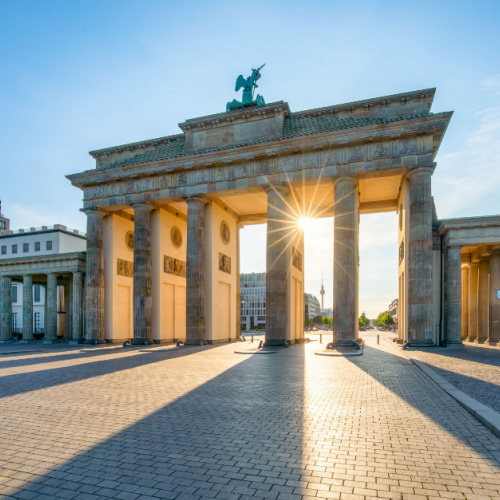
mapman/Shutterstock
When Is the Best Time to Visit Germany ?
Here are some of the benefits of visiting Germany during the shoulder seasons:
- Mild weather: Germany has a temperate climate, with warm summers and cold winters. The shoulder seasons offer the best of both worlds, with mild temperatures and less rain than the winter.
- Smaller crowds: The shoulder seasons are less crowded than the peak summer season, so you’ll be able to enjoy Germany’s popular tourist attractions without having to deal with large crowds. This is especially important if you’re visiting popular destinations like Berlin, Munich, and Cologne.
- Lower prices: Prices for flights, accommodation, and activities are generally lower during the shoulder seasons than during the peak summer season. This means you can save money on your trip without having to sacrifice quality.
Here are some specific examples of how you can enjoy the most of Germany during the shoulder seasons:
- April-May: The weather in April and May is typically sunny and mild, with occasional showers. This is a great time to visit for sightseeing in Berlin and Munich, hiking in the Bavarian Alps, and attending the Munich Spring Festival in May.
- September-October: The weather in September and October is also typically sunny and mild, with occasional showers. This is a great time to visit for visiting the vineyards of the Mosel Valley, attending the Oktoberfest festival in Munich, and celebrating Halloween in Berlin.
While there are many great times to visit Germany, if you’re looking for the best weather, fewer crowds, and lower prices, then we recommend visiting during the shoulder seasons of April-May and September-October.
Average Temperatures by Month
Climate in germany.
German summers are warm with temperatures typically ranging from 20°C to 25°C (68°F to 77°F), though occasional heatwaves can bring higher temperatures. This season is characterized by longer days and abundant sunshine, making it ideal for outdoor activities like hiking, cycling, and exploring the country's natural landscapes and historic cities. While summers can be mostly sunny, they are also interspersed with occasional rain showers or thunderstorms.
Germany doesn't have a distinct rainy season, but rainfall is fairly evenly distributed throughout the year. However, the late spring and summer months can experience more frequent rain showers and thunderstorms. This rainfall contributes to the lushness of Germany's forests and countryside and can provide a refreshing break from summer heat.
Winters in Germany are cold, with temperatures often dropping below freezing, especially in January and February. The season is characterized by shorter days, potential snowfall, particularly in the mountainous regions, and sometimes grey, overcast skies. Winter transforms Germany into a picturesque landscape, with opportunities for winter sports and traditional Christmas markets, offering a festive and cozy atmosphere.
Our Recommendations
The Best Time to Visit Germany for Weather, Safety, & Tourism
The best times to visit Germany for ideal weather are
May 21st to September 16th
based on average temperature and humidity from NOAA (the National Oceanic and Atmospheric Administration). Read below for more weather and travel details.
Germany Travel Guide
Temperature.
- Perceived Temperature
- Rain and snow
- Humidity and wind
- The busiest and least popular months
- Overall travel experience by time of year
Other Germany Travel Info
Weather in germany.
Average temperatures in Germany vary greatly. Considering humidity, temperatures feel cold for about half of the year and otherwise nice with a very low chance of rain or snow throughout the year. The area is somewhat temperate — in the 55th percentile for pleasant weather — compared to tourist destinations worldwide. Weeks with ideal weather are listed above . If you’re looking for the very warmest time to visit Germany, the hottest months are July, August, and then June. See average monthly temperatures below. The warmest time of year is generally mid July where highs are regularly around 75.5°F (24.2°C) with temperatures rarely dropping below 57.4°F (14.1°C) at night.
Germany Temperatures (Fahrenheit)
Germany temperatures (celsius), “feels-like” temperatures.
The way we experience weather isn’t all about temperature. Higher temperatures affect us much more at higher humidity, and colder temperatures feel piercing with high winds. Our perceived temperatures factor in humidity and wind chill to better represent how hot or cold the day feels to a person.
Germany Perceived Temperature (F)
Germany perceived temperature (c), average germany temperatures by month.
Daily highs (averaged for the month) usually give the best indication of the weather. A significantly lower mean and low generally just means it gets colder at night.
Show Fahrenheit
Show celsius, precipitation (rain or snow).
If dry weather is what you’re after, the months with the lowest chance of significant precipitation in Germany are April, March, and then October. Note that we define “significant precipitation” as .1 inches or more in this section. The lowest chance of rain or snow occurs around mid April. For example, on the week of April 16th there are no days of precipitation on average. By contrast, it’s most likely to rain or snow in early to mid May with an average of 0 days of significant precipitation the week of May 7th.
Chance of Precipitation
The graph below shows the % chance of rainy and snowy days in Germany.
Snow on the Ground
The graph below shows the average snow on the ground in Germany (in).
Average Rain and Snow by Month
Show inches, show centimeters, humidity and wind.
Germany has some extremely humid months, with other comfortably humid months. The least humid month is April (58.5% relative humidity), and the most humid month is December (83.9%).
Wind in Germany is usually calm . The windiest month is January, followed by December and March. January’s average wind speed of around 8.2 knots (9.4 MPH or 15.2 KPH) is considered “a gentle breeze.” Maximum sustained winds (the highest speed for the day lasting more than a few moments) are at their highest in early to mid January where average top sustained speeds reach 14.1 knots, which is considered a moderate breeze.
Relative Humidity (%)
The graph below shows the average % humidity by month in Germany.
The graph below shows wind speed (max and average) in knots.
Average Wind Speeds
Show wind speeds.
All wind speeds are in knots. 1 knot = 1.15 MPH or 1.85 KPH.
Show Relative Humidity by Month
Is it safe to travel to germany.
Our best data indicates this area is somewhat safe. As of Dec 04, 2023 there are travel warnings for Germany; exercise a high degree of caution. Check this page for any recent changes or regions to avoid: Travel Advice and Advisories . This advisory was last updated on Oct 30, 2023.
The Busiest and Least Crowded Months
The busiest month for tourism in Germany is May, followed by April and August. Prices for hotels and flights will be most expensive during these months, though you can save if you purchase well in advance. Tourists are unlikely to visit Germany in December. Those willing to visit at these times will likely find it the least expensive month.
Estimated Tourism by Month
Most popular months to visit, overall germany travel experience by season, spring (march through may).
Humidity and temperatures combine to make this season feel moderately cold. Highs range from 67.9°F (19.9°C) and 45°F (7.2°C) with warmer temperatures in the later months. Rain is extremely rare with 0 to 1 days of significant precipitation per month. Spring is the busiest for tourism, which makes it a good time for those looking for things to do.

Summer (June through August)
The middle-year months have comfortably cool weather with high temperatures that are comfortable. These months see moderate precipitation with about 1 days of precipitation per month. June – August is the second busiest season for tourism in Germany, so lodging and other accommodations may cost slightly more.
Fall (September through November)
Fall daily highs range from 67.4°F (19.7°C) and 41.3°F (5.2°C), which will feel chilly given the humidity and wind. It rains or snows a barely noticeable amount: 0 to 1 days per month. Tourism is the slowest during these months due to the weather, so hotels may be affordably priced.
Winter (December through February)
Weather is too cold this time of year in Germany to be enjoyable for warm weather travelers. The average high during this season is between 45°F (7.2°C) and 35.1°F (1.7°C). On average, it rains or snows a smalll amount: consistently 1 times per month. These times of year are fairly slow with tourists.
Best Times to Travel › Germany
Similar Destinations
- Dermbach, Germany
- Ostheim, Germany
- Poppenhausen, Germany
- Dipperz, Germany
- Mellrichstadt, Germany
- Huenfeld, Germany
- Bad Kissingen, Germany
- Friedewald, Germany
- Kinzig – Fulda, Germany
- Bad Brueckenau, Germany
Popular Destinations
- Kuta, Indonesia
- Blackpool, the United Kingdom
- Calvia, Spain
Best Time To Visit Germany
What is the best time to visit germany.
Spring( March to May ) and Autumn( September to November ) are considered the best time to visit Germany. The weather is pleasant at this time of the year, and enjoyable for the festivals abound, making it the ideal time to visit Germany. Swimming and hiking are crucial to a fulfilling summer in Germany, while cherry blossoms and spring fairs are a highlight in the Spring season. Summer(June to August) is the peak tourist season in Germany, with warm temperatures and longer daylight hours. It's perfect for outdoor activities, including visiting the beaches at the North Sea and Baltic Sea. Winters during Christmas and Oktoberfest, one of the largest cultural fest are two prime festivals and a peak season in Germany. However, the airfare is at its peak, accommodation rates surge, and transportation is very crowded during the summer months. Although Winter from December to February marks the holiday season, the time during Christmas and New Year's Eve are a festive period. Waterproof boots, a winter jacket, and a warm scarf are a must, as it snows a lot. A good time for cross-country skiing.
Germany Travel Packages
Compare quotes from upto 3 travel agents for free
Best Tour Package for Germany
Essential germany tour package, classic germany tour package, berlin to cologne exploration tour package, prague and berlin tour package, serene berlin, warsaw, budapest and vienna, more about best time to travel to germany, seasons in germany, spring in germany (march to may), summer in germany (june to august), autumn in germany (september to november), winter in germany (december to february), best time to visit the top destinations in germany.

Best Time to Visit Berlin
Best Time to Visit Hamburg
Best Time to Visit Frankfurt
Best Time to Visit Munich
Best Time to Visit Dusseldorf
Best Time to Visit Dresden
Tourist Places to Visit In Germany

Browse Package Collections
Top destinations for packages, nearby countries for packages.
Netherlands
Czech Republic
Nearby Countries

Get the best offers on Travel Packages
Compare package quotes from top travel agents
Compare upto 3 quotes for free
- India (+91)
*Final prices will be shared by our partner agents based on your requirements.
Log in to your account
Welcome to holidify.
Forget Password?
Share this page

The Only Germany Travel Guide You’ll Ever Need
Last Updated: January 5, 2024
*FYI - this post may contain affiliate links, which means we earn a commission at no extra cost to you if you purchase from them. Also, as an Amazon Associate I earn from qualifying purchases. Check out our Privacy Policy and Disclosure. for more info.
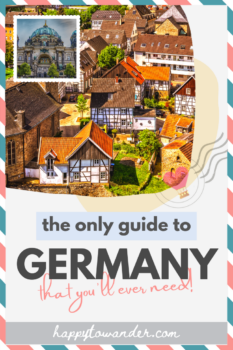
While most commonly associated with beers, bratwursts and tight leather pants, Germany is a country full of delightful finds that extend far beyond the stereotypes.
From dreamy castles and fairytale towns to awe-inspiring nature and sprawling cities, Deutschland has a little something for every kind of traveler… although I’ll admit the leather pants are also great.
I first visited Germany on a 6 week backpacking trip across Europe, and as I sipped my comically large beer under the toasty Berlin sun, I felt a strange sense of calm and belonging.
Spurred by this hunch, I moved to Munich. One study abroad, and 5 years later, I’m still here, with so much giddy enthusiasm for this country that I’ve become a thoroughly insufferable dinner guest.
But my social life’s loss is your gain, my friend… because today, I’ve decided to channel all my Deutschland fangirl tendencies into this concise Germany travel guide filled with all my top tips, itineraries, and recommendations.
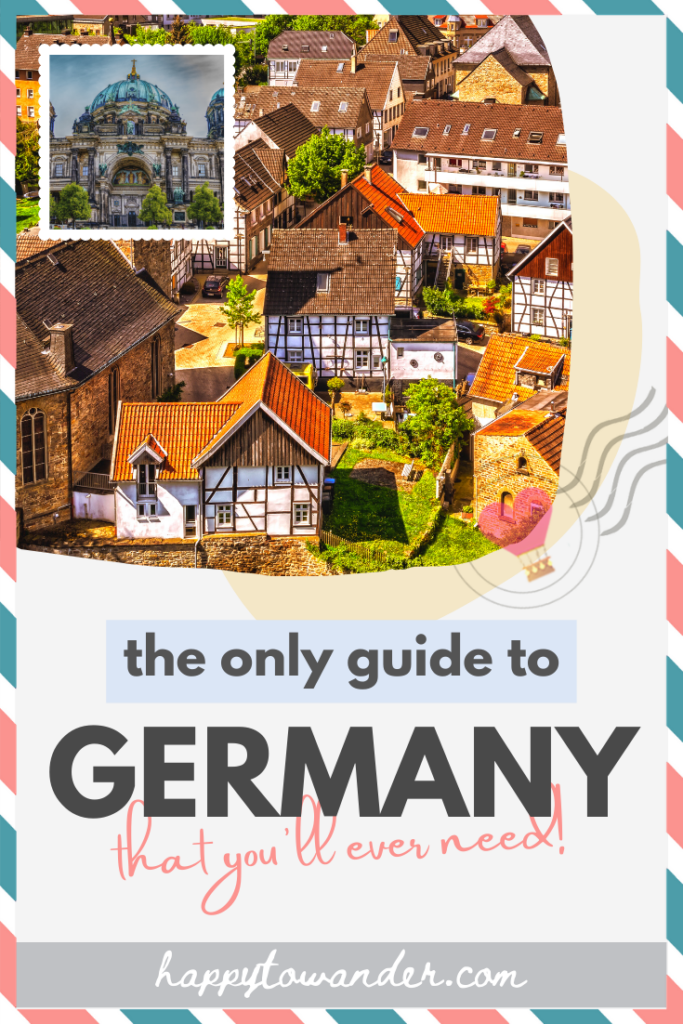
Save this Germany travel guide for later!
I promise it’ll come in handy!
I hope you find it helpful, and of course, feel free to ask any more questions in the comments section or on Instagram here.
Traveling to Germany Basics
Currency: Euro
Language: German, although accents and dialects vary wildly! In larger cities and tourist hotspots, most Germans also speak excellent English.
Getting Around: Trains, buses and flights are plentiful and affordable in Germany – my best tip is to use Omio to compare options easily. Having a car is ideal for visiting smaller towns, more remote locations and numerous destinations in a short amount of time, but is otherwise not needed for big cities.
Germany Highlights (By the Season)
- Winter: Christmas markets, skiing & alpine sports, Karneval and Fasching season (Carnival), Starkbier (Strong beer) season
- Spring: Cherry blossoms in Bonn , Frühlingsfest (Springfest) in Munich
- Summer: Hiking, Beer Garden season, summer festivals/celebrations
- Fall: Oktoberfest and other Volksfests, the world’s biggest pumpkin festival in Ludwigsburg, the Wurstmarkt (world’s largest wine festival)
My Favourite Places in Germany
Let’s get my mega-biased opinion out of the way first – Munich is the city I now call home, and I couldn’t recommend it more… especially if you’re obsessed with beer like I am. This is the birthplace of Oktoberfest after all!
There are lots of fun things to do in Munich , like hopping around the city’s sprawling museum district (many only cost 1 euro on Sundays!), eating up the best Bavarian food that Munich has to offer or soaking in the wealth of historical sites scatered around the city.
It’s also an ideal base for many epic day trips. Going from Munich to Neuschwanstein Castle (AKA the real life Sleeping Beauty castle) takes only 2.5 hours. Or, if you want to visit glorious Salzburg from Munich (AKA the birthplace of Mozart and setting of Sound of Music), that’s only 1 hour by train.
Why visit Munich when you travel Germany:
- Amazing beer & beer festivals
- The English Garden – one of the largest city parks in the world
- Beautiful palaces and museums
- Easy base for amazing day trips to the Alps
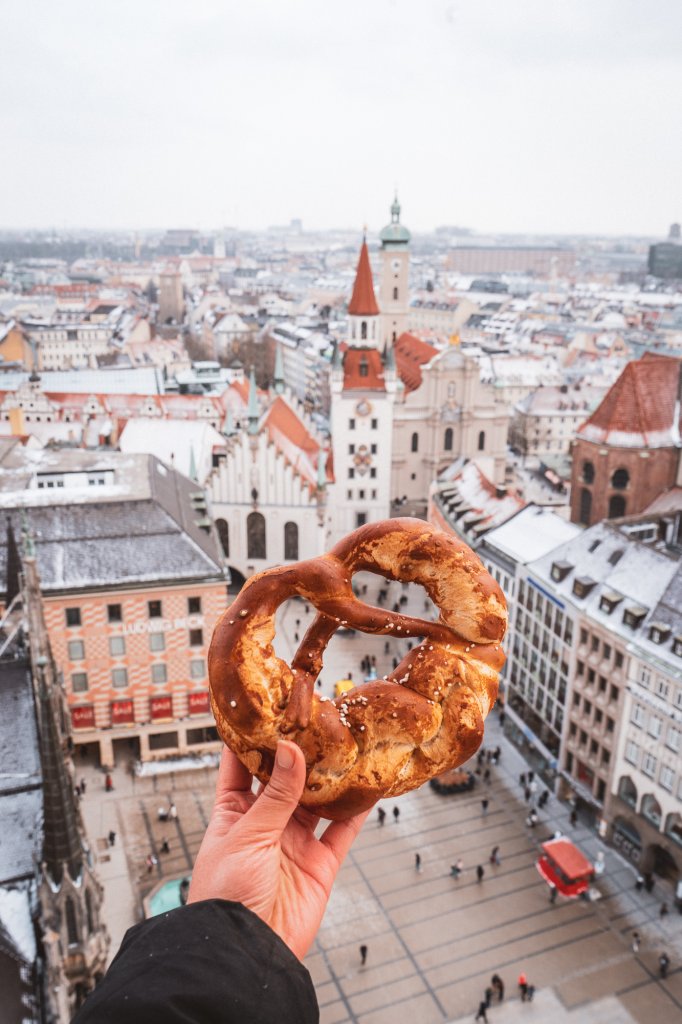
Berchtesgaden National Park
If it’s natural beauty you’re after, Germany’s Berchtesgaden National Park (near the border to Austria) is a must-visit.
Everything here is breathtaking – from the shimmering turquoise lakes and snow-flecked mountains to the adorable Berchtesgaden town center.
And, if you’re up for it, this is the ideal place to enjoy a typically Bavarian wellness weekend.
Why visit Berchtesgaden National Park when you travel Germany:
- Stunning hikes and scenery
- The glorious boat ride on Königssee to see the equally stunning Obersee
- Historic sights like Hitler’s Eagle’s Nest
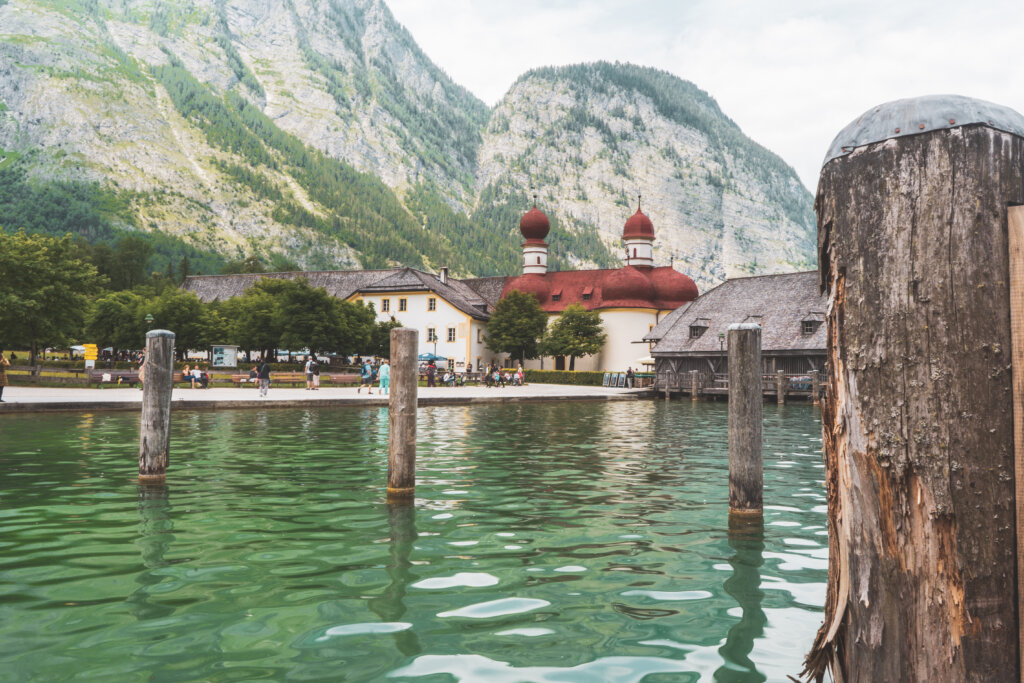
Hands down one of my favourite places to visit time and time again is Berlin.
This endlessly fascinating city is home to incredible museums, delicious food, and a unique culture that makes it distinct from the rest of the country, despite its status as capital!
Whether you’re a history nerd, an avid partyer, or a famished foodie, Berlin has plenty to offer.
Why visit Berlin when you travel Germany:
- Fascinating history
- World-class museums and attractions
- A thriving nightlife and food scene
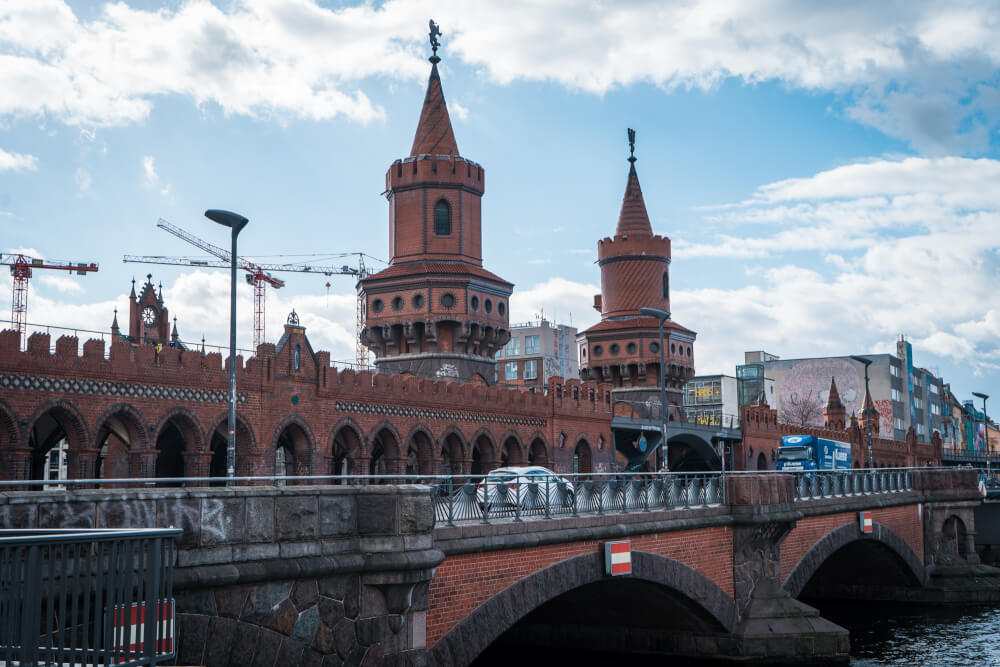
Franconia is a glorious region in northern Bavaria that is divided into Lower, Middle, and Upper Franconia.
To me, it’s one of the most underrated regions in Germany for international visitors, with an abundance of fairytale half-timbered houses, amazing beer, and unique natural landscapes.
Here are some places in Franconia that are absolutely worth visiting:
- Franconian Switzerland
- Würzburg (still haven’t been yet!)
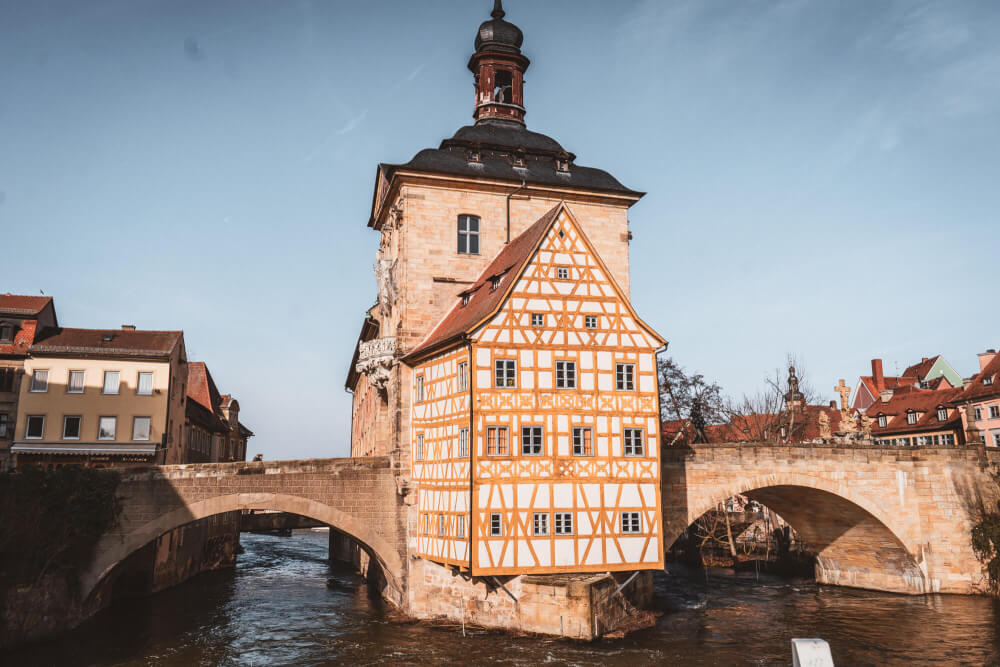
Perhaps the most idyllic entry of this list is Monschau, a sleepy but gorgeous village found near the border to Belgium.
I was lucky enough to come here for Christmas markets a few years ago, and I loved it so much, I skipped the train I’d pre-booked just so I could spend a few more hours there.
Picturesque half-timbered houses clustered around a roaring central river… oh, and a castle on a hill. Because of course they have one.
Why visit Monschau when you travel Germany:
- Super friendly locals
- Picture-perfect scenes at every turn
- Christina might cry if you don’t
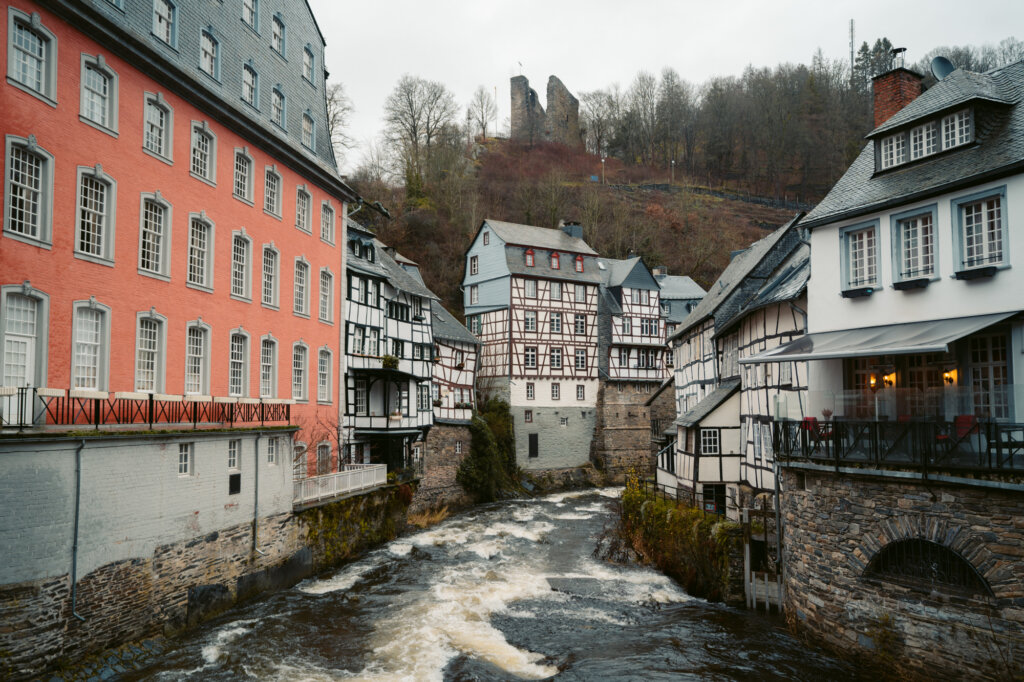
Hamburg is an amazing city I’ve had the chance to visit a few times now. It’s a lifestyle city that reminds me a lot of my hometown, Vancouver.
Home to a mix of classic and modern architecture (including the coolest opera house in the world!), as well as Germany’s #1 attraction – the adorable Miniatur Wonderland, Hamburg has a lot to offer tourists, but perhaps the best way to enjoy it is with a nice beer and sunset along the Elbe.
Why visit Hamburg when you travel Germany :
- Amazing architecture like the Elbphilharmonie
- Fresh and tasty seafood (and a booming foodie scene!)
- A fun, vibrant vibe
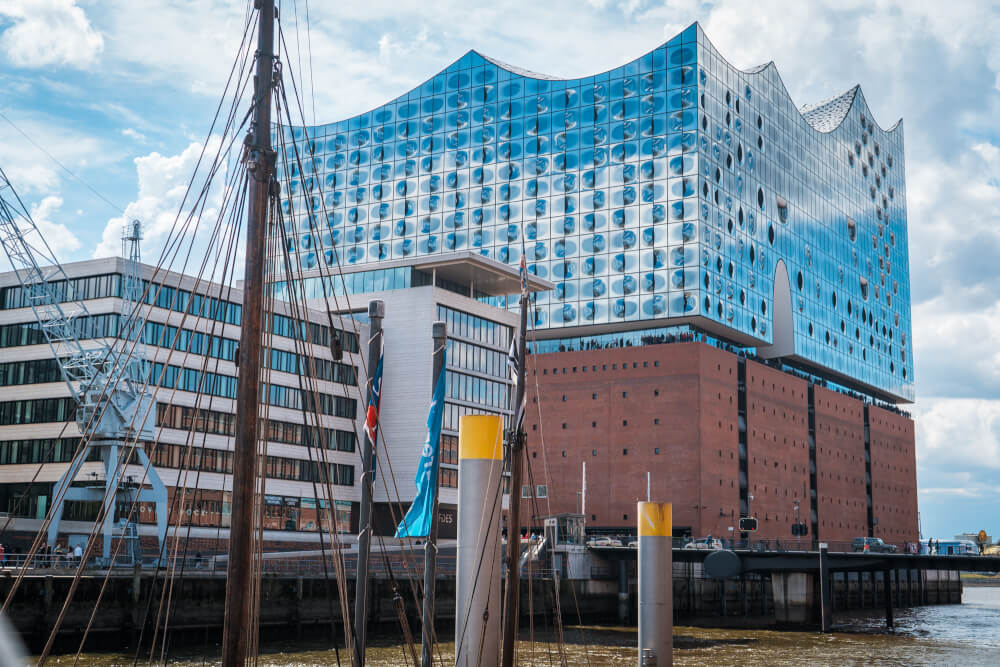
Dresden is one of the most beautiful cities in Germany, and its beauty is all the more astounding when we consider that much of the city was destroyed completely in WWII.
After decades of reconstruction however, Dresden once again shines with its former glory, establishing itself as one of the most important cultural hotspots in Germany.
… and all only a stone’s throw from Saxon Switzerland, one of the most beautiful natural wonders in the country!
Why visit Dresden when you travel Germany :
- Stunning architecture and sights
- World-class museums and culture scene
- Its jawdropping Christmas market (the oldest one in the country!)
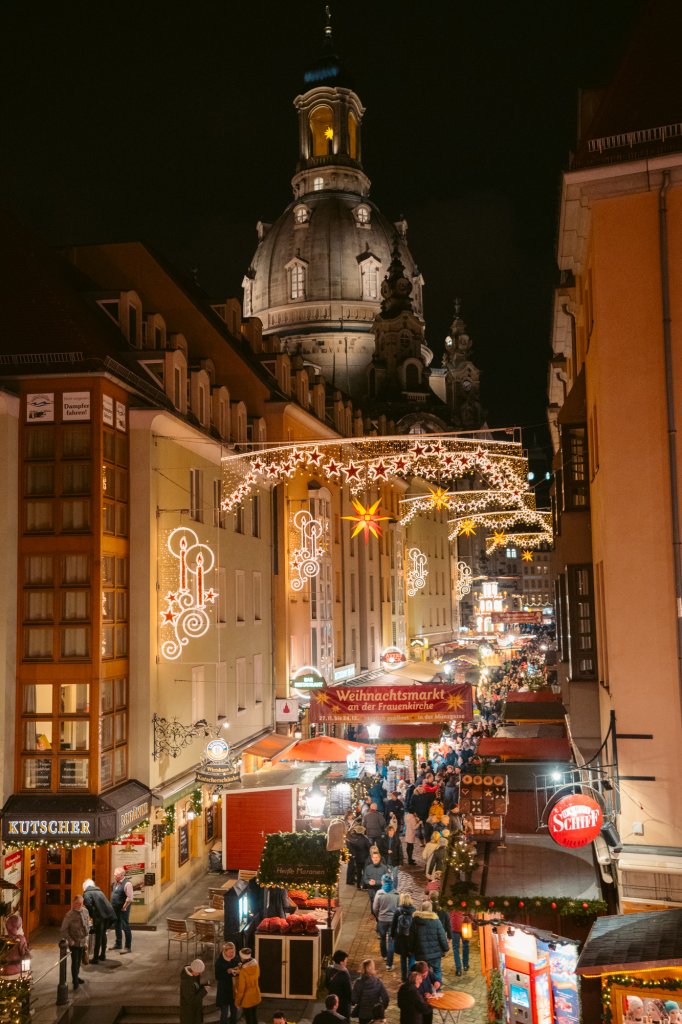
Stuttgart (and its Surrounding Area)
Stuttgart is the biggest city (and capital) of the German state Baden-Württemburg.
It’s perhaps best known as the ‘cradle of the automobile industry’, which explains why it’s home to not just one, but two car-centric museums: one belonging to Mercedes-Benz, and one to Porsche.
Besides cars though, the area around Stuttgart offers up some of the cutest small towns you can find in Germany, all easily reachable by public transport, meaning you get the best of all worlds during a visit here.
Why visit Stuttgart and the surrounding area when you travel Germany:
- Fairytale towns like Esslingen, Ludwigsburg, and Tübingen
- Stuttgart’s Stadtbibliothek, one of the most unique and beautiful libraries in the world
- Lots of fun events like Stuttgart’s Christmas Market and the Cannstatter Volksfest
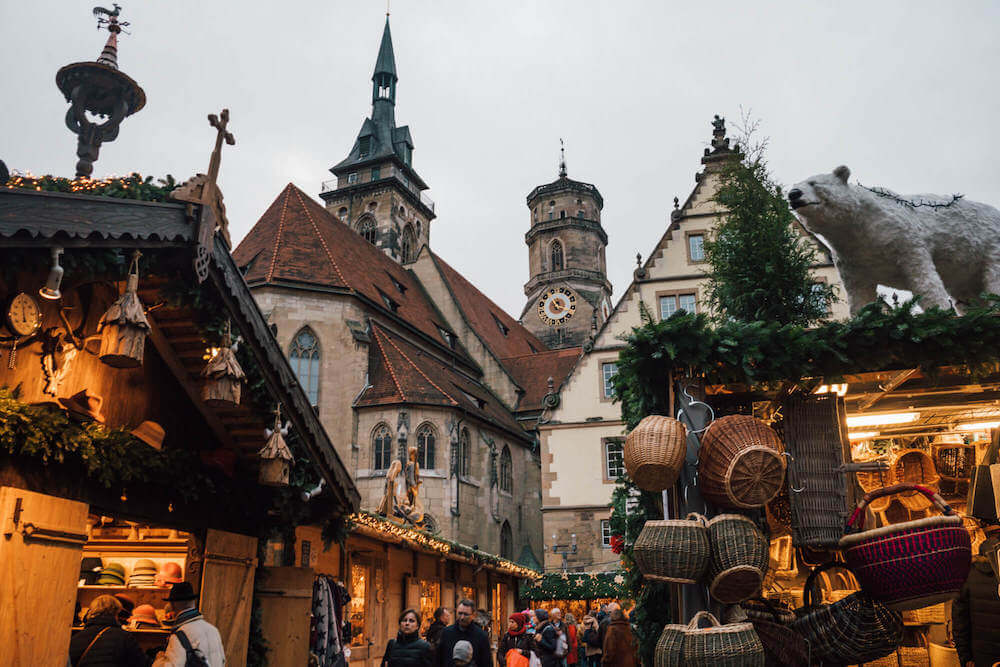
Thuringia is a state often overlooked by international tourists, but if you’re looking for a truly charming German escape, its capital Erfurt makes an excellent choice.
This beautiful city is famed for its unique Krämerbrücke, which is a gorgeous medieval bridge lined with residential buildings.
But that’s not all – there’s also an impressive cathedral, an imposing fortress, and surprises waiting on every corner… quite literally, because Erfurt is the HQ of the German children’s channel KiKA, and there’s plenty of fun statues of famous characters scattered around town.
Why visit Erfurt when you travel Germany:
- Krämerbrücke, the longest inhabited bridge in Europe
- Quirky and fun children’s channel sculptures all over the city
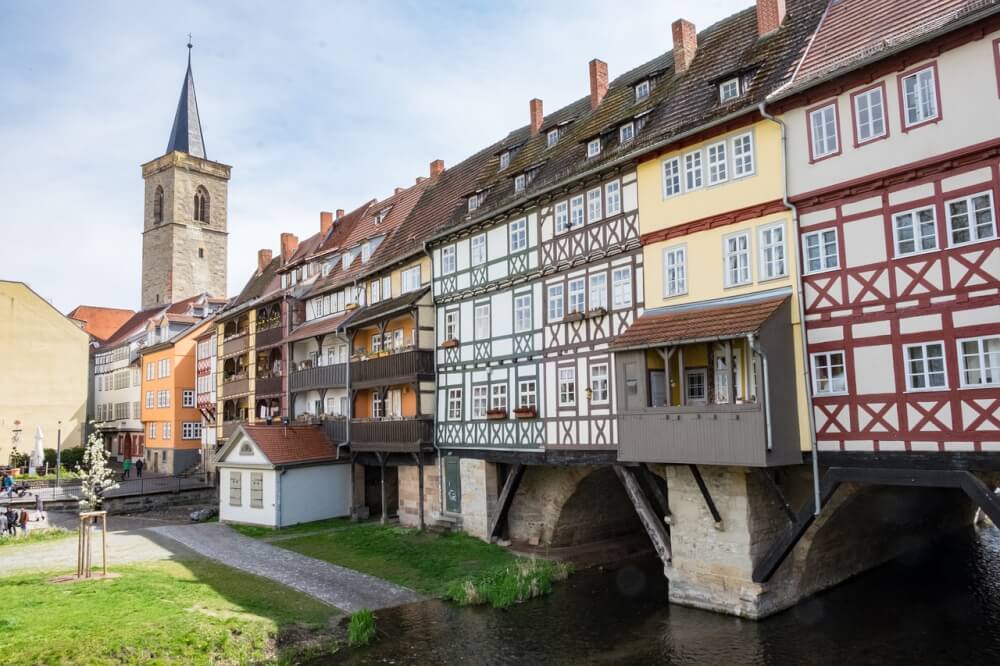
Cologne, to me, is a city synonymous with fun and celebration. While at first glance, it might not rank among the “prettiest” places to visit in Germany (much of it was destroyed in the war), it still boasts several impressive landmarks and sights, like the epic Cologne Cathedral.
Where Cologne really shines though is during special events – the Christmas markets here are some of the best I’ve been to in my entire life, and the Karneval celebrations… well, those are truly epic!
Why visit Cologne when you travel Germany:
- Bucket list events like the Cologne Christmas Market and Kölner Karneval
- The iconic Kölner Dom (Cologne Cathedral), one of the most famous churches in the world
- Fun-loving locals who are among the friendliest I’ve ever encountered in Germany
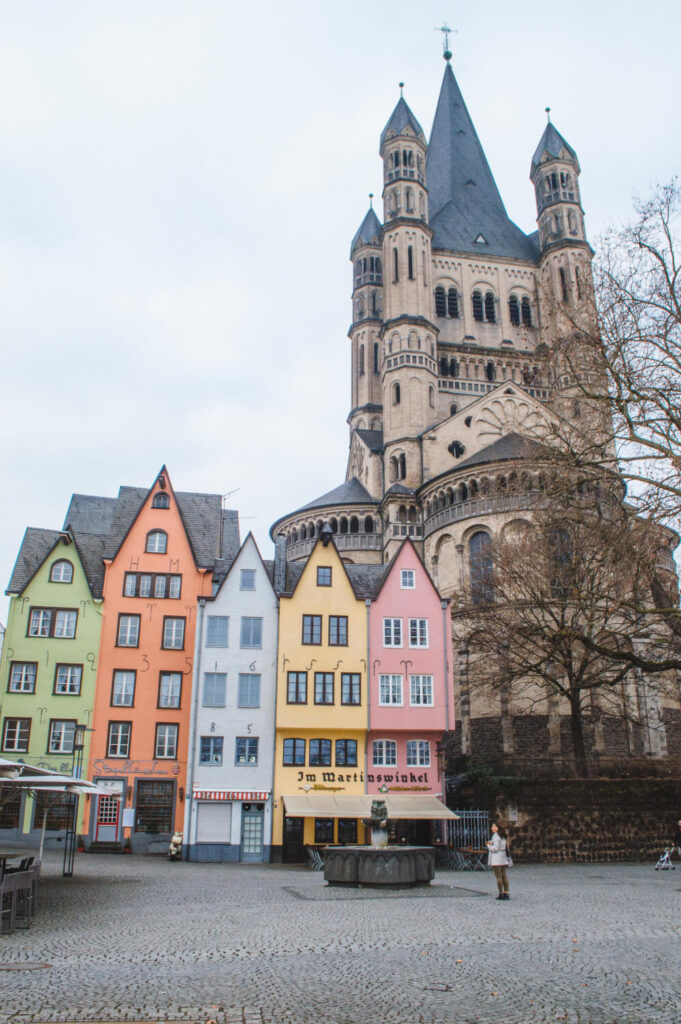
Last but not least, we have Hannover, a city which (in my opinion) is one of the most underrated cities in Germany where tourism is concerned.
Locally, people often joke that Hannover is one of the most boring cities in Germany, but I don’t think that’s true at all. One quick look and you’ll find a stunning palace within the city, an architecturally impressive Town Hall (with a unique elevator offering epic views), and a cool laidback vibe that many compare to what Berlin was like decades ago.
Here are some awesome things to do in Hannover.
Why visit Hannover when you travel Germany:
- Its gorgeous New Town Hall
- The stunning Herrenhausen Palace and its gardens
- A fun, laidback city vibe
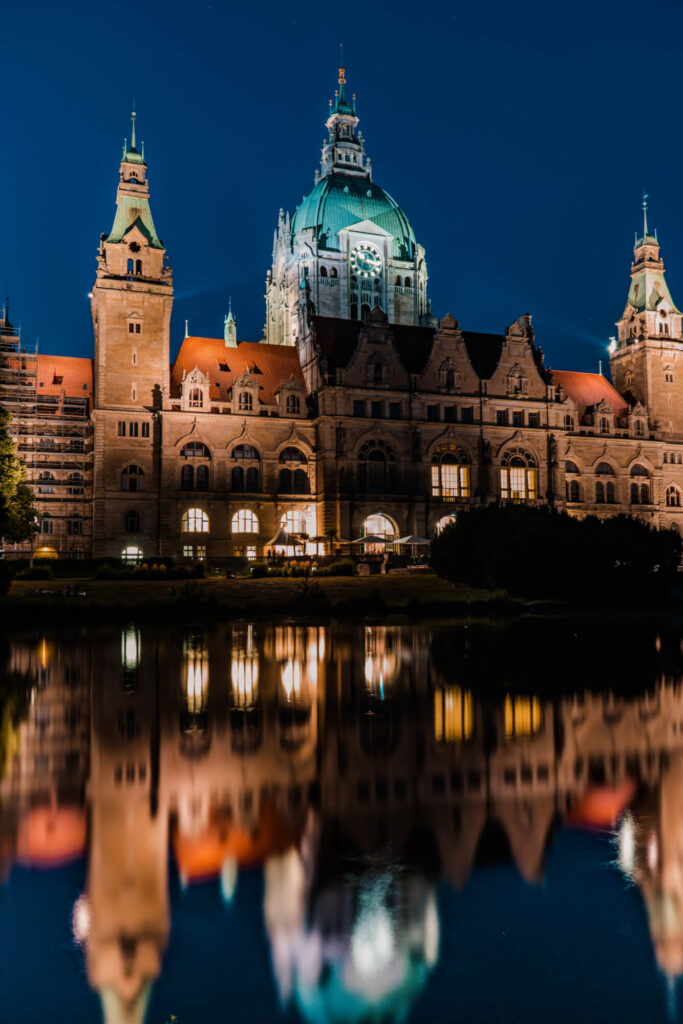
Bucket List Experiences in Germany
Germany is full of incredible bucket list experiences. Here are a few of my favourites:
Christmas Markets
German Christmas markets are the stuff of bucket list dreams.
If you adore Christmas, a German Xmas market trip needs to make it on your bucket list, because nobody captures Christmas coziness and joy quite like the Germans do.
The best part (besides the droolworthy assortment of German Christmas Market foods ) is that you’ll find Christmas markets in just about every city, town, and even the smallest of villages, each with their own unique take on traditions.
Trust me, you could never get bored of visiting these.
Here are some full guides to the Christmas markets I’ve visited in Germany:
- Munich’s Christmas Markets
- Berlin’s Christmas Markets
- Cologne’s Christmas Markets
- Esslingen Christmas Market
- Ludwigsburg Christmas Market
- Karlsruhe Christmas Market
- Düsseldorf Christmas Market
- Nuremberg Christmas Market
- Essen Christmas Market
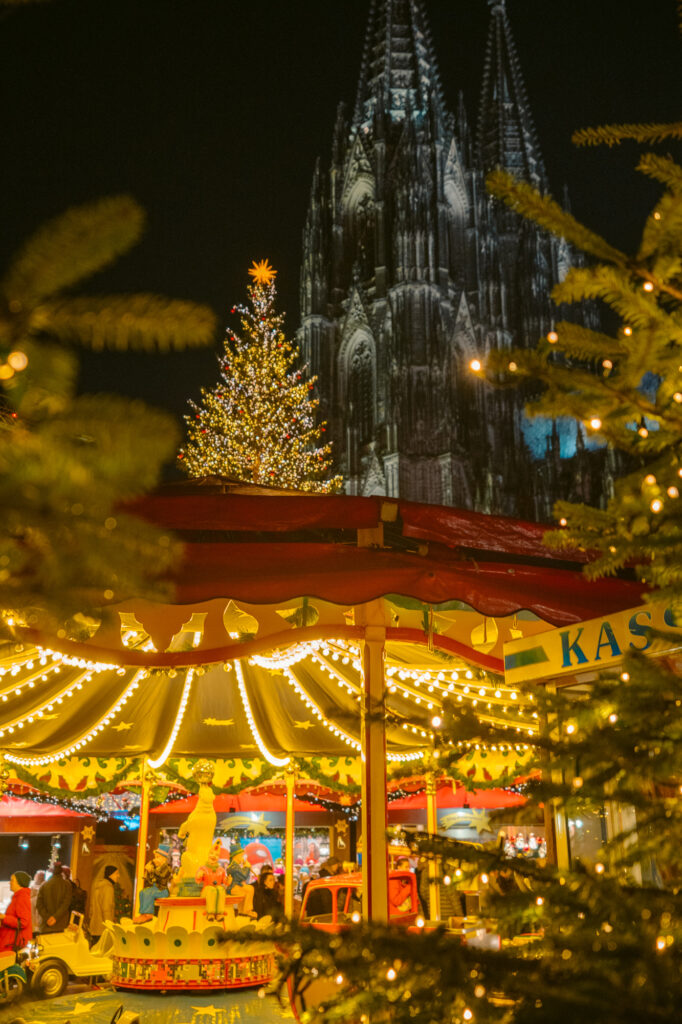
Oktoberfest
Trust me – Oktoberfest , AKA the world’s largest beer festival, is reason enough to make a trip to Germany.
Typically celebrated annually in Munich, this is one of the most incredible events in the world, with millions of people attending, millions of beer served, and a guaranteed recipe for making memories to last a lifetime.
… If you can remember anything after 5L of beer that is.
Read my full Oktoberfest guide for more details.
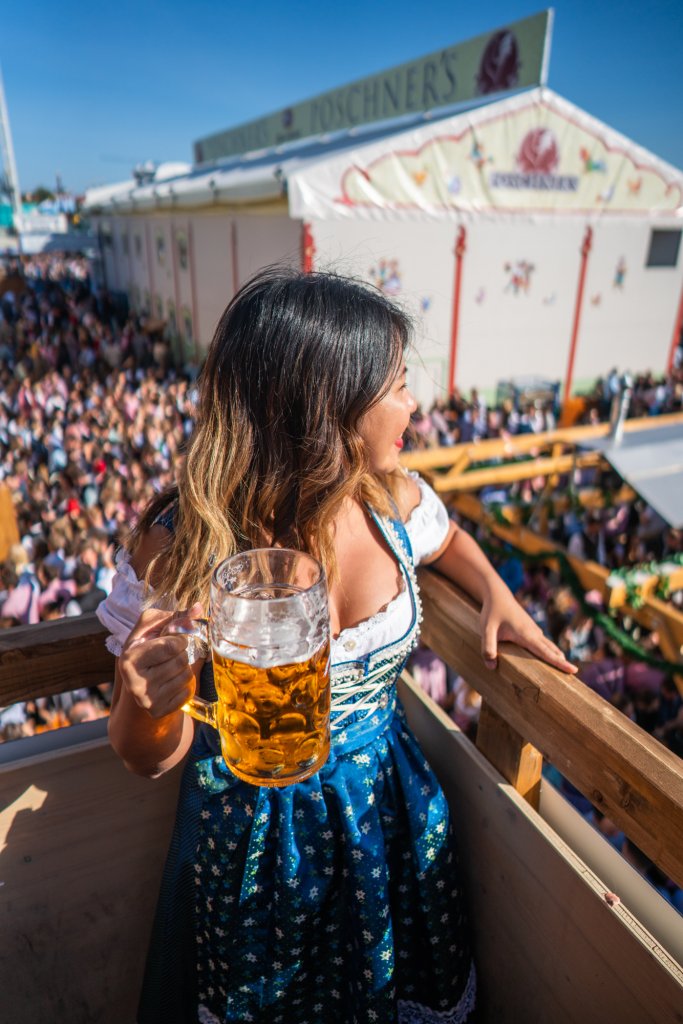
Visiting Fairytale Castles
If you love castles, I recommend avoiding Germany……. because you might just combust from sheer fangirl joy.
Seriously, Germany is every castle lover’s kryptonite, with elegant palaces and fairytale castles in the thousands. If you’re a Disney gal like me who grew up dreaming of happily ever afters, pack a ballgown and head to Germany ASAP.
I promise you won’t be disappointed.
Here are some castles that you must visit in Germany:
- Neuschwanstein Castle
- Nuremberg Castle
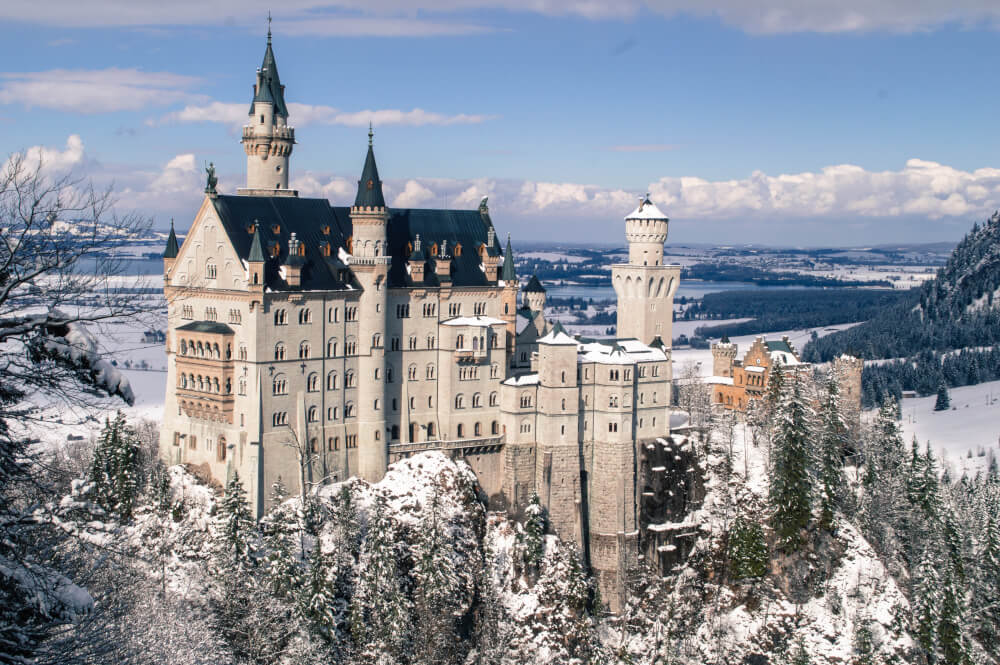
The Cherry Blossoms in Bonn
The cherry blossoms in Bonn (also the birthplace of Beethoven and gummy bear legend, Haribo) are absolutely spectacular, and 100% worth visiting in Spring time. In fact, I’d even say they’re one of the best things to see in Europe at Spring time.
Yes, you, too, can come frolic in these tunnels of pink! Here is my guide on where to find cherry blossoms in Bonn.
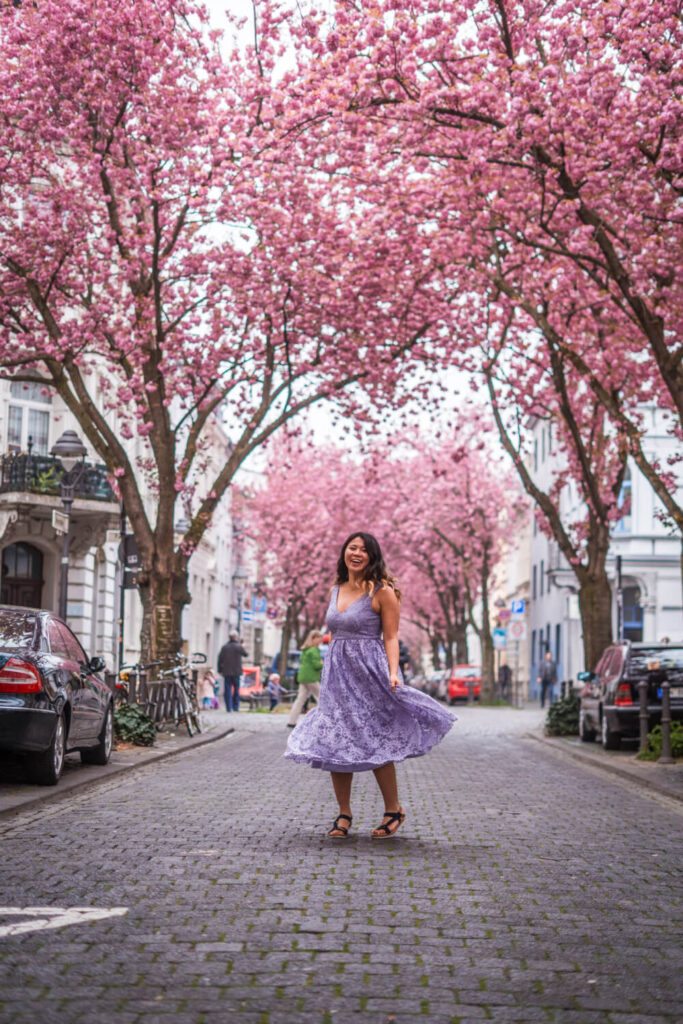
Karneval, Fasching, Etc.
Carnival Season is one of the best times to visit Germany if you’re looking for a party.
The grandest celebrations take place just before Lent, and are celebrated throughout the country, although the festivites in North-Rhine Westphalia are probably the best known.
My top recommendation? Go celebrate in Cologne, where the Kölner Karneval draws millions of visitors every year.
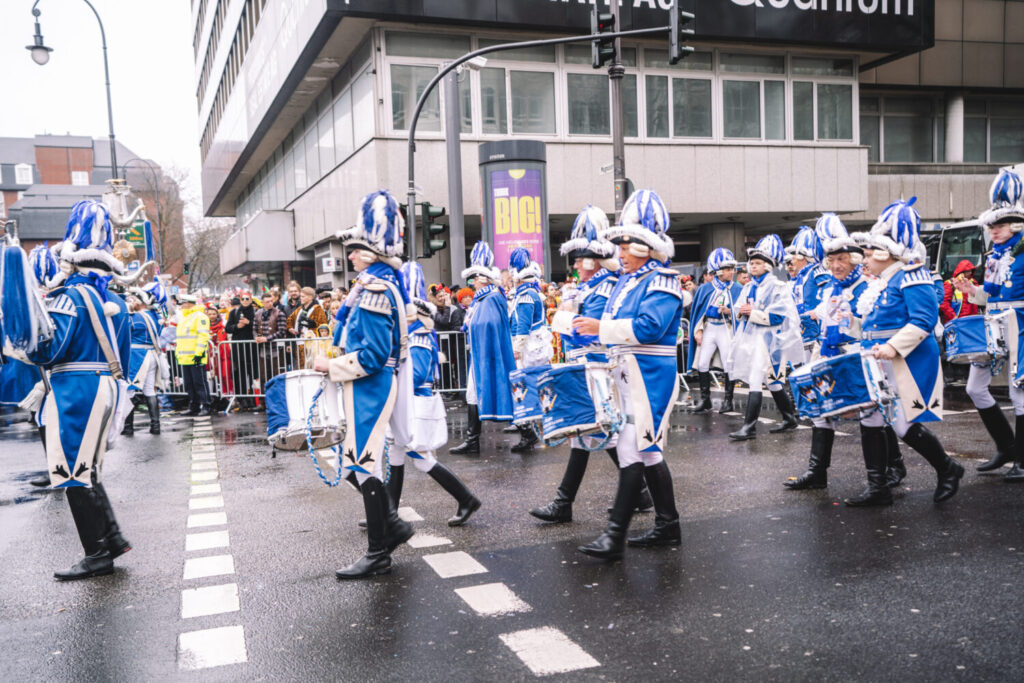
My Recommended Germany Itineraries
Germany is a huge country with a massive diversity in sights… so how can you organize your time efficiently and make the most of your trip? Here are some German trip itinerary ideas…
Germany itinerary ideas for a taste of everything:
- Southern Germany Classic: Munich, the Allgäu (for Castles!), Garmisch Partenkirchen, Berchtesgaden National Park, Stuttgart & Area, Black Forest
- Eastern Germany Classic: Berlin, Dresden, Saxon Switzerland
- Western Germany Classic: Aachen, Monschau, Eifel National Park
- Northern Germany Classic: Hamburg, Bremen , Lübeck, Kiel, Sylt
- The Rhine River Classic: Mainz, Koblenz, Burg Eltz, Cochem, Bonn, Cologne, Düsseldorf
- The Harz Mountains Experience: Harz Mountains, Goslar, Wernigerode, Quedlinburg
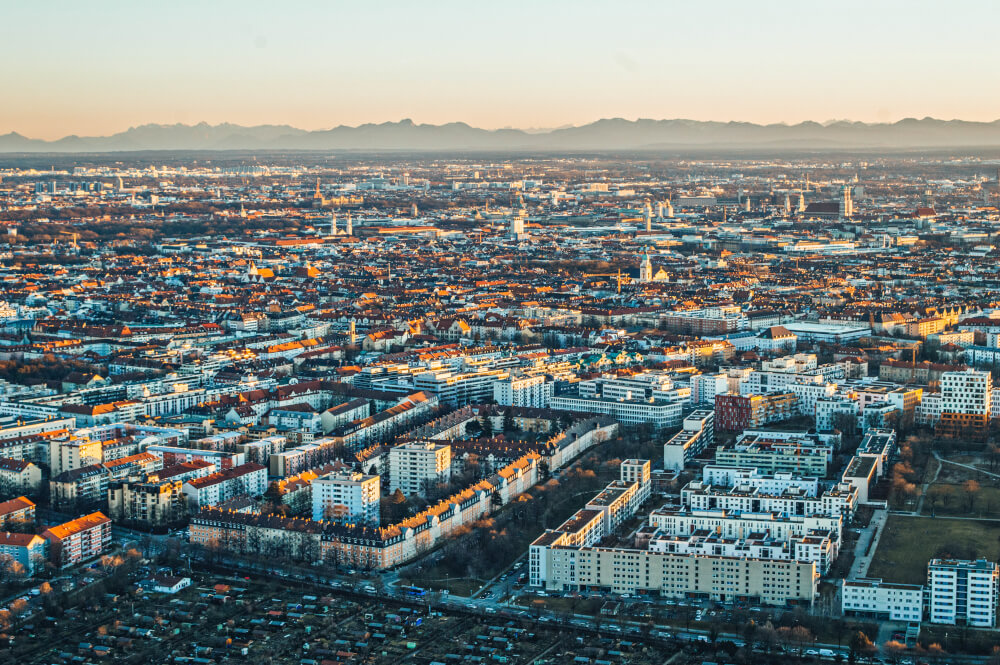
Germany itinerary ideas for city breakers and culture hunters:
- The Big City Tour: Berlin and Munich (a 4 hour express train connects them)
- The BaWu Special: Stuttgart, Ludwigsburg, Tübingen, Esslingen, Heidelberg
- The Bavaria Special: Munich, Nuremberg, Bamberg, Würzburg, Bayreuth
- The Saxony Special: Leipzig, Görlitz, Dresden
- The Rhine City Hop: Bonn, Cologne, Düsseldorf
- The Romantic Villages Hop: Würzburg, Dinkelsbühl, Nördlingen, Rothenburg ob der Tauber, Füssen
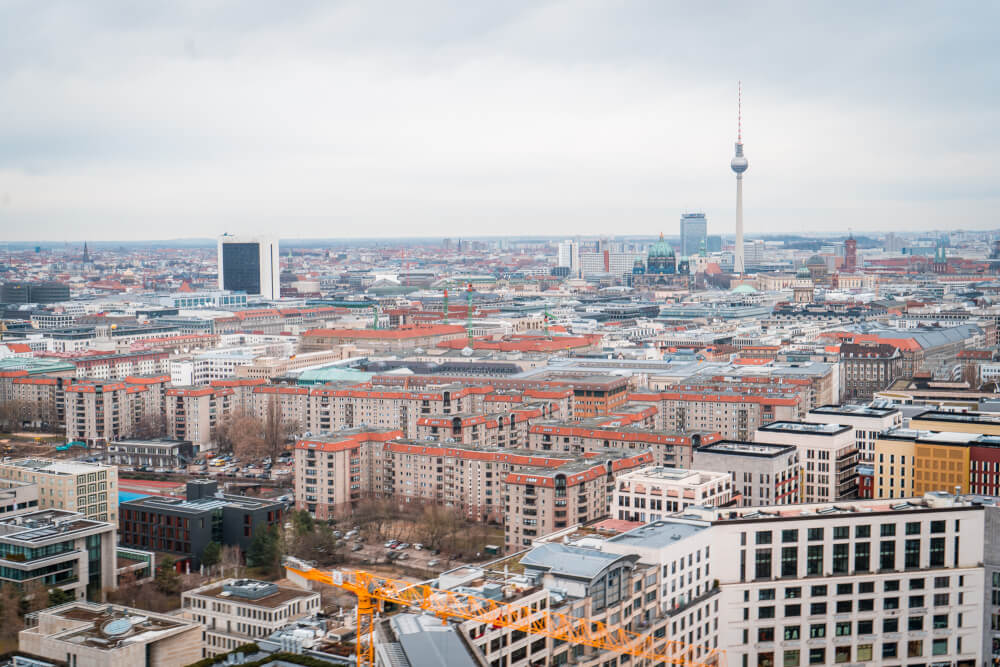
Germany itinerary ideas for nature lovers:
- Southern Germany Nature Itinerary: Berchtesgaden National Park, Garmisch-Partenkirchen, the Black Forest and Lake Constance (Bodensee)
- Bavaria’s Best Nature Itinerary: Berchtesgaden National Park, Garmisch-Partenkirchen, Munich’s Lake Region, Franconian Switzerland, Danube Gorge
- Eastern Germany Nature Itinerary: Dresden and Saxon Switzerland National Park
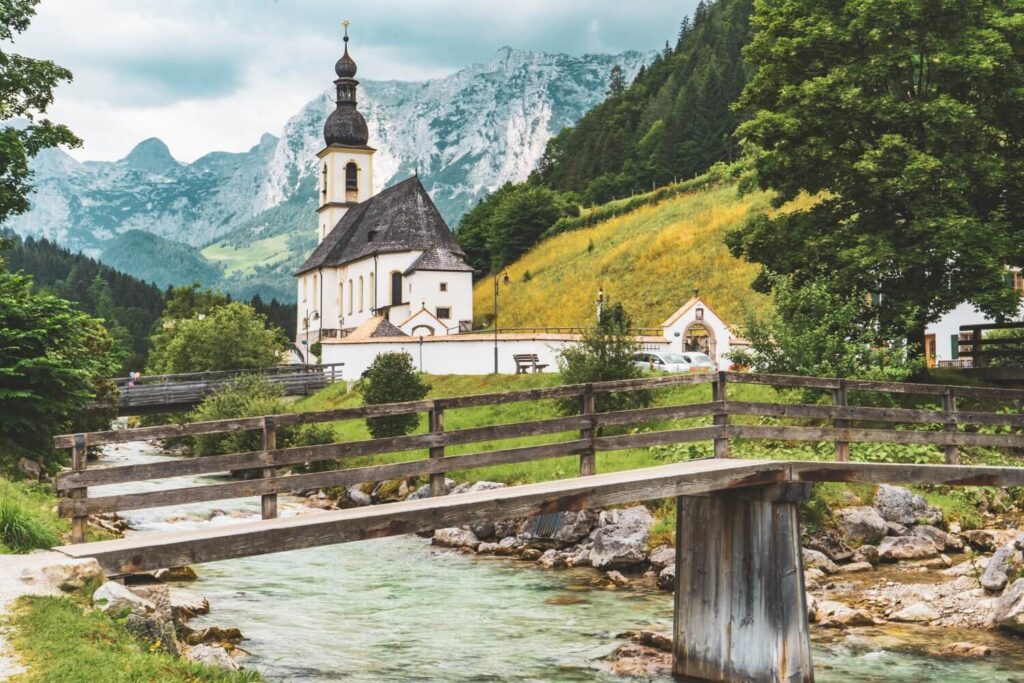
My Top Germany Travel Tips
- If you’re overwhelmed by transport options, Omio is a great resource for comparing trains, buses and flights in Germany at the same time.
- If travelling by train, look into group discount tickets like the Bayern Ticket which give you unlimited train travel for one day on regional trains. It can save you a TON of money.
- If you are traveling to multiple countries nearby (i.e. Switzerland), a Eurail pass might save you money.
Accommodation:
- Booking.com is a great place to search up hotels, and filtering by Free Cancellation allows you to book without paying upfront
- Airbnb can be a very affordable alternative for longer stays/bigger groups
Attractions and Tickets:
- GetYourGuide is a great site for finding tours and attraction tickets
- City passes like the Munich City Pass , Berlin Pass , and the Cologne Card can save you a LOT of money if you plan to visit many tourist attractions in a short time
- If you’re trying to find specific info about a place, try using Google Translate to search in German because German versions of sites always have more info
If you’re past the planning stage and heading to Germany soon, make sure you read this before you go:
- Hilarious must-knows before you visit Germany
More Germany Travel Reads
Feeling inspired to visit Germany after reading all that?
As you can (probably) tell, I’ve written extensively about Germany.
So, here are some more articles that might pique your interest:
- Unique Things to do in Germany (That You Can’t Do Anywhere Else)
- The Best Christmas Markets in Germany
- Hilarious Must-Knows Before You Visit Germany
My Go-To Travel Favourites:
🧳 Eagle Creek: My favourite packing cubes
💳 Wise: For FREE travel friendly credit cards
🍯 Airalo: My go-to eSIM
🏨 Booking.com: For searching hotels
📷 Sony A7IV: My (amazing) camera
✈️ Google Flights : For finding flight deals
🌎 WorldNomads: For travel insurance
🎉 GetYourGuide: For booking activities
4 thoughts on “The Only Germany Travel Guide You’ll Ever Need”
i found myself reading almost every post in your website for days and days and i ABSOLUTELY LOVE IT and adore and thank you for spending so much time and effort to make it so helpful, informative and fun to read. you have helped me plan my trip to munich in december and i cant wait to visit just because of your enthusiasm 🙂
We would like to Thank you for sharing such a beautiful blog! Very informative.
This Germany Travel Guide truly captures the multifaceted beauty of Deutschland, a country that has something to offer to everyone, from culture enthusiasts to nature lovers. Your personal anecdotes from living in Munich make it come alive, making me yearn for a taste of that amazing beer you’ve mentioned, and a wander around the English Garden! The varied seasonal highlights emphasize how Germany is a year-round destination, offering uniquely charming experiences, from the festive winter Christmas markets to the lively summer festivals. It’s heartening to know that navigating around the country is convenient, making it possible to explore its picturesque small towns and vibrant cities. This guide is a treasure trove for anyone planning to travel to Germany – it gives a well-rounded view of the country, infused with personal insights, which makes it even more valuable. I’m particularly intrigued to visit Munich, the city you so passionately call home.
As a Berliner, I can’t agree more with this guide. Germany truly is a delightful mix of tradition and innovation, natural beauty and urban charm, hearty cuisine and diverse cultures. Moving around in Germany is indeed quite convenient thanks to the well-organized public transportation system, including trains, buses, and trams. And yes, English is widely spoken in major cities, so communication shouldn’t be a problem for travelers. As for the varied dialects across regions, it just adds to the unique charm of exploring this beautiful country. Safe travels, fellow adventurers!
Leave a Comment Cancel reply
By using this form you agree with the storage and handling of your data by this website. *

Best Time to Visit Germany: Escape Crowds & Uncover Hidden Gems

- Post author: Avoid Crowds
- Post published: April 25, 2023
- Post category: Germany
- Post comments: 0 Comments
Guten Tag, fellow travelers! 🌍 Are you ready to embark on an unforgettable journey to the land of enchanting castles, picturesque landscapes, and lively beer gardens? Germany awaits you, offering a unique blend of history, culture, and natural beauty. But when is the best time to visit Germany while avoiding tourist crowds and uncovering hidden gems? Don’t worry, we’ve got you covered in this comprehensive guide! 🎉
Experience the magic of spring, with blooming landscapes and cultural festivals ☀️ Discover off-the-beaten-path adventures in the warm summer months 🍂 Embrace the vibrant colors and authentic experiences of autumn ❄️ Enjoy a winter wonderland of festive markets and alpine sports
Let’s dive into the details to help you plan the perfect German getaway, tailored to your preferences and filled with unique experiences!
Introduction to the Best Time to Visit Germany
Finding the best time to visit Germany depends on various factors, such as your preferred activities, regional climate, and the level of tourist crowds. In this section, we’ll explore these factors to help you determine the ideal time for your memorable German getaway.
Factors to Consider for a Memorable German Getaway
Weather: Germany experiences four distinct seasons, each with its own charm and appeal. Spring and autumn generally offer mild temperatures and vibrant landscapes, while summer provides warmth and sunshine, perfect for outdoor activities. Winter can be cold and snowy, especially in the alpine regions, making it an ideal time for winter sports enthusiasts.
Tourist Crowds: The peak tourist season in Germany is during the summer months of June, July, and August. To avoid crowds and enjoy a more relaxed atmosphere, consider visiting during the shoulder seasons of April-May or September-October.
Festivals and Events: Germany boasts a wide array of festivals and events throughout the year, such as Oktoberfest, Christmas markets, and wine festivals. Plan your visit around these events if you’re interested in experiencing German culture and traditions.
Budget: Traveling during the off-peak and shoulder seasons can result in lower accommodation and transportation costs, allowing you to enjoy your German vacation without breaking the bank.
By considering these factors, you can determine the best time to visit Germany that aligns with your preferences and interests, ensuring a memorable and enjoyable trip.

Spring: Blooming Landscapes and Cultural Experiences
Spring in Germany is a time of rebirth, as the country’s landscapes come alive with vibrant colors, blossoming flowers, and mild temperatures. This season offers an excellent opportunity to explore the country’s lesser-known cities and towns while enjoying a variety of outdoor activities and cultural experiences.
Exploring Lesser-Known German Cities and Towns
As tourist crowds have yet to reach their peak in spring, this is the perfect time to venture off the beaten path and explore Germany’s hidden gems:
Bamberg: Often referred to as “Little Venice,” this picturesque town features a stunning old town, beautiful canals, and historic half-timbered houses.
Tübingen: A university town with a rich history, Tübingen boasts a charming old town, a scenic riverside, and a lively atmosphere.
Quedlinburg: A UNESCO World Heritage Site, Quedlinburg is home to over 1,300 half-timbered houses and a well-preserved medieval town center.
Weimar: As a hub of German culture and history, Weimar offers numerous museums, historic sites, and beautiful parks to explore.
Outdoor Activities and Festivals in Spring
Spring is an ideal season for outdoor enthusiasts, with pleasant weather and blooming nature providing a stunning backdrop for various activities:
Hiking and Biking: Germany’s extensive network of trails and bike paths allows you to explore the country’s diverse landscapes, from lush forests to rolling vineyards.
Garden Tours: Visit the beautiful gardens of Germany, such as the English Garden in Munich or the Sanssouci Park in Potsdam, to enjoy the colorful spring blooms.
Rhine River Cruise: Embark on a leisurely cruise along the Rhine River to admire the breathtaking scenery, charming villages, and historic castles that line its banks.
Spring also brings a host of cultural events and festivals, including:
Munich ‘s Fruhlingsfest: Often referred to as “Little Oktoberfest,” this spring beer festival features traditional Bavarian music, food, and entertainment.
Dresden’s Music Festival: A celebration of classical music, this renowned festival showcases performances by top international artists in stunning venues across the city.
Berlin’ s Carnival of Cultures: This vibrant event celebrates the city’s cultural diversity with parades, live music, and street performances.
By visiting Germany in the spring, you can enjoy the country’s blooming landscapes, lesser-known cities, and unique cultural experiences without the hassle of summer crowds.

Summer: Warm Weather and Germany's Off-the-Beaten-Path Adventures
Summer in Germany is synonymous with warm weather, long sunny days, and vibrant outdoor life. While popular tourist attractions may be busier during this season, there are still plenty of off-the-beaten-path adventures to be had for those who seek them.
Avoiding Crowds at Popular German Attractions
To dodge the summer crowds, consider visiting popular attractions at off-peak hours, such as early mornings or late afternoons. Alternatively, you can:
- Opt for lesser-known museums or galleries instead of the most famous ones.
- Visit smaller towns and villages that offer a similar charm and history as their more popular counterparts.
- Take advantage of guided tours that cater to smaller groups or explore on your own with a self-guided itinerary.
Hidden Gems for Beach Lovers and Nature Enthusiasts
Germany may not be the first destination that comes to mind for beach holidays, but it boasts a beautiful coastline along the Baltic Sea with several hidden gems worth discovering:
- Rügen Island: Home to sandy beaches, dramatic chalk cliffs, and charming seaside resorts, Rügen is a popular summer destination for locals.
- Sylt Island: Known for its pristine beaches and relaxed atmosphere, Sylt is an ideal retreat for those seeking a tranquil getaway.
- Fischland-Darß-Zingst Peninsula: This picturesque area offers long stretches of sandy beaches, charming fishing villages, and a wealth of birdwatching opportunities.
Nature enthusiasts can also find plenty of off-the-beaten-path adventures in Germany’s vast and diverse landscapes:
- The Black Forest : Explore dense forests, rolling hills, and quaint villages in this iconic region, perfect for hiking, cycling, and enjoying local cuisine.
- Saxon Switzerland National Park: Discover the unique rock formations, deep valleys, and breathtaking vistas in this striking park, ideal for hiking, rock climbing, and photography.
- Eifel National Park: Home to diverse wildlife, volcanic landscapes, and serene lakes, Eifel is a haven for hikers, cyclists, and nature lovers alike.
With a little planning and creativity, you can enjoy a fantastic summer vacation in Germany, filled with warm weather, off-the-beaten-path adventures, and unforgettable experiences.
Germany's Alternative Itinerary
Germany travel tips, autumn: vibrant colors and authentic experiences.
Autumn is a magical season in Germany, as the landscapes transform into a tapestry of vibrant colors, and the air becomes crisp and cool. This time of year offers an abundance of authentic experiences, from exploring uncharted regions to indulging in culinary delights and harvest festivals.
Unexplored Regions of Germany in Fall
Fall is an excellent time to discover lesser-known regions of Germany, where the changing foliage creates a stunning backdrop for exploration. Some areas to consider include:
- Harz Mountains: This picturesque mountain range offers miles of hiking trails, enchanting forests, and charming medieval towns, all surrounded by the vibrant colors of autumn.
- Pfalz Forest: A sprawling nature reserve, the Pfalz Forest is home to diverse flora and fauna, providing the perfect setting for outdoor enthusiasts seeking tranquility and natural beauty.
- Hesse: This central German state boasts lush forests, historic towns, and the romantic Lahn River Valley, making it an ideal destination for a peaceful fall getaway.
Culinary Delights and Harvest Festivals
Germany’s autumn season is also known for its culinary delights and harvest festivals, offering visitors a chance to immerse themselves in the country’s rich traditions and flavors. Some highlights include:
- Wine Festivals: Germany’s wine regions, such as the Rhine Valley and Moselle Valley, come alive during the fall harvest season, with numerous wine festivals celebrating local vintages and culinary treats.
- Oktoberfest: This world-famous beer festival held in Munich draws millions of visitors each year, but there are also smaller, more intimate Oktoberfest celebrations in towns and cities across Germany.
- Kürbisausstellung Ludwigsburg: The Ludwigsburg Pumpkin Festival is a unique event showcasing an astonishing variety of pumpkins, along with pumpkin-themed culinary delights and competitions.
Autumn in Germany offers a diverse array of experiences, allowing visitors to embrace the season’s vibrant colors and delve into the country’s rich culinary traditions, all while exploring lesser-known regions and attractions.
Winter: A Wonderland of Festive Markets and Alpine Sports
Germany’s winter season transforms the country into a magical wonderland, with twinkling festive markets, snow-covered landscapes, and thrilling alpine sports. From charming villages and ski resorts to unique winter festivals and cultural events, there’s something for everyone to enjoy during this enchanting time of year.
Charming German Villages and Ski Resorts
Germany’s snow-capped mountains and charming villages create a picture-perfect winter setting. Some of the most popular destinations for winter getaways include:
- Garmisch-Partenkirchen: Nestled at the foot of the Zugspitze, Germany’s highest peak, this renowned ski resort offers stunning alpine scenery and a range of winter sports activities.
- Oberstdorf: As one of the country’s premier ski destinations, Oberstdorf boasts an array of ski slopes, picturesque winter hiking trails, and a charming village atmosphere.
- Rothenburg ob der Tauber: This well-preserved medieval town is particularly enchanting during the winter months, with its snow-dusted timber-framed houses and festive decorations.
Unique Winter Festivals and Cultural Events
Germany is known for its diverse winter festivals and cultural events that showcase the country’s rich traditions and vibrant spirit. Some notable events include:
- Christmas Markets: Held in cities and towns across Germany, these festive markets offer an array of handcrafted gifts, traditional food and drink, and lively entertainment.
- Fasching: Also known as Karneval or Fastnacht, this pre-Lenten festival features colorful parades, elaborate costumes, and lively celebrations in various regions of Germany.
- Biathlon World Cup: Held annually in Ruhpolding, this prestigious event attracts top biathletes from around the world to compete in a combination of cross-country skiing and rifle shooting.
Winter in Germany presents a captivating mix of festive markets, alpine sports, and unique cultural events, allowing visitors to experience the country’s enchanting charm and rich heritage during the colder months.

Timing Your Visit for Germany's Iconic Sights
When planning your trip to Germany, timing is crucial to ensure you make the most of the country’s iconic sights while minimizing the impact of crowds and tourist congestion. By employing smart strategies and seeking more authentic experiences, you can enjoy a memorable and immersive German vacation.
Smart Strategies to Dodge Crowds at Top Attractions
To avoid the crowds while visiting Germany’s most popular attractions, consider these tactics:
- Visit during the shoulder seasons of April-May or September-October, when tourist numbers are generally lower and the weather remains pleasant.
- Opt for weekdays over weekends, as attractions are typically less crowded on weekdays.
- Arrive early or visit late in the day, taking advantage of extended hours or evening events, when the majority of tourists have dispersed.
- Buy tickets for popular attractions in advance and avoid standing in line. Read more.
Tips for a More Authentic German Experience
To truly immerse yourself in German culture and explore the country’s lesser-known treasures, follow these tips:
- Stay in locally owned accommodations, such as guesthouses or bed and breakfasts, to experience genuine hospitality and gain insider knowledge.
- Explore regional cuisine at local markets, street food stalls, or family-run eateries for a taste of traditional German flavors.
- Learn basic German phrases and engage with locals to build connections and gain a deeper understanding of the country’s culture and traditions.
Conclusion: Your Guide to Smart Travel in Germany
Whether you’re drawn to Germany’s historical cities, stunning landscapes, or vibrant culture, smart travel planning can help you make the most of your journey. By considering the best time to visit, employing strategies to avoid crowds, and seeking authentic experiences, you can create an unforgettable German adventure tailored to your interests and preferences. Happy travels! 🇩🇪🌍🧳
Germany's Best time to Visit: Month by Month
You might also like.

Discover the Best Time to Visit Munich – A Complete Guide

5 reasons to book the Hamburg Harbor Day Cruise: Discover Speicherstadt & Iconic Landmarks

Worth it? Hamburg’s St. Pauli Tour: Dive into Sex, Crime & Secrets
Leave a reply cancel reply.

Summer in Germany: 19 Beautiful Places to Visit & Things to Do
This post may contain affiliate links. Read my disclaimer policy.
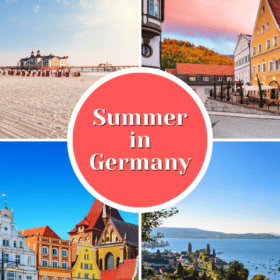
Planning a summer vacation to Germany? Here are the best summer destinations around Germany, along with some helpful travel tips!
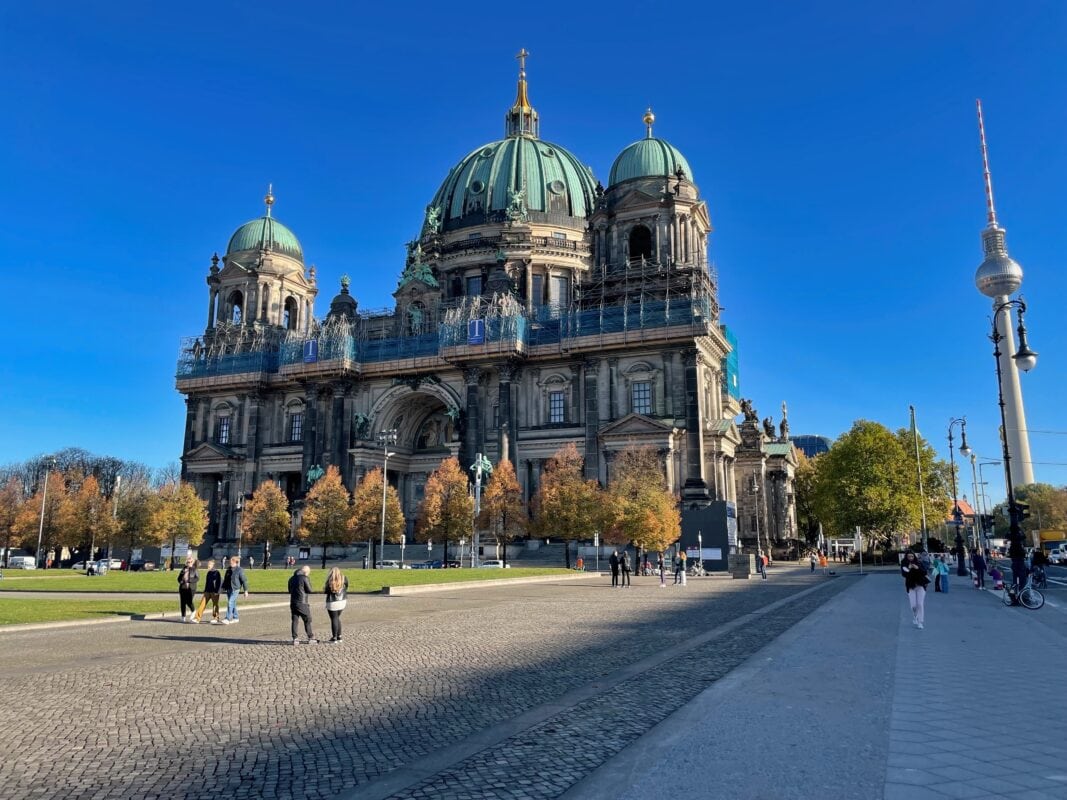
- 1 Is Summer a Good Time to Visit Germany?
- 2 What is Germany Like in the Summer?
- 3 What to Pack for Summer in Germany
- 4 Where to Go in Germany in Summer?
Is Summer a Good Time to Visit Germany?
Summer is many traveler’s favorite time to visit Germany.
If you’re a big fan of festivals or concerts, one of the biggest draws are all the cultural events that take place during these months. From lively wine and beer festivals to open-air concerts and street celebrations, there’s always something exciting happening all around the country.
It’s also a great time for outdoor activities, whether it’s hiking in the Alps, swimming in lakes, visiting the beaches of northern Germany, exploring national parks or cycling through picturesque countryside.
Join our FREE Germany Trip Planning Facebook Group!
Lastly, the warm and generally pleasant weather creates the perfect backdrop for sightseeing and taking pictures!
What is Germany Like in the Summer?
The summer months are typically considered to run from June through August, though warm summery weather can being in May and continue into September. I’ve been in Germany for more than one May or September heat wave!
During the summer you can expect anything from mild to warm temperatures to long, hot, sunny days. Hotter summers have become more frequent with global warming so heat waves are to be expected at some point during a typical summer.
But you also need to be prepared for rainy days, since these months actually have the highest average precipitation. I’ve also experienced days or even a couple weeks of cloudy, rainy weather.
In terms of travel, summer has always been the peak tourist season. We recommend booking everything from airfare, hotels , tours, and entrance tickets for popular sights like Neuschwanstein castle or the Reichstag dome in Berlin as early as possible to ensure a smooth and enjoyable trip.
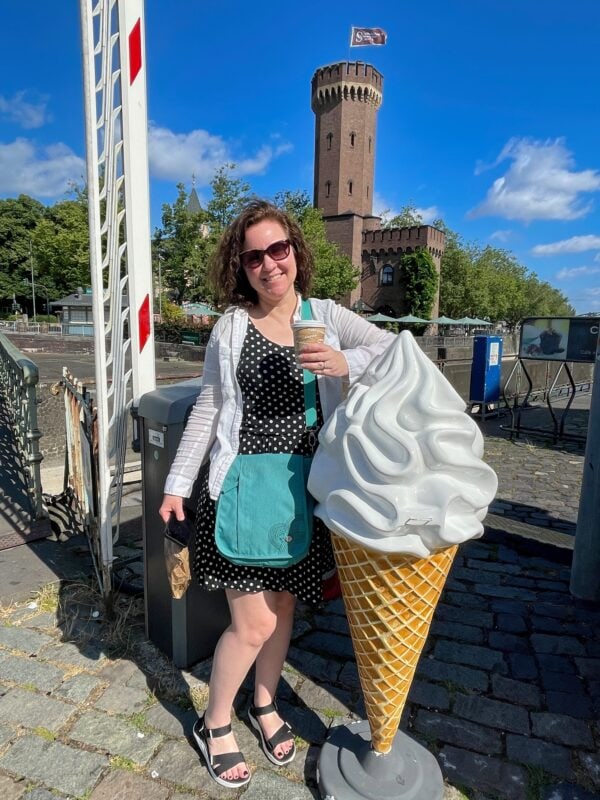
What to Pack for Summer in Germany
- Lightweight clothing: Pack breathable and versatile clothing like shorts, t-shirts, dresses, skirts, and lightweight pants
- Sun protection: Don’t forget sunscreen, sunglasses, and a hat to shield yourself from the sun
- Comfortable walking shoes: Bring sturdy, comfortable shoes for sightseeing! Hiking shoes are also a good idea if you plan to hike or do outdoor activities. I like to bring a pair of comfortable sandals to wear, as well.
- Swimsuit: Essential if you plan to visit lakes or coastal areas. Watershoes are also a good idea.
These are just a few essentials to get you started. For more tips, read our ultimate Germany packing list and the 15 things we always take with us to Germany (and beyond).
Where to Go in Germany in Summer?
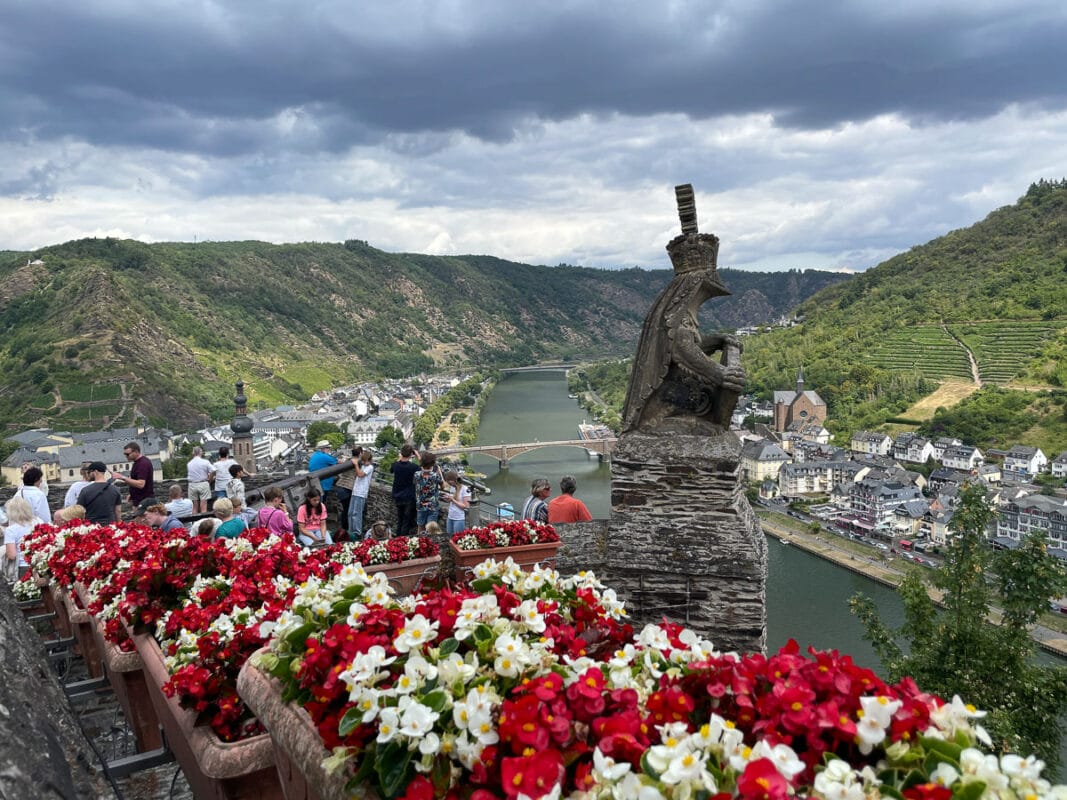
Rhine Valley & Moselle Valley
With their rolling vineyards, rivers glistening under the sun, surrounding beautiful towns and villages exuding a relaxed vibe, and the many castles, the Rhine Valley and Moselle Valley are popular travel destinations for the summer holidays.
Castle Eltz (Burg Eltz) is one of the main attractions in this area for many travelers and a must-see. Another attraction are the vineyards. Although harvest time is typically in the fall, it’s nice to visit during this time to see them in full bloom.
For all wine lovers, a fun activity would be to do a vineyard tour like this one in the Moselle Valley where you can spend soaking up the beautiful scenery, taste premium wines, and learn about the wine-making process of different vineyards.
The Moselle Valley region is also home to charming medieval villages like Cochem , Beilstein, and Bernkastel-Kues – all worth visiting for their fairy tale atmosphere and historic buildings.
Summer is also a great time to visit the area because the boat cruises along the rivers are running on a regular basis (provided the water level is high enough). The Rhine river especially is the perfect place to explore by boat tour. There are lots of different options to choose from depending on the route you prefer.
We recommend doing the Castles Tour river cruise operated by the Köln-Düsseldorfer cruise line. This boat ride from Bingen to Koblenz takes you to many of the castles in the Middle Rhine. You can also do a shorter portion if you prefer. We’ve done the Bingen to St. Goar portion and enjoyed it.
Along the way, you can explore any of the quaint medieval towns by the river like Bacharach, Rüdesheim, Boppard, or St. Goar. It’s also a good idea to visit these small towns during summer because the majority of shops and restaurants are open full hours!
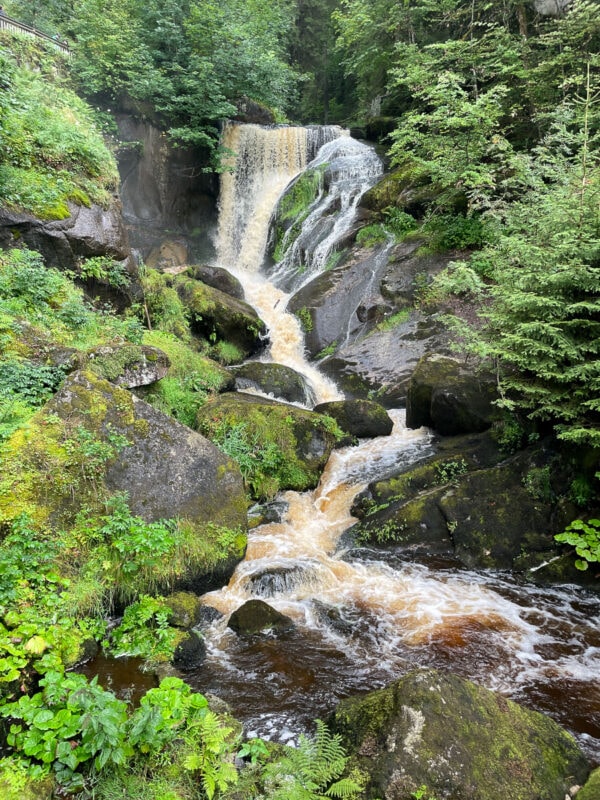
Black Forest
Another popular destination during summer is the Black Forest. It’s a beloved region for good reason! It’s associated with a variety of things like the famous Brothers Grimm fairy tales, Black Black Forest cake, breathtaking natural beauty, and charming historic cities like Freiburg , Triberg, and Gengenbach.
The diverse landscape of the Black Forest makes it a great place to do a wide range of outdoor activities – perfect for nature lovers!
There are lots of different hiking and walking trails that go through scenic wonders like the Triberg waterfalls, Ravenna Gorge and the Wutach Gorge, and mountain peaks like Feldberg and Schauinsland. If you’re looking for something more laidback, there’s nothing better than spending a day relaxing or swimming in any of the Black Forest’s pristine, beautiful lakes like Schluchsee (largest lake in the region), Titisee, or Mummelsee.
The region is also famous for spa towns like Baden-Baden and Bad Wildbad, where you can relax in thermal baths or hot springs.
If you’re traveling with family, a fun thing to add to your itinerary is the Europa-Park in Rust. It’s the largest theme park in Germany with over 18 different themed areas and 13 roller coasters.
Another one of the best things about visiting the Black Forest is its location! If you’re looking to maximize your summer holiday by visiting another European country, you can easily take a day trip to France or Switzerland!
Colmar, a picturesque French city known as Little Venice, is only around an hour away from Freiburg. Larger Strasbourg is another an easy France day trip. Also located an hour away is Basel in Switzerland, known for its historic center and a great starting point for exploring the rest of Switzerland.
These are just some things you can do during your summer stay in the Black Forest , but make sure to read our complete guide of things to do and see year-round!
Lake Constance (Bodensee)
There’s no better time to visit Lake Constance than summer! This crystal-clear lake is a popular tourist destination but it’s also a favorite place for many locals. It’s located near the Swiss and Austrian border at the foot of the Alps in southern Germany and not too far from Lichtenstein.
Konstanz is the largest city on the lake, known for its historic old town and the nearby Mainau Island. There’s also Lindau, situated on an island in the eastern part of the lake, with its charming old town, harbor, and the Lindau Lighthouse. Meersburg, Friedrichshafen, and Überlingen are other beautiful towns on the lake.
For fans of water sports, the lake is ideal for sailing, wakeboarding, windsurfing, and canoeing. You can rent equipment or join local classes to try these activities. The well-maintained cycling path that encircles the lake is perfect for bike enthusiasts, offering picturesque views of villages, vineyards, and the lakeshore.
Summer is also festival season around the lake, with live music, open-air shows, and cultural special events taking place in the various towns and cities.
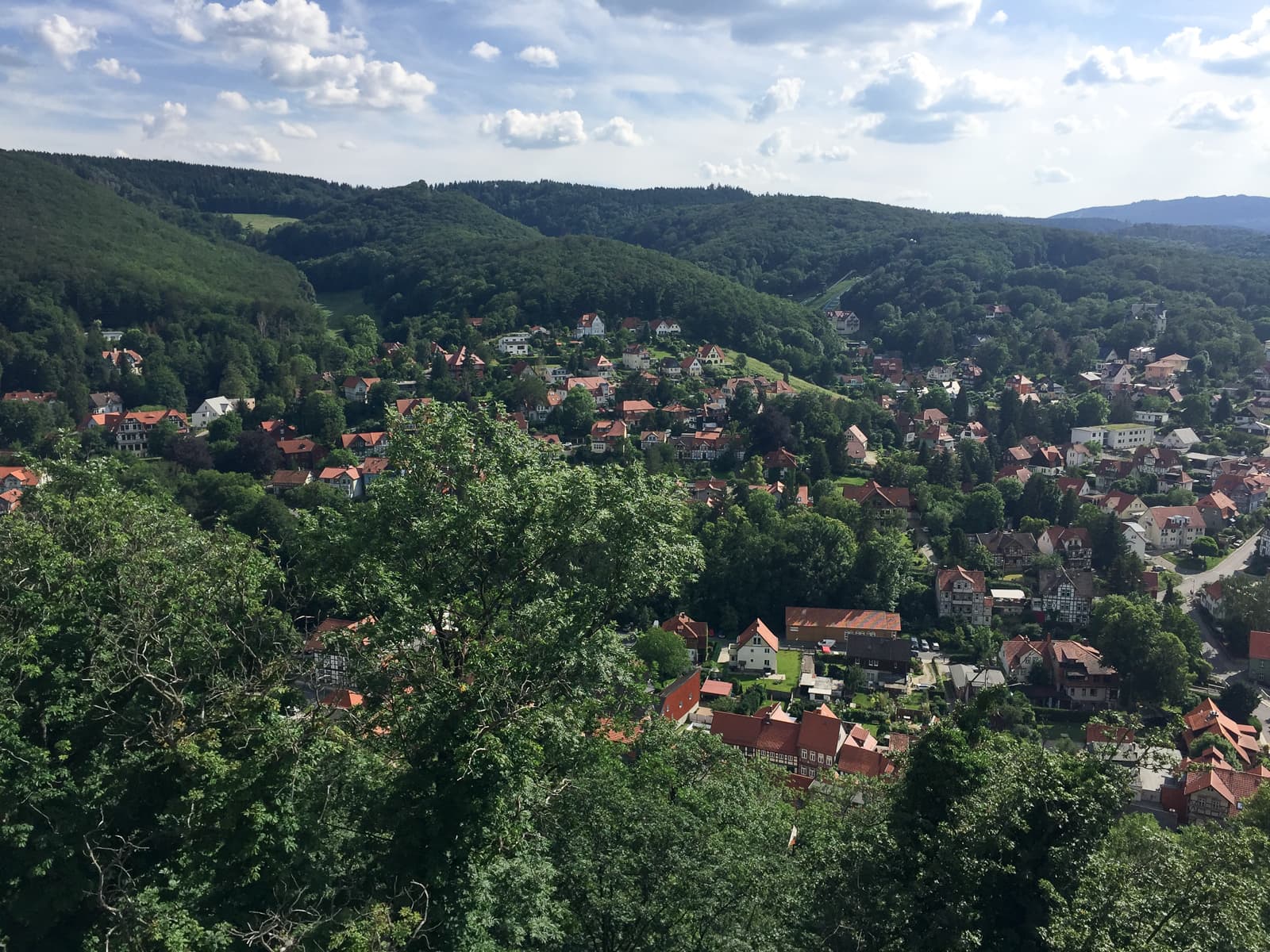
Harz Mountains
The Harz Mountains region in northern Germany is another haven for outdoor enthusiasts. Summer is an ideal season to visit and make the most out of the vast network of hiking and nature trails for all skill levels.
If you’re a bit more experienced, we recommend hiking the Brocken, which is the highest peak in the Harz. It’s a relatively strenuous and steep hike but you’ll be rewarded with spectacular views.
But if you prefer to skip out on the hike, there are other ways to explore the mountains! The region is known for its historic narrow-gauge railways, like the Harzquerbahn and Brockenbahn, which offer scenic train rides through the mountains. You can also drive to scenic outlooks.
Don’t miss out on charming towns like Wernigerode, Quedlinburg, and Goslar, with their well-preserved medieval architecture. The region has a rich history associated with mining and the vast network of mines in these towns have been recognized as a UNESCO World Heritage Site. Some other famous landmarks include the and the Quedlinburg Castle-Hill and Wernigerode Castle, which can be reached by the Harzquerbahn or on foot.
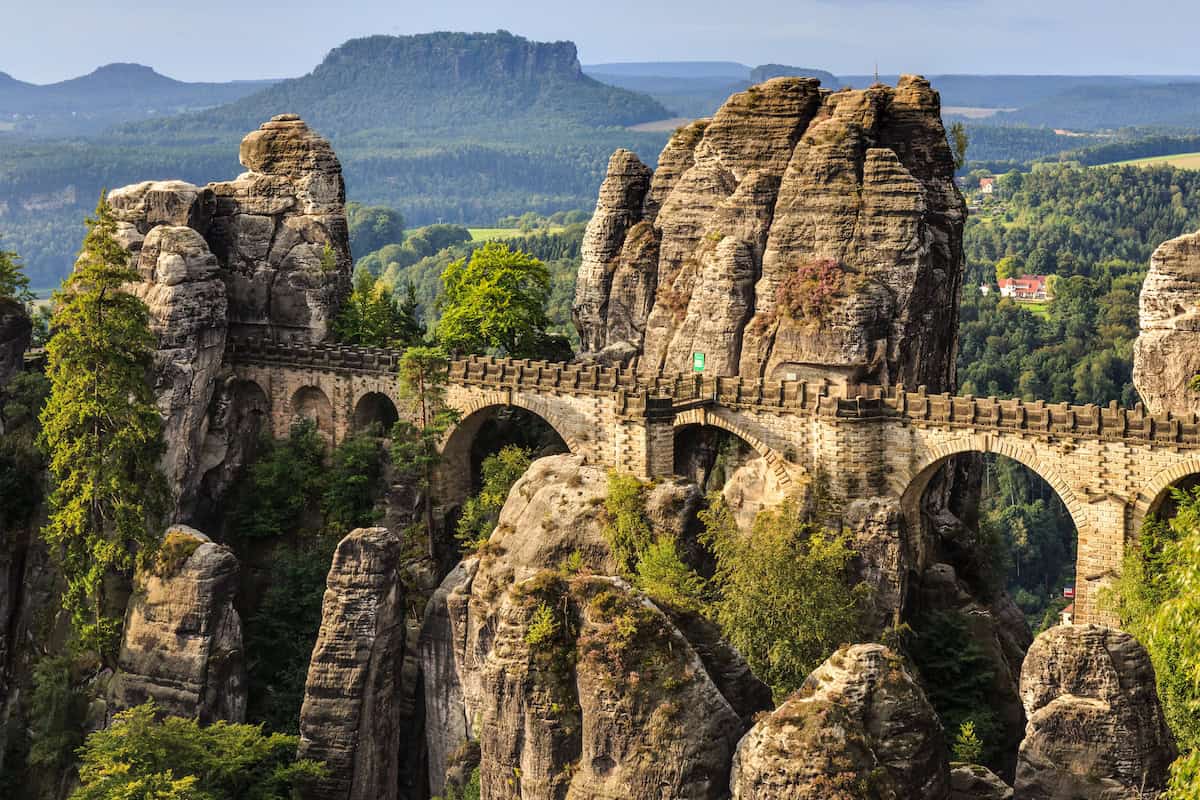
Saxon Switzerland
Saxon Switzerland is one of the most unique places in Germany, characterized by its striking sandstone cliffs and dramatic gorges. The summer months are a perfect time to admire the vibrant landscapes and go on outdoor adventures.
We’ve day tripped here a couple times from Dresden but you can also spend a couple days exploring the region.
The Saxon Switzerland National Park is home to hiking trails with varying levels of difficulty. One of the most popular routes is the Malerweg (Painter’s Way) which winds through picturesque valleys and offers views from rocky outcrops.
This route leads you to the famous Bastei Bridge , stunning, bizarre rock formations that stand over 600 feet over the river Elbe. Rock climbing is also a very popular activity here because of the rich variety of sandstone formations, but climbers must be trained and follow certain rules to protect the cliffs.
For a more leisurely experience, you can take a scenic steamboat cruise along the Elbe River, passing by the sandstone formations and charming villages, like Bad Schandau and Kurort Rathen. Here you’ll find the Rathen Open Air Stage, a natural stage in a deep valley that’s used as an open-air theater. During summer weekends, you can watch shows varying from traditional performances, musicals, and plays.
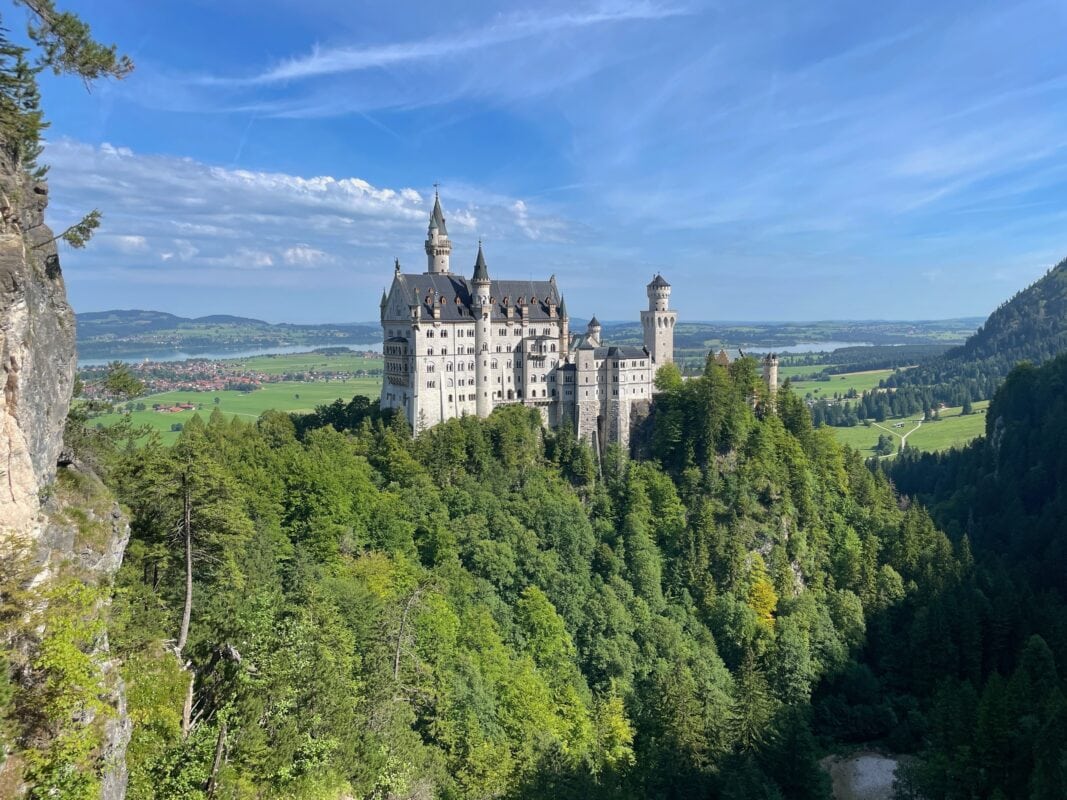
Füssen Area (Neuschwanstein Castle and More)
Fussen serves as a gateway to one of Germany’s most popular tourist attractions, Neuschwanstein Castle . This fairytale castle receives tons of visitors year-round, but summer is especially busy. With its iconic turrets and picturesque backdrop of the Bavarian Alps, it’s easy to see why it’s so popular.
If you’re looking for something less touristy, we recommend going to the Tegelberg! The Tegelberg mountain rises steeply from the foothills of the Alps near Schwangau and offers different outdoor activities. You can hike along scenic trails or take the Tegelbergbahn cable car to the summit.
If you’re feeling adventurous, experience the thrill of paragliding and view the landscape of the castle and lakes like Alpsee and Forggensee from above. In the summer, the Sommerrodelbahn or summer luge ride is finally open! It’s located directly at the foot of the mountain and is a fun activity for kids and adults alike.
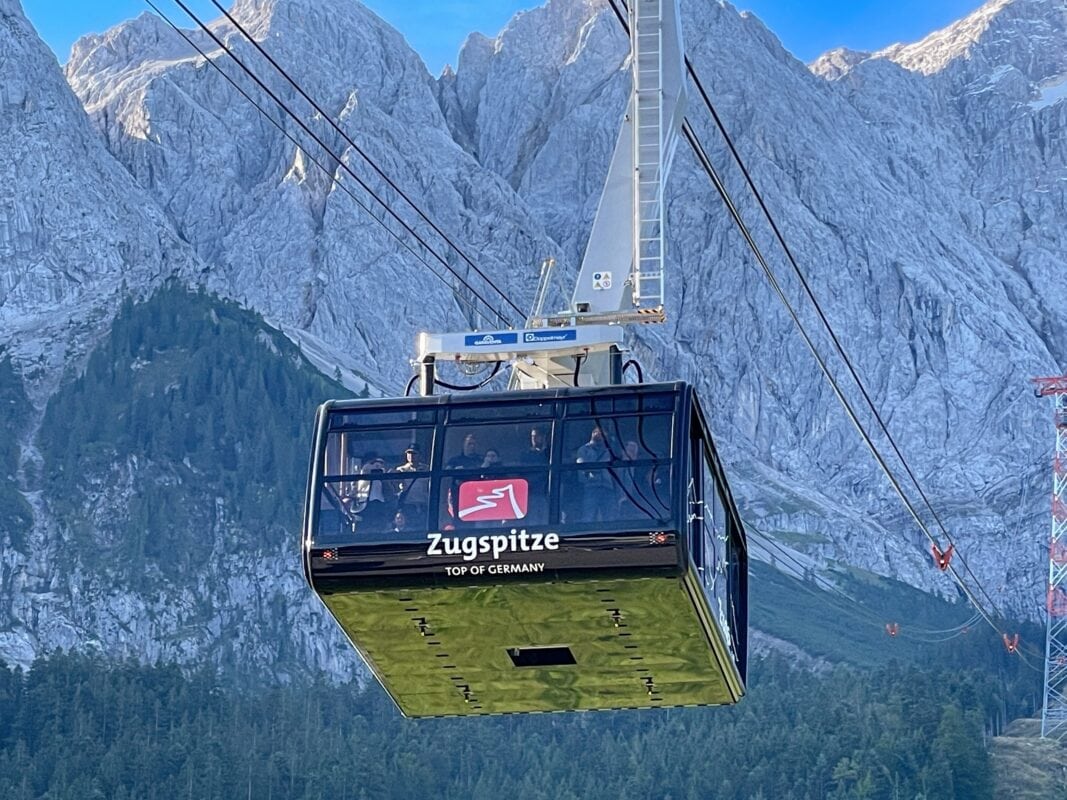
Zugspitze & Eibsee
Eibsee is a lake at the base of the Zugspitze mountain. In the summer, the crystal-clear waters are great for renting boats and cooling off from the heat by swimming in the cold water. You can also hike around the lake (takes approximately 2 hours – I recommend going in the morning when it’s cooler) as an enjoyable way to take in stunning mountain views. After a long day of summer activities, you can grab a drink and relax at the lakeside beer garden.
Zugspitze, the highest peak in Germany, is situated south of the town of Garmisch-Partenkirchen in Bavaria. While it may be more known as a ski resort, summer is a good time to visit this area, too. There may even still be enough snow on the glacier for sledding. But summer also provides the opportunity to hike to the very top of Zugspitze to get panoramic views, especially during clear, sunny days. However, do keep in mind that it can get quite crowded in the summer months.
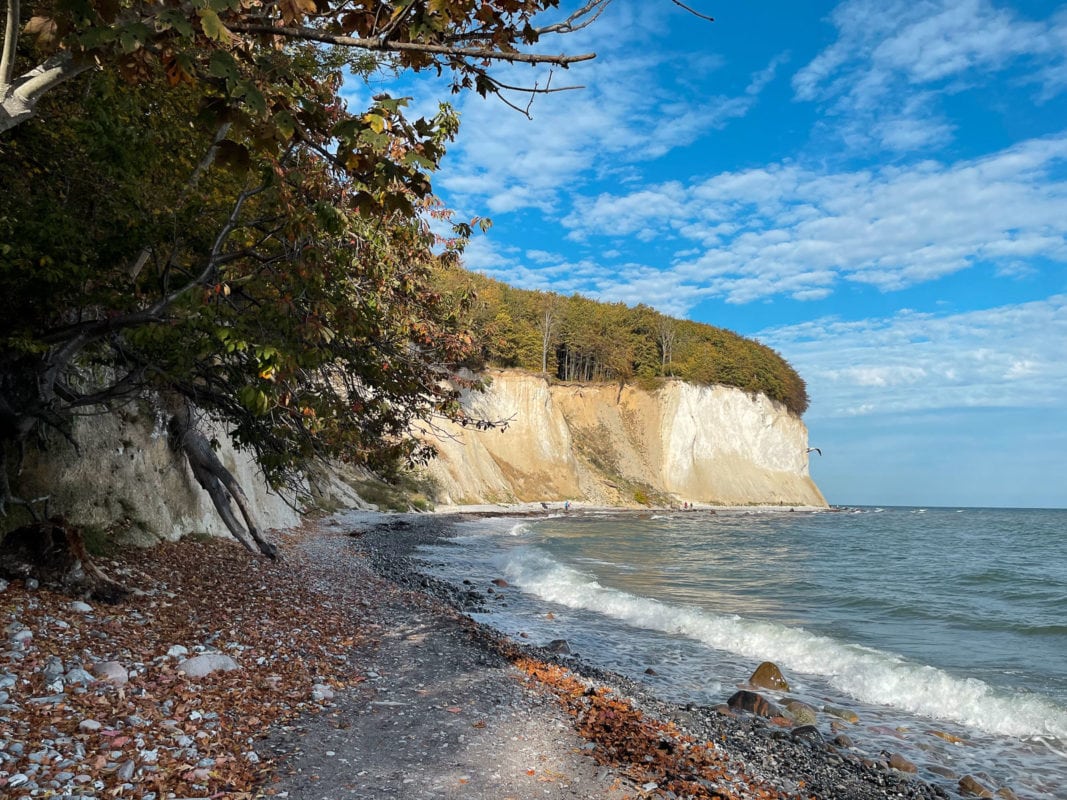
Rügen Island
Summer on Rügen Island, which is tucked away on the Baltic Sea in northeastern Germany, is a coastal paradise that remains somewhat off the beaten path for many non-German travelers – perfect for avoiding the crowds of tourists during the summer peak season.
The island is known for its sprawling coastline and beautiful beaches. Rügen is a place of relaxation. You can stroll through charming seaside towns like Binz and Göhren, where you can enjoy ice cream on the promenade or enjoy seafood at waterfront restaurants in the fresh sea air.
For more active things to do, there are plenty of hiking trails in the chalk cliffs of Jasmund National Park, offering panoramic views of the coastline.For a unique experience, hop on a ferry to Hiddensee, Rügen’s carless neighbor. Here, you’ll find unspoiled beach landscapes and a tranquil atmosphere. It’s the best way to truly unwind and disconnect!
Across from Rügen Island you’ll find Stralsund, a German city that combines the laid back atmosphere of the coast with history and culture. The Old Town of Stralsund is a UNESCO World Heritage site. It’s home to important buildings like the Gothic Old Town Hall and historic churches like St. Mary’s Church.
The town’s location on the coast offers fantastic opportunities for relaxed days by the waterfront, taking in the sea breeze. Stralsund’s waterfront promenades with their outdoor cafes and restaurants are a great spot to sip on local beers while enjoying summer sunsets over the Baltic sea. You can also easily take a ferry to the nearby islands of Rügen and Hiddensee for more summer beachfront adventures. We really enjoyed exploring Stralsund when we spent a week on Rügen.
Rostock, a vibrant coastal city in northern Germany, is a fantastic destination to explore during the summer season. Its sandy beaches along the Baltic Sea coast, especially Warnemünde Beach, invite sunbathing, swimming, and leisurely strolls along the promenade. The nearby seaside district of Warnemünde makes for a great day trip for an even more relaxing atmosphere by the beachfront and marina.
If you plan your visit in August, don’t miss the Hanse Sail, one of the largest maritime festivals in the Baltic region! During this festival, over 250 traditional ships of all types from all over the world visit the coast of the city of Rostock. There’s also another maritime event that takes place later on in September called the Rostock Cruise Festival, where cruise ships are accompanied by fireworks as they sail out onto the Baltic Sea.
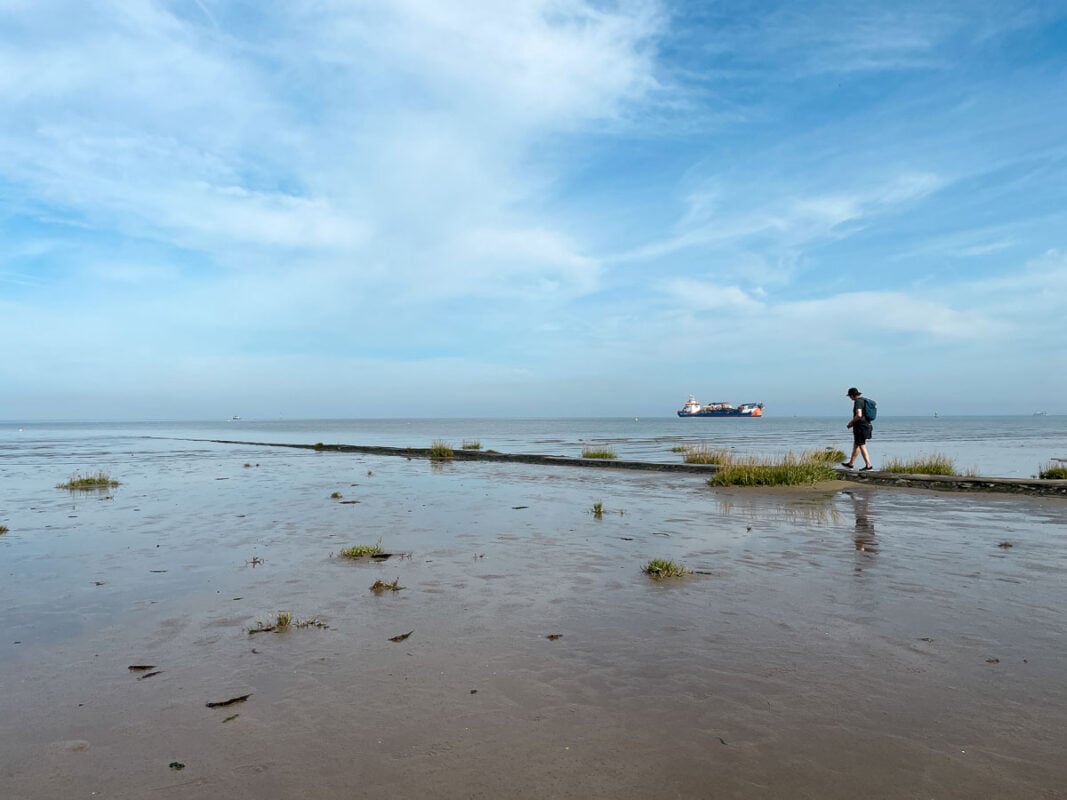
Wattenmeer (Wadden Sea)
The Wattenmeer is an intertidal zone made up of mudflats, sandy shoals, dunes, wetlands that stretches along Germany’s northern coastline by the North Sea. This is one of the most beautiful places in Germany because it has remained largely undisturbed. It has also been recognized as a UNESCO World Heritage Site for its natural beauty and diverse flora and fauna.
Summer is an ideal time to visit and try unique outdoor activities. During low tide, you can join guided mudflat hiking tours to walk across the exposed mudflats while discovering marine life like crabs and shellfish. As an important stopover for migratory birds, summer brings increased bird activity so avid bird watchers will be able to spot a variety of species.
There are also usually seal safari tours operating throughout June to September, allowing you to observe these creatures lounging on sandbanks or swimming gracefully in the water from a safe distance.
The Wadden Sea is also dotted with picturesque islands like Sylt, Föhr and Amrum. In summer, ferries and boats offer regular services, making it convenient to explore these islands’ unique cultures, landscapes, and beaches.

Würzburg
Würzburg, a charming city in the heart of Bavaria, truly shines during the summer months. With its stunning architecture, lush greenery, and vibrant cultural scene, it’s an ideal destination for the warm months.
One of the quintessential summer experiences in Würzburg is savoring the local wine. The city is located in the Franconian wine region, known for its excellent white wines particularly the Silvaner and Müller-Thurgau varieties.
You’ll find numerous vineyards and wine cellars in and around Würzburg, making it a wine enthusiast’s paradise. The best way to enjoy these wines is at one of the many outdoor restaurants or wine bars or on the Old Main Bridge with picturesque views of the city and the Main River. We not only enjoyed a glass of local wine on the Old Bridge but also picked up a bottle in the farmer’s market in the Marktplatz.
The city’s green spaces, like Hofgarten or the Ringpark along the river, are also great spots for picnics with wine or leisurely strolls.
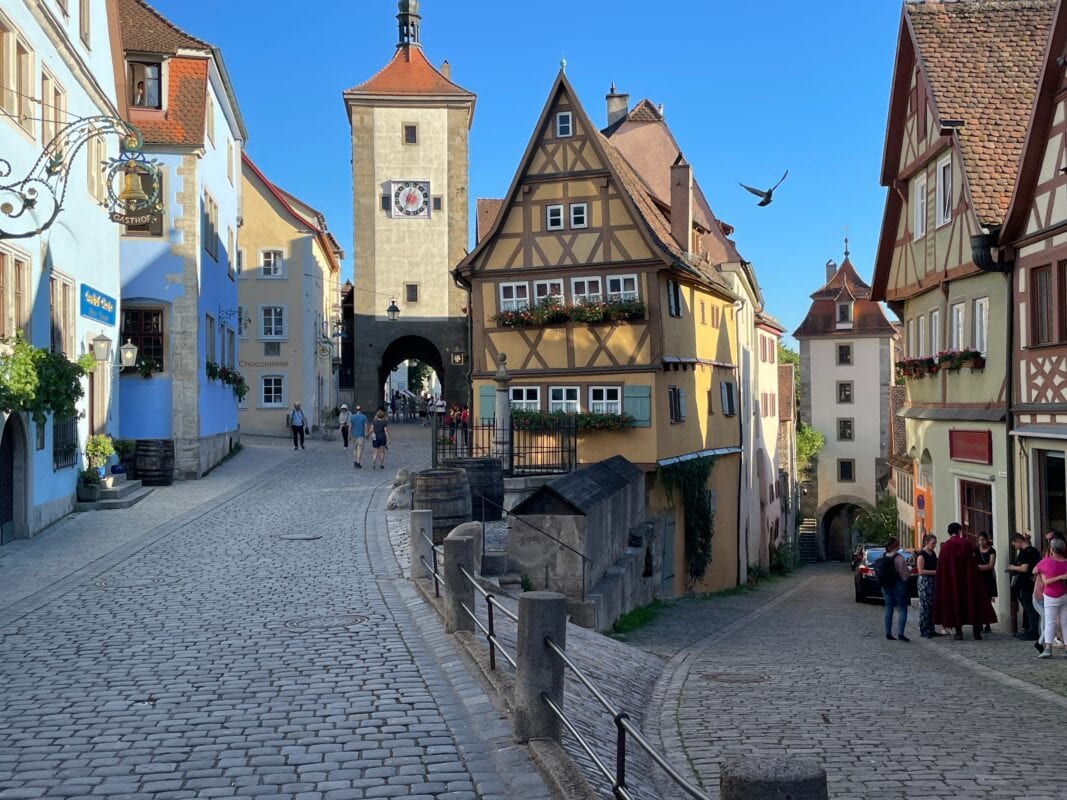
Rothenburg ob der Tauber
Rothenburg ob der Tauber, a town frozen in time with its well-preserved medieval architecture and intact city walls, is especially enchanting in the summer. One of the highlights during this season is the Night Watchman Tour . While this tour is available throughout the year, they offer it more regularly during the summer.
In this walking tour, you’ll be guided by the Night Watchman, in his traditional attire, who takes you on a humorous journey back in time through the cobbled streets of Rothenburg after dark. This tour is offered in English and in German.
Summer also brings a vibrant festival atmosphere to Rothenburg. The town hosts various events like music festivals and outdoor performances in its charming squares. Aside from this, the weather is just great for getting lost in the charming streets of Old Town. But do keep in mind that Rothenburg is quite touristy so it can get very crowded during the day since it’s peak season.
Read our full guide on the best things to do and see in Rothenburg!
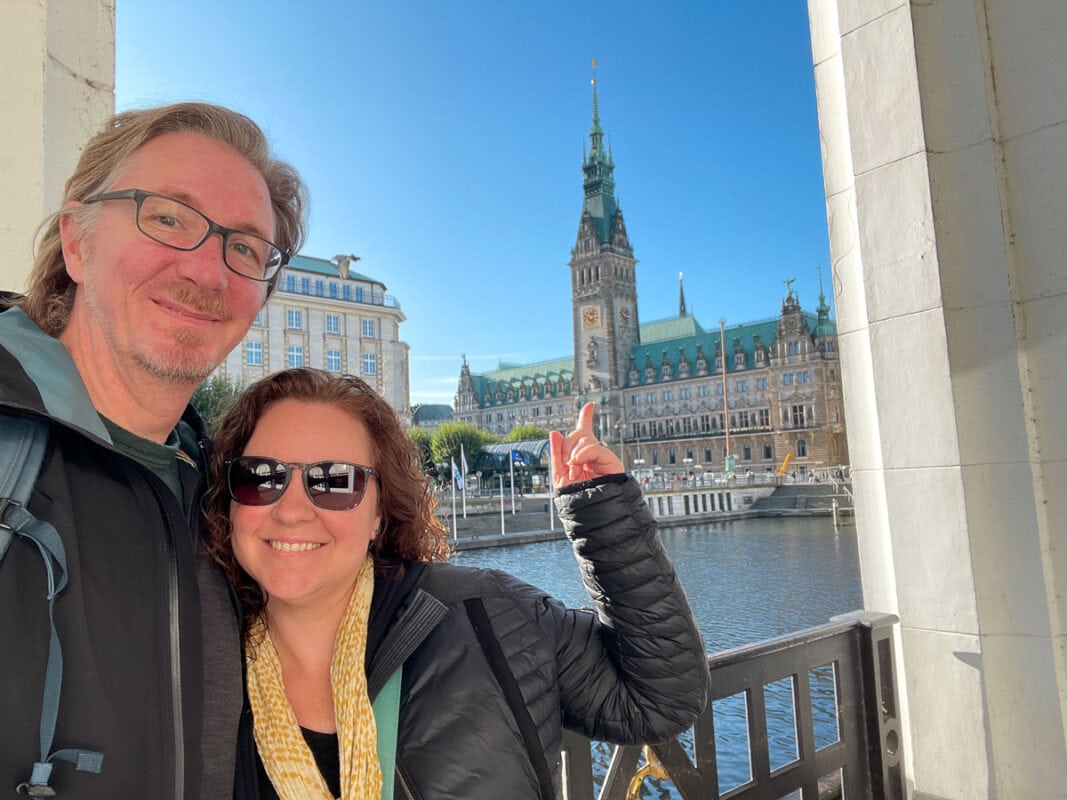
Hamburg is one of the best cities to visit during summer! You’ll get to experience the city in full swing with outdoor festivals and events like the Christopher Street Day Parade in early August and Isamarkt – an outdoor market that is nearly 1 km long (fun fact: I used to walk through this market on my way home from school when I lived in Hamburg as a teen).
Because of the warm, pleasant weather, it’s also the best time for going on boat trips along the harbor or exploring the canals by canoe (which is super fun). The Alster Lake is also a popular spot during summer for barbecues, swimming, or simply relaxing by the shore.
Check out our accommodation guide for the best places to stay in Hamburg!
For an exciting summer adventure, you can also go on a day trip to Heligoland, a small archipelago in the North Sea that’s easily accessible by ferry. It’s known for its white sand dunes, beautiful red rock cliffs, and diverse bird colonies.
If you want to stay closer to the city, the Elbstrand beaches, such as Övelgönne and Wittenbergen, are a good option. These urban beaches provide a quick escape from the urban hustle and bustle. Read our full guide on the top things to do and see in Hamburg!
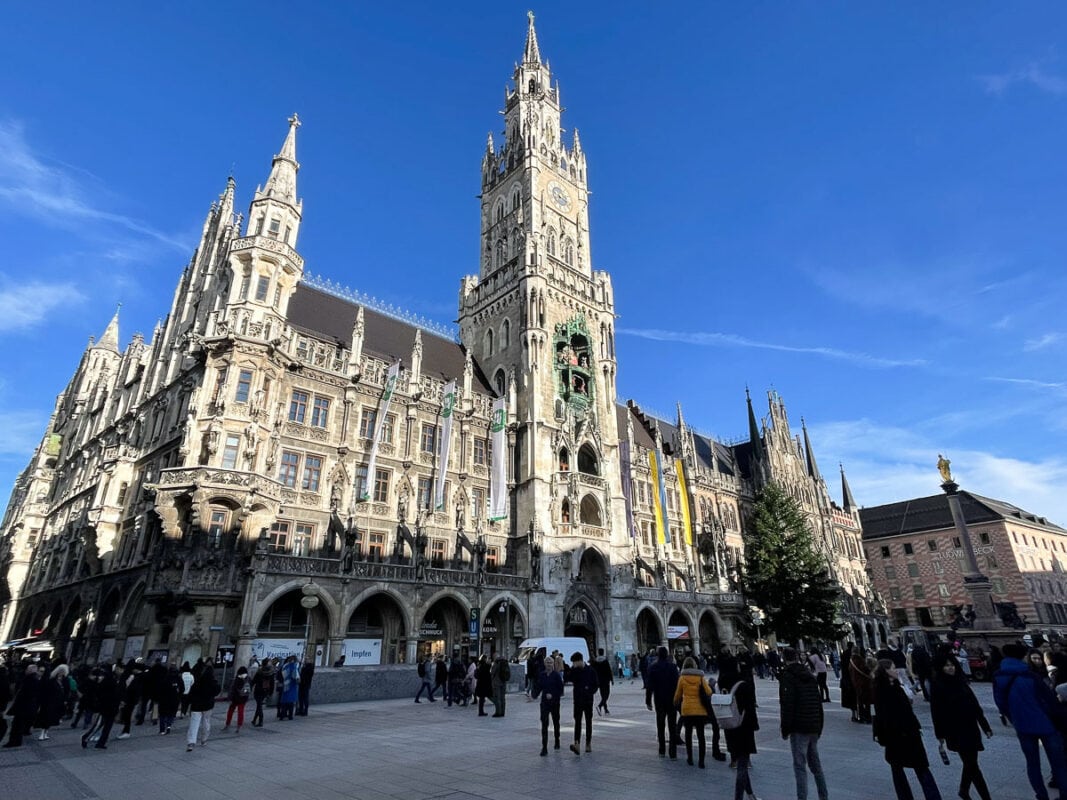
As one of the most popular German cities for visitors, Munich is always bustling with life and activity and summer is no exception. One of the city’s most iconic summer traditions is the beer garden experience, which you can find all throughout the city center. A must-visit is the Chinese Tower Beer Garden in the English Garden. It’s one of the biggest ones with over 7,000 seats. It’s also connected to a restaurant where you can enjoy Bavarian cuisine and on certain days, there’s live music performances which adds to the fun and lively summer atmosphere.
Aside from the Chinese Tower, the English Garden is a popular spot for just hanging out, picnicking, or strolling around. One unique feature is the Eisbach, a man-made river that flows through the park. In the summer, you can even float down the river or just watch surfers riding the waves.
Check out our accommodation guide for the best places to stay in Munich!
Summer also brings a lot of festivals in Munich. One of the highlights is the Tollwood Summer Festival held in the Olympiapark usually from June to September. This multicultural event features live music, art installations, a vibrant market with handcrafts and international gastronomy. Read our full guide on the top things to do and see in Munich!
While you may think of Frankfurt as mainly a city for transiting or layovers , the city is worth exploring for a day, especially during summer! There are several events and outdoor activities taking place like Museumsuferfest, a multi-day cultural festival held along the banks of the River Main during the last weekend of August. It features stage productions, live music performances, art exhibitions, museum presentations, and delicious food stands. If you’re a big fan of classical music, the Palmengarten (Frankfurt’s botanical garden) also hosts open-air concerts during the summer months amidst the blooming greenery.
Check out our accommodation guide for the best places to stay in Frankfurt!
Frankfurt is also a great base to do day trips to nearby castles , wine festivals, and scenic landscapes. In the Frankfurt Rhine-Main region you’ll find festivals like the Rheingau Wine Festival in August where you can sample excellent local wines. For outdoor enthusiasts, the Taunus Mountains, located a 40-minute drive from Frankfurt, offer a range of recreational opportunities like hiking and cycling.
Read our full guide on the top things to do and see in Frankfurt!
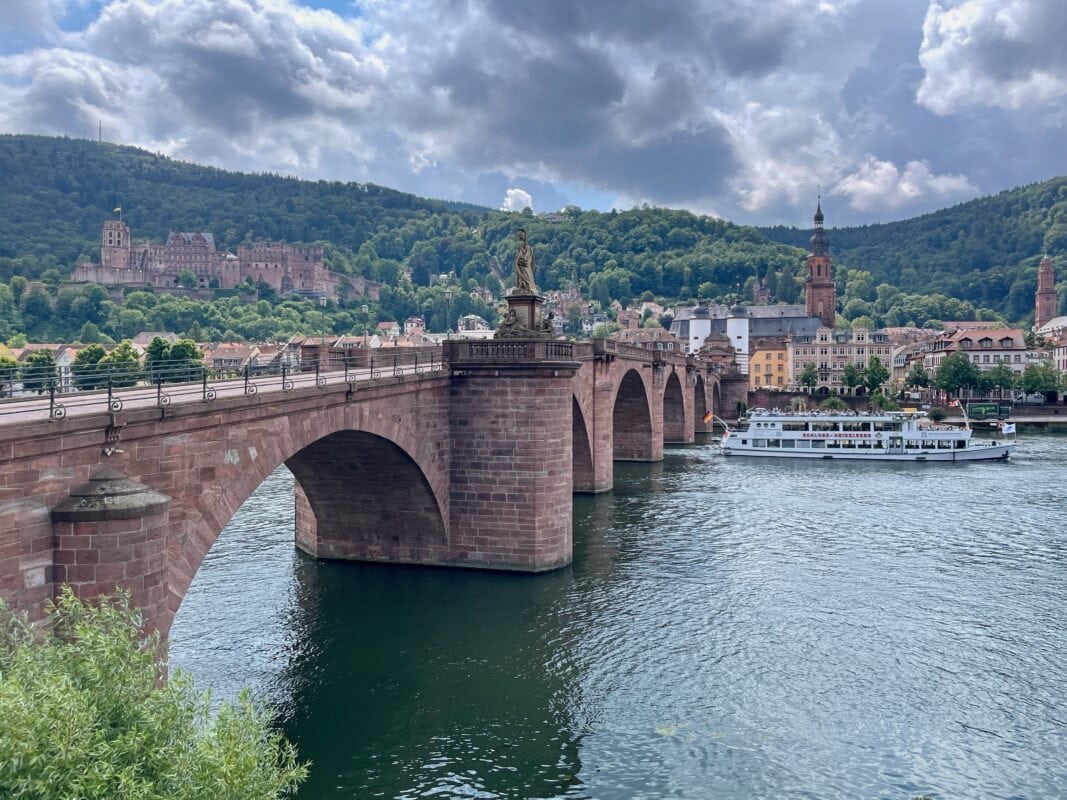
Nestled in the Neckar River, Heidelberg is a delightful destination to explore in the summer. It’s home to the Heidelberg Castle, fascinating castle ruins that date back to the Middle Ages. During mid-June to the beginning of August, one of the most anticipated events takes place – the Heidelberger Schlossfestspiele (Heidelberg Castle Festival). This festival features a series of open-air theater performances in the courtyard, ranging from plays, operas, and concerts.
Check out our guide for tips and more information on visiting Heidelberg Castle!
Summer is also the perfect time to enjoy a leisurely stroll along the Philosopher’s Walk (Philosophenweg), a scenic path offering breathtaking panoramic views of the city. We also recommend checking out Königstuhl (King’s Seat), a mountain situated on the edge of Old Town that you can reach by hiking or cable car for views of the city and the Neckar Valley. Summer is also the best time to take the Neckar River Cruise and relax and enjoy the sights from a romantic river boat.
Read our full guide on the top things to do and see in Heidelberg!
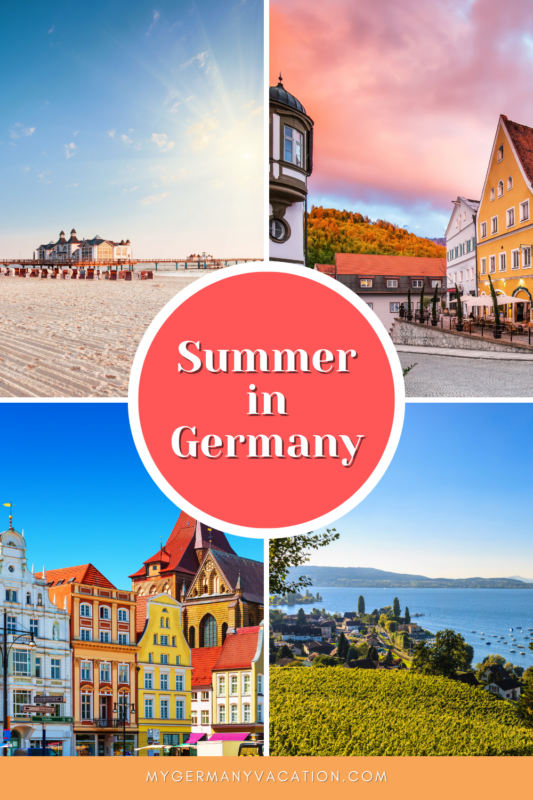
Grab our FREE Germany Trip Planning Checklist Now!
Cate has been traveling to Germany for 30+ years. She has lived in Germany, taught college German, and has a PhD in German Applied Linguistics. She loves helping travelers plan their dream trips to Germany!
Similar Posts
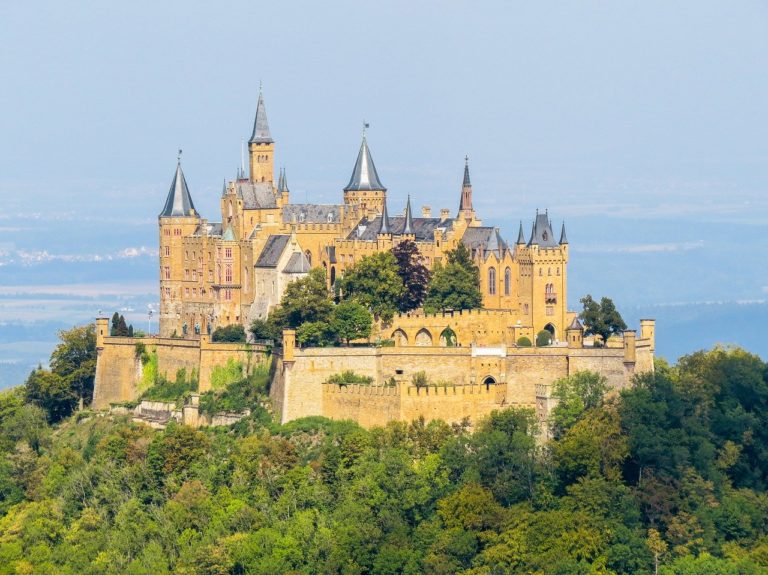
Best Day Trips & Weekend Trips from Stuttgart, Germany in 2024
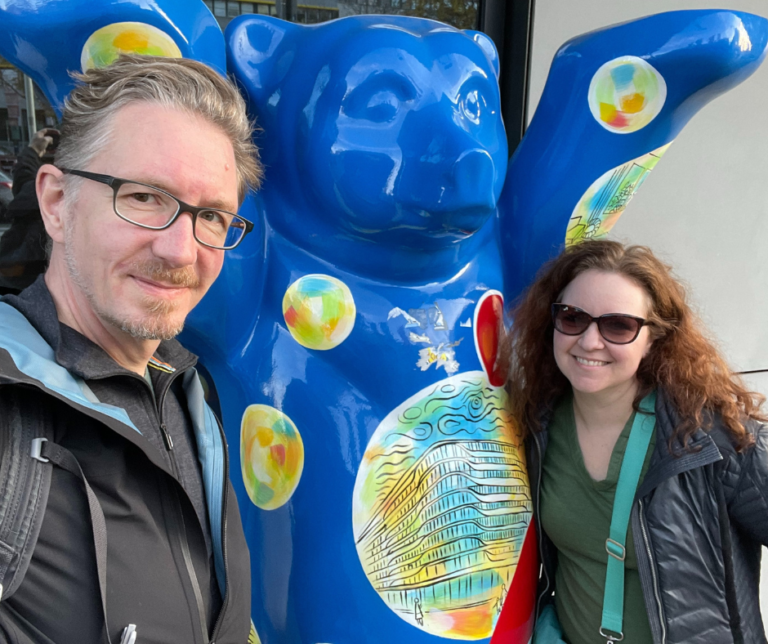
15+ Things We Take On Every Germany Trip

Ultimate Minimalist Packing List For Travel to Germany & Europe (2-Week Packing List)

28 Top Things to Do, See and Experience in Cologne, Germany in 2024
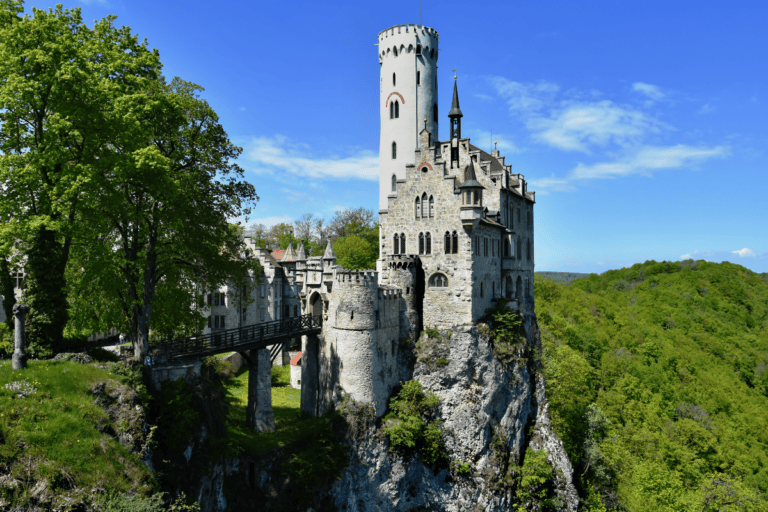
How to Tour the 23+ Best Castles in Germany in 2024
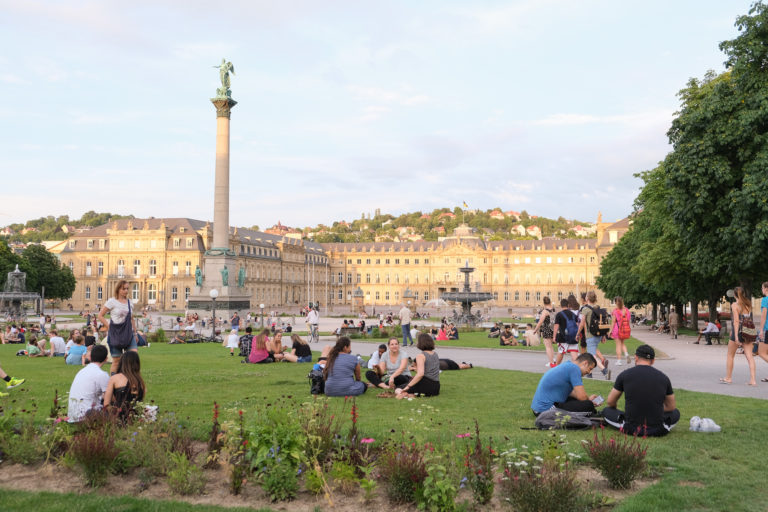
Best Things to Do in Stuttgart, Germany in 2024
Here’s how we can help you plan your perfect trip in 2024.
GERMANY TRAVEL PLANNER: Just getting started? Have questions about Germany’s confusing train tickets or how to find the best guided tours? Not sure which parts of Germany should be in your itinerary (and what to leave out)? Our Germany Travel Planner answers those questions and more via how-to videos, our interactive Germany Planning Map, City Cheatsheets, and MUCH more. Click here to unlock the best of Germany the easy way!
GERMANY TRAVEL CONSULT: Feeling overwhelmed? Itinerary just not coming together? Wonder if a few tweaks would take your trip to the next level? Book a Mini or Full consult with Cate! She’ll help you create or tweak your itinerary, recommend train tickets/passes, hotels, things to do, guided tours, show you how to buy train tickets, orient you to specific cities, help you plan out day trips, and answer your Germany travel questions.
ACCOMMODATIONS: We recommend using Booking.com since they have widest range of accommodations available from hostels, boutique hotels, luxury chains, aparthotels, at the best prices. Check out our accommodation guides for specific recommended hotels.
WHAT TO PACK: If you’re bringing your phone, be sure to bring this plug adapter , this power bank , and this wrist strap . They’ve been lifesavers for us! You can see our other packing essentials here and here .
TICKETS & TOURS: For guided tours, day trips, private tours, and skip-the-line tickets, Get Your Guide is our go-to!
TRAINS & BUSES: To research train schedules and buy tickets or a Germany Rail Pass, we recommend the official Deutsche Bahn (German Rail System) website (and download their DB Navigator app). For buses, look at FlixBus , which offers tickets for routes within Germany and to other European countries. FlixBus is often cheaper than trains but can take longer.
Leave a Reply Cancel reply
Your email address will not be published. Required fields are marked *
Save my name, email, and website in this browser for the next time I comment.

You are here
Seasons in germany.
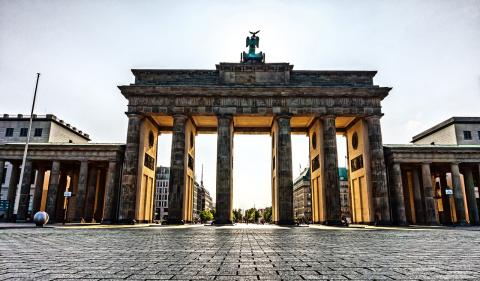
In German lands there is a collision of two climate areas. Maritime and continental climate makes significant difference between nature of northern and southern parts of country. Northern part is covered by arable fields. For the needs of agriculture almost all forests of this region were cut down.
Southern part is completely opposite. It covered with coniferous forests and bright alpine vegetation. This is the location of The Bavarian Forest, one of the most famous European national parks. Germany’s animal world is not very diverse and represented mostly by forest animals like moose, boars, hares, foxes, badgers, martens and wild cats.
Spring in Germany
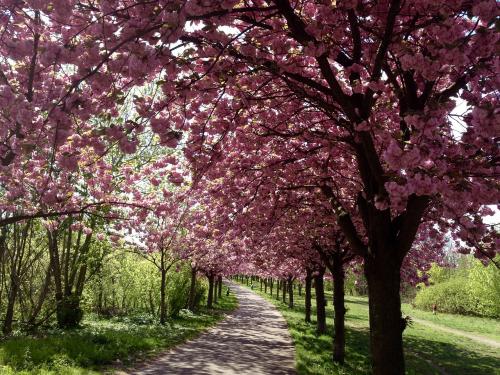
Because if low air humidity spring comes to southern Germany later than to other countries of West Europe. March is quite cold and shifty. One day it significantly warm and other is suddenly cold and even snowy. Real spring begins in April with time of blossoms and the best weather starts from May. Same time this is a beginning of tourist season.
Spring is time when all German population celebrates Easter with the rest of Christian world. It is time of major fairs including The International Festival in Wiesbaden which gathers quests from the whole world. Noteworthy that May 1 celebrations of Labor Day and Spring are held in Germany as in Russia.
Climate of the Spring Months
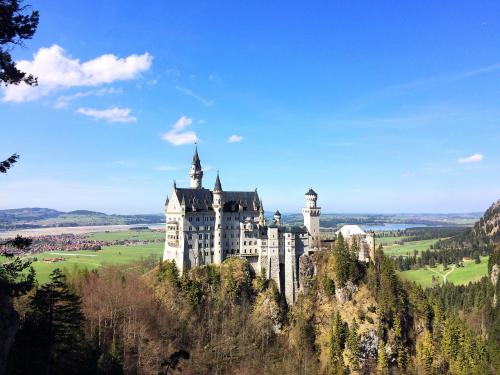
Spring Holidays
March 17: Leipzig Book Fair, the second biggest book fair of the world. March 27: Easter.
April 1st: April fool’s Day.
May 1st: Labor Day and “Maifeiertag”, celebrations and fairs dedicated to Spring. May 5: Father’s Day in Germany. May 8: Mother’s Day. May 10: Book Day in Germany. May 13: Festival of Gothic Music and Culture in Leipzig.
Summer in Germany
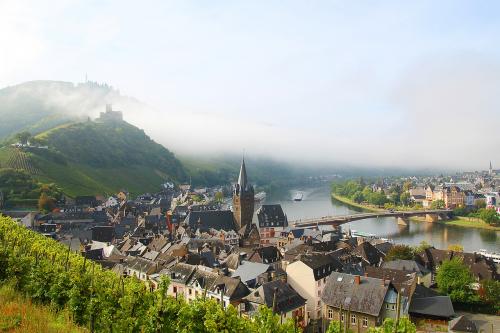
Summertime is the peak of tourist season. This is the period when nature is transformed and appears in all its glory. Air temperature of northern regions is slightly lower than in southern and reaches about 20 °C (68 °F). Absence of debilitating heat provides great opportunity for hiking and different excursions. By the middle of July temperature may occasionally reach mark of 30 °C (86 °F). But this occurs only in western part of Germany.
Also summer is the time of music festivals such as worldwide known Nuremberg Music Festival or Mozart Music Festival.
Climate of the Summer Months
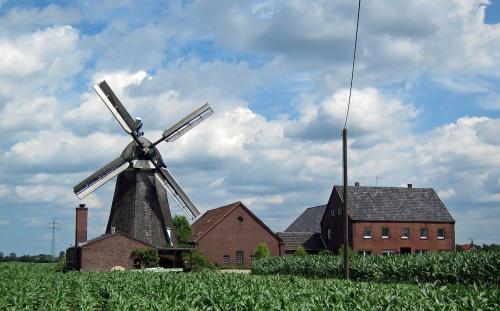
Summer Holidays
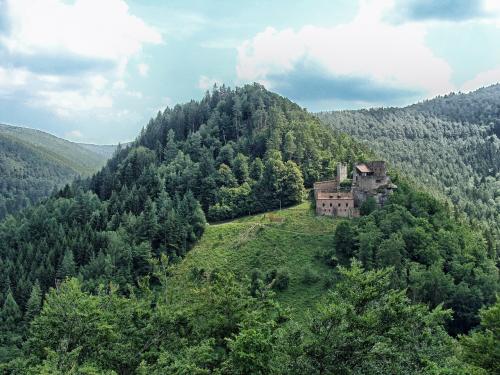
June 24: Birth of John the Baptist, Opera Festival in Munich.
July 16: Fireworks festival "Cologne Lights".
August 8: Peace Day in Augsburg. August 15: Ascension of Mary. August 27: Festival "Long Night of the Museums" in Berlin.
Autumn in Germany
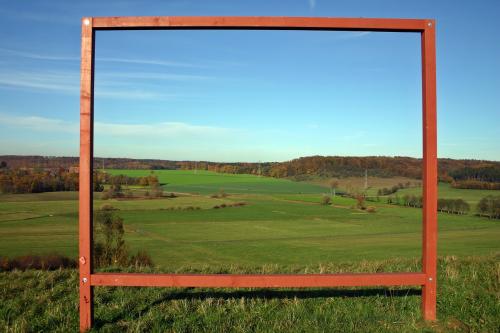
Season of withering begins only in October. During September all numerous parks and less numerous greenwoods save their verdure. Average day temperature drops to 17-18 °C (62-64 °F). Same time average night temperature drops to 10 °C (50 °F). Autumn is the rainiest season in Germany.
But despite all whims of nature every year in Munich held the famous festivals of country: the legendary Oktoberfest. It takes place between the ending of September and beginning of November and it is a major event of all autumn period. But national beer fest in not the only one important event in October. Other great celebration takes place in this month: Unity Day, the main state holiday of Germany.
Climate of the Autumn Months
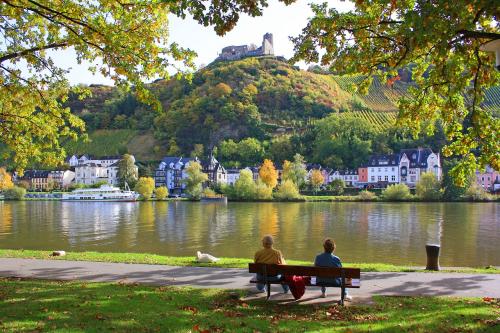
Autumn Holidays
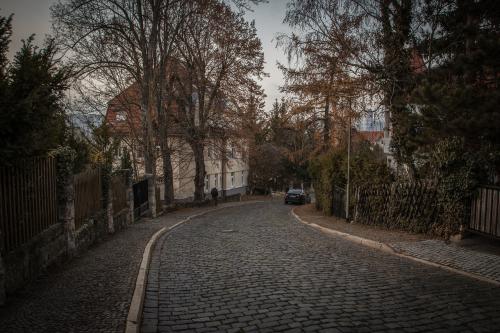
September 17: Oktoberfest, the beer festival.
October 2: “Erntedankfest”, the harvest festival in Germany. October 3: Day of German Unity. October 31: Halloween, International Savings Day, Reformation Day.
November 1: All Saints Day. November 11: St. Martin's Day. November 13: Day of national mourning in Germany. November 20: Sunday in honor of All Souls in Germany.
Winter in Germany
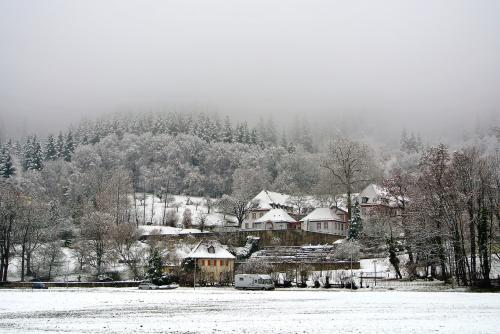
The bigger part of country has green and windy winter. Southern part has significantly lower average temperatures of January and February. Occasionally they even reach marks of -20 °C (-4 °F).
This time of severe frost is also time for festive carnivals. The Germans begin their festivities in the first Thursday of February. These festivities last for six days almost without any break. The whole country is having fun with all the heart. Even office workers are exempt from work on holidays. The center of all events transfers to Cologne that has been famous for its most tumultuous celebrations.
The Catholic Christmas is not overlooked. Preparations for its celebrations begins early in December.
Climate of the Winter Months
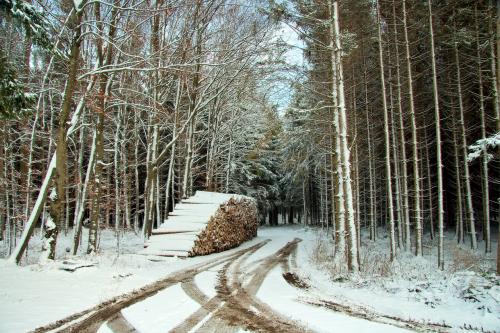
Winter Holidays
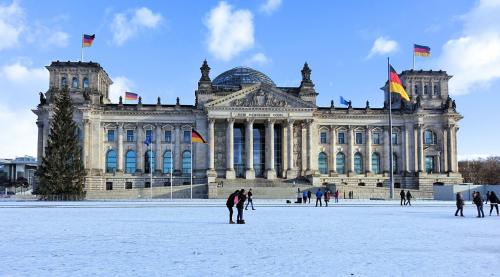
December 6: Catholic St. Nicholas Day. First of upcoming Christmas celebrations. December 24: Christmas Eve in Germany. December 25: Catholic Christmas. December 26: St. Stephen's Day. This is the first day of long Christmas venerations of saints. January 1st: The New Year celebration which takes place on the night between December 31 and January 1. January 27: Holocaust Remembrance Day. January 29: Samba Carnival in Bremen. February 4: Fastnacht Carnival in Munich and Cologne. February 11: Berlin International Film Festival "Berlinale".
Our project

Stay connected

Seasons of the Year
- About the Project
- Terms of Use
- Copyright & Permissions
- Attractions
A SUMMER IN GERMANY – OUR TOP PLACES TO VISIT
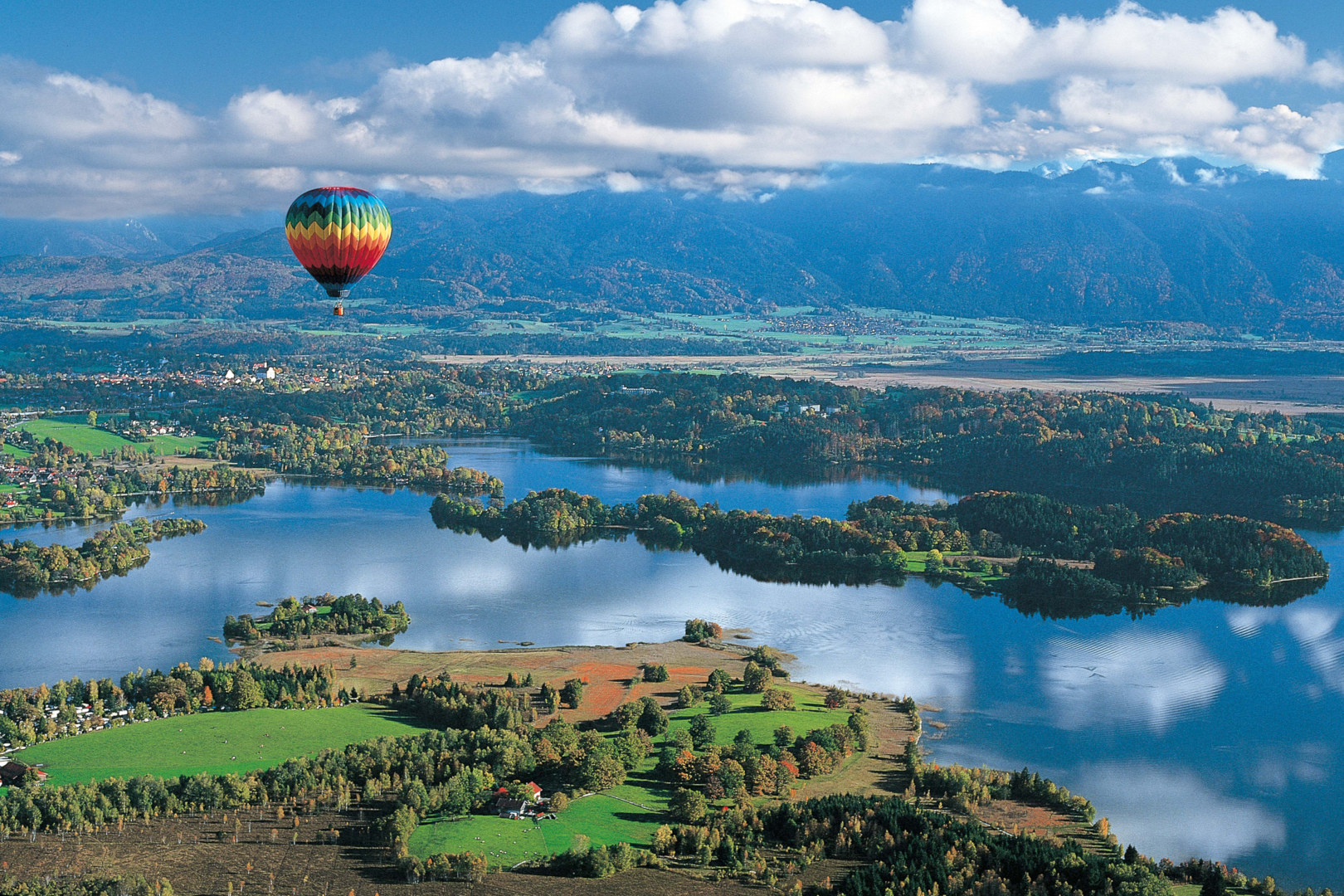
From beaches to mountains
Summer is the peak travel season in Germany – for a multitude of reasons. Warm temperatures, long, sunny days, colourful open-air festivals, inviting ‘biergartens’ and many outdoor activities invite visitors from near and far to discover this versatile country to the fullest.
Summer marks the height of Germany’s annual popularity with travellers for many reasons: so let’s explore why. Not many people know that Germany actually has a few awesome beaches in the north of the country. For those visitors that don’t want to go without relaxing beach days and some refreshing swims, we therefore suggest heading to the north of Germany, where several beach towns like Scharbeutz or Rostock await. Here, one can try some local fish dishes, enjoy the sea breeze and just simply relax. Germany even has some gorgeous islands on offer. One of the most famous ones is Sylt, where you can find almost 40 kilometres of sandy beaches along its west coast.

Hip city breaks
A city break is always a great idea – especially in Germany’s summertime. After all, most cities will sport some fabulous outdoor beer gardens to soak up the sun in while enjoying a tasty brew or two. And if it’s getting too hot, most cities will also have a multitude of swimming opportunities. For example, in Berlin you can head to the ‘Badeschiff’, which is a public pool in the middle of the river. And most other cities have at least one bathing lake in or around the city centre.
Hiking and more
For those who love to spend their summer holidays being active, Germany has an extensive range of opportunities on offer. From sailing to running or biking, the beautiful nature around the country offers many possibilities. Hiking fans especially love the mountain sceneries and the many great hiking paths through untouched nature and impressive landscapes.

Culinary offerings Germany is famous for sausages, great beers and schnitzel, to give just a few examples. Another culinary offering, however, that should be checked out in summertime, is German wine. A multitude of vineyards invite visitors to their gorgeous estates during the summer months where their exquisite drinks can be tried, while marvelling at the gorgeous sceneries. The Palatinate wine region in the south-west, for example, is blessed with a mild Mediterranean climate which makes it the perfect wine-growing region.
Need some inspiration on which places and events to visit this summer? Read the following special theme to learn more about our top picks for spending the summertime in Germany. www.discovergermany.com
TEXT: NANE STEINHOFF | TOP PHOTO © TOURIST INFO MURNAU, JOSEF BECK
Subscribe to Our Newsletter
Receive our monthly newsletter by email
Please leave this field empty.
I accept the Privacy Policy and Cookie Policy
Related articles

KULTURAMA Museum of Human Evolution – where human evolution comes to life
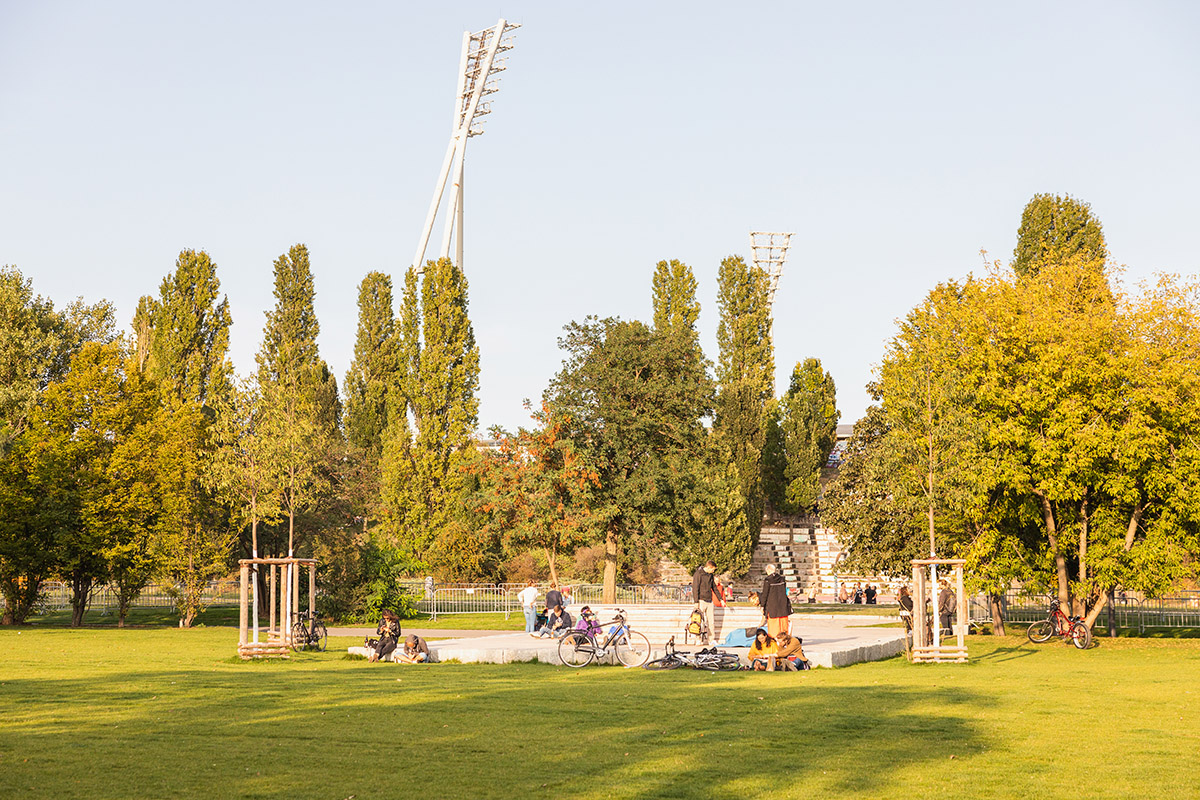
Cornelia Brelowski: Between History and Future
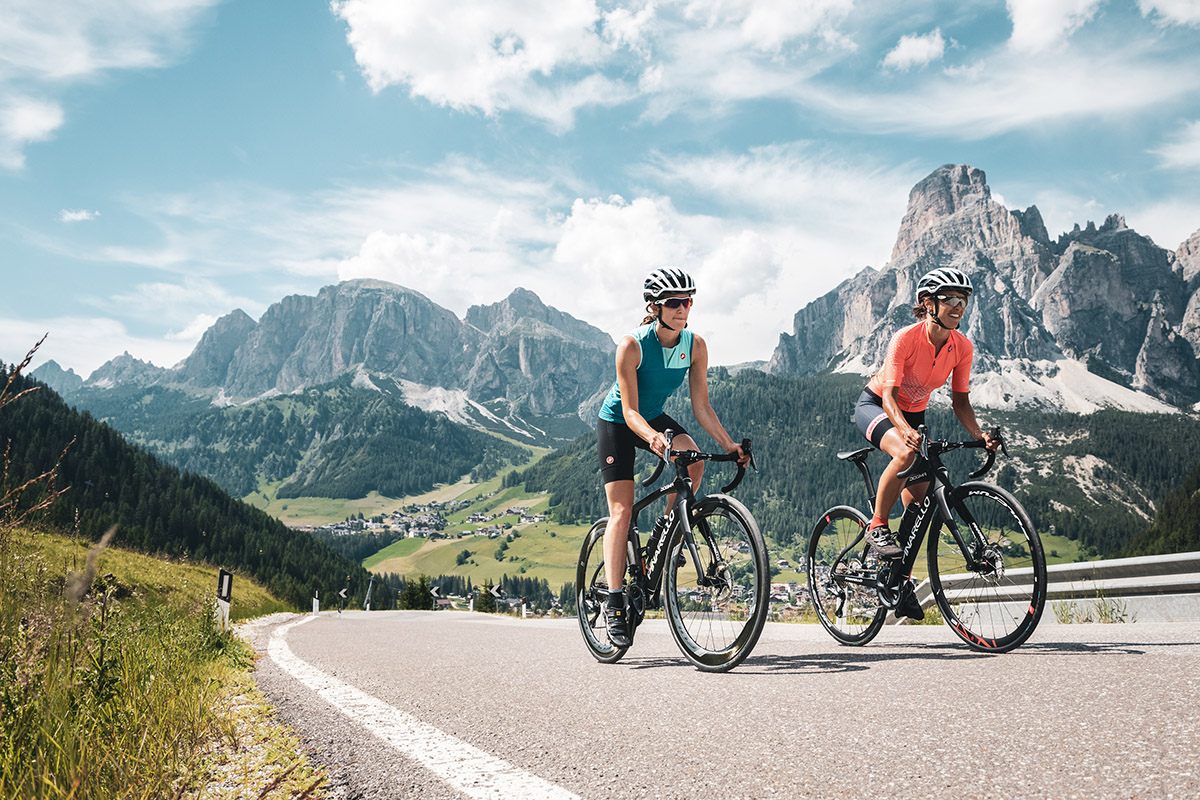
Alta Badia: Cycling Without Limits

Academy of Fine Arts Kolbermoor: A hotspot for art in Kolbermoor
Read germany, switzerland and austria online..
If you have missed the printed version of Germany, Switzerland and Austria, you can read the magazine online by visiting our Magazine section.

Join Our Newsletter
Are you a fan of Germany, Switzerland and Austria? So are we! Sign up to our newsletter now to stay up to date on the most exciting news, events and destinations.
Privacy Overview
Privacy settings
Here you will find an overview of the types of cookies used on the website. You can set your consent for each category individually. Further information can be found in the privacy policy .
- Essential Cookies For the use of the website with all functions (e.g. user settings, watch lists, etc.)
- Statistics Statistics Cookies collect information anonymously. This information helps us to understand how our visitors use our website.
- Marketing In order to provide you with the best possible offer in cooperation with our partners, we use marketing tools. For example, in order to use our chatbot, you must activate this setting.
- External contents Required for viewing external media and third-party content. The provider may set cookies for its part. The respective data protection regulations of the provider apply.
Inspiring Germany
- Cities & Culture
- Nature & Outdoor Activities
- Royal Palaces & Castles
- Experience & Enjoy
- Current highlights
- Sustainable travel
- Barrier-free travel
- Easy language
- Federal states
20 hikes for every season
Each season has its own charm and so hiking is an experience in every season. But which hiking trails are particularly suitable for the seasons spring, summer, autumn and winter? We introduce you to a selection.
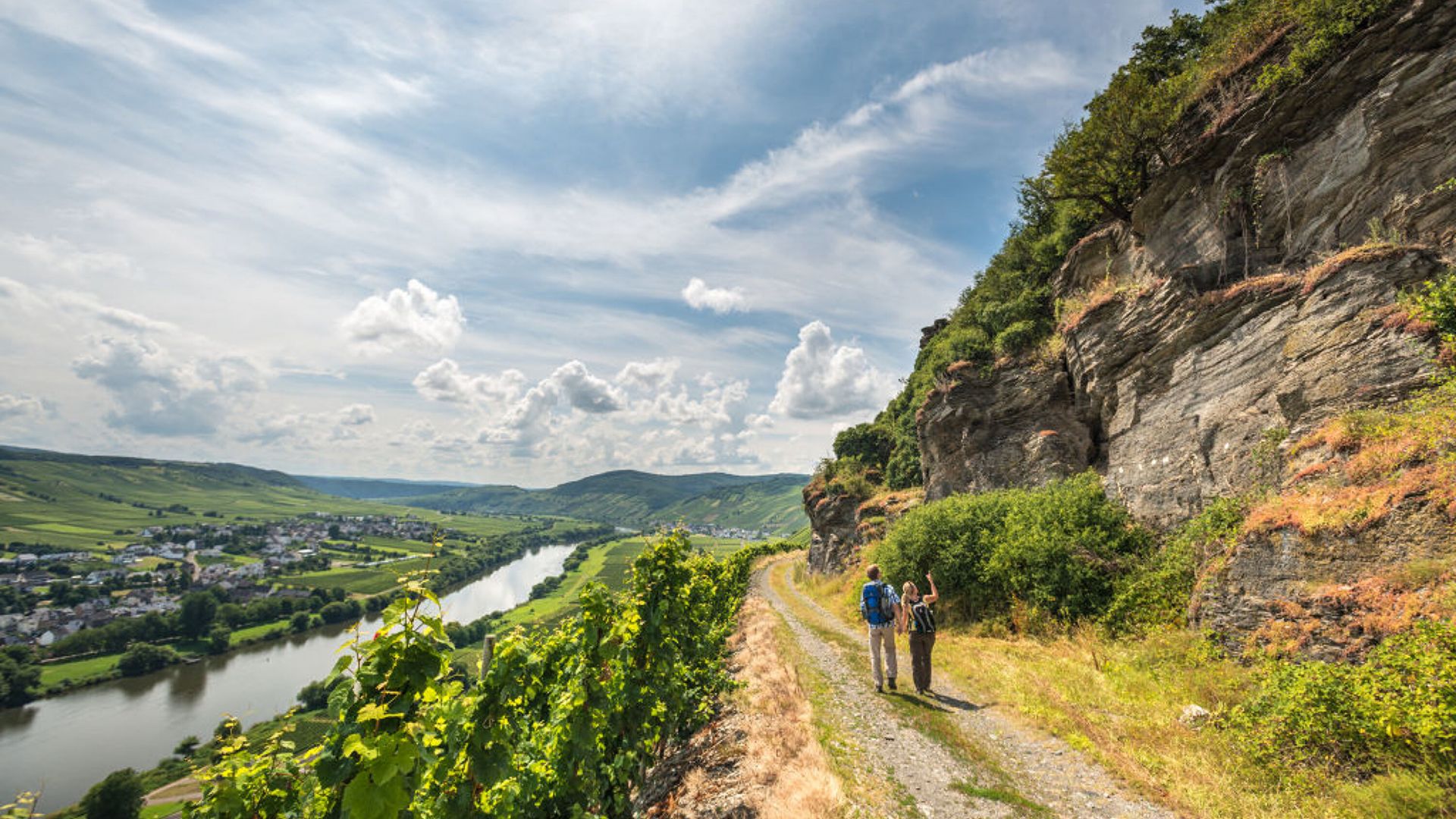
You should definitely visit this hiking trail in spring, because...
- Karst Trail ...the karst region in the southern Harz presents itself from a particularly beautiful side in spring.
- Zweitälersteig Trail ...among other things, the wide view from the Kandel plateau over the spring-like landscape of the southern Black Forest is worthwhile.
- Albschäferweg Trail ...with its numerous sheep farms and juniper heaths, clear karst springs and calcareous grassland meadows, where large flocks graze again and again, it brings the old tradition of itinerant shepherding to life.
- Moselsteig Trail …it leads through one of the most beautiful cultural landscapes in Europe, which appears in a very special way in spring.
- Schlaubetal Trail …hiking in one of the most beautiful stream valleys in Brandenburg is very impressive, especially at this time of year.
- Löwenpfad Orchideenpfad …it lives up to its name and presents hikers with a colorful sea of blooming orchids.
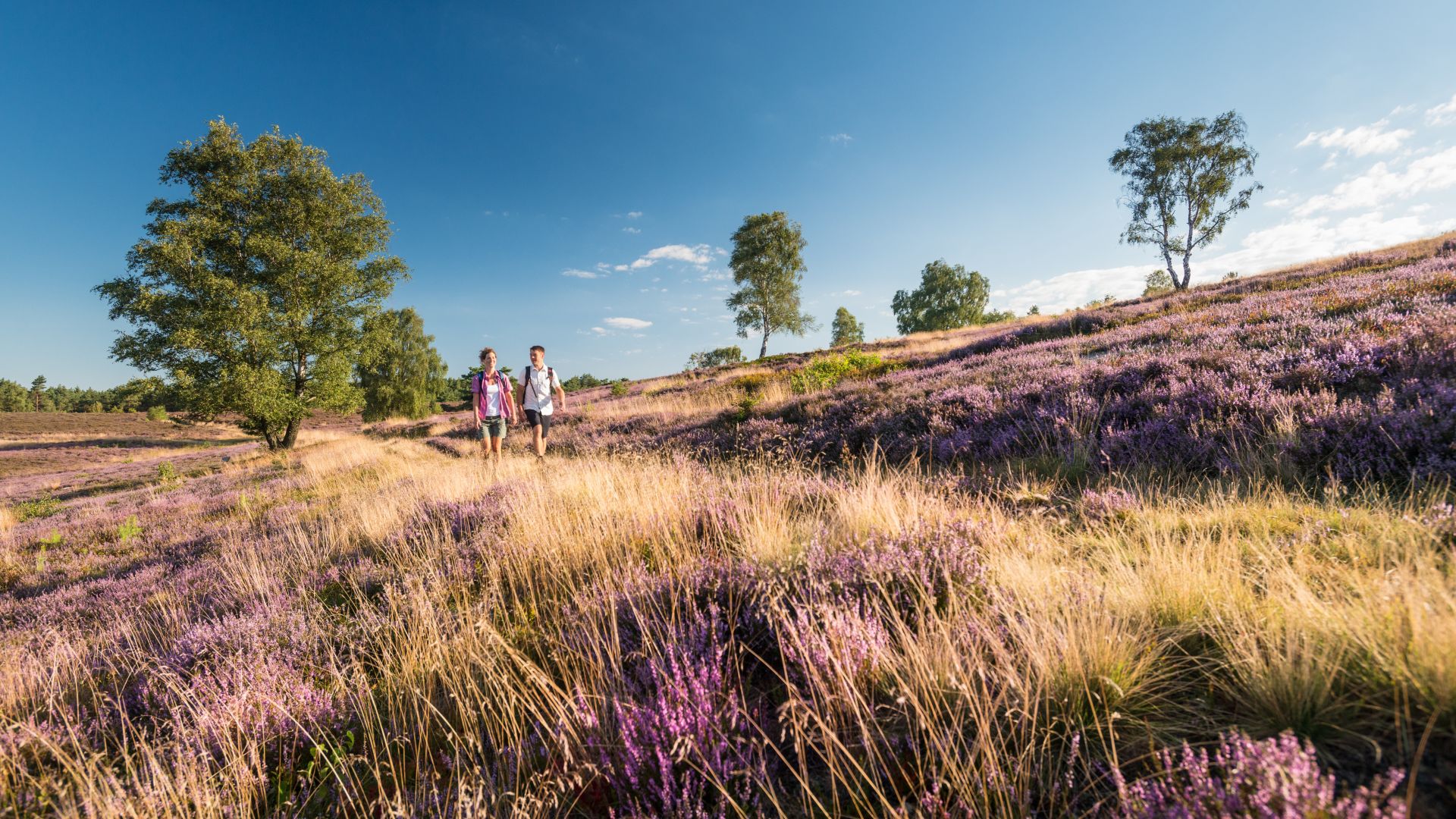
You should definitely enjoy this hiking trail in summer because...
- Palatinate Forest Trail …it leads through Germany's largest forest area and thus promises shady-cool hiking pleasure.
- Heidschnuckenweg Trail …the Lüneburg Heath is beautiful in August, when the heather blossoms and turns the landscape purple.
- Harz Witches' Trail …it leads through the extensive forest landscape of the Harz, where shady passages alternate again and again with fantastic views.
- Winterberger Hochtour Trail …it promises a sportive and challenging hiking tour between idyllic valleys, dense forests, blooming meadows and heaths.
- Oderlandweg Trail …it leads through gently shady deciduous forests and thus promises the chance to cool down especially on hot days.
- Schluchtensteig Trail in the Black Forest … on the way not only cool gorges, but also waterfalls are waiting to provide you with a refreshment.
- Edersee Forest Walk …the sparkling wet of the Edersee and the cool shade of the extensive beech forests of the Kellerwald-Edersee National Park are a wonderful combination for hot days.
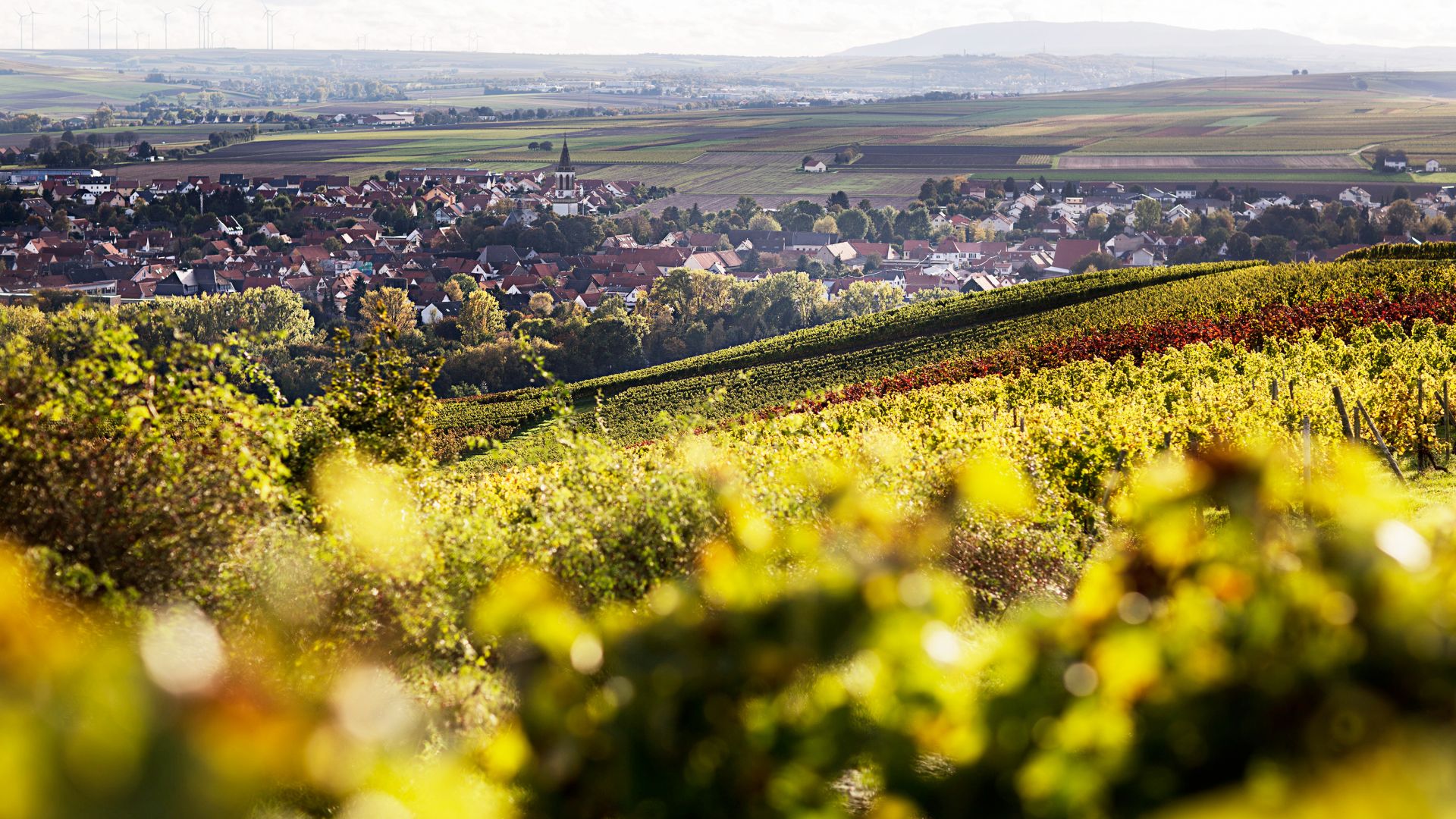
You should definitely experience this trail in autumn, because…
- Hiwweltour Aulheim Valley …it runs through the heart of the wine region of Rheinhessen and is therefore especially worthwhile at this time of year, when you can marvel at the colorful leaves. It is not a coincidence that it was awarded the second most beautiful hiking trail among the day tours by Wandermagazin in 2022.
- Werra Castle Trail in Hesse …the impressive castles along the way and the wide view over the autumn landscape of the Werra Valley promise hiking pleasure of a very special kind.
- Kyffhäuser Trail …the almost Mediterranean-looking karst landscape is especially beautiful at this time of year.
- Spessart Hills Trail 1 and 2 …the Spessart Hills Trails not only lead through autumnal colorful deciduous forests, but are also varied and exciting beyond that.

You should definitely follow this path in winter, because...
- Winter hiking trail Ochsenkopfrunde …it was awarded as the first quality trail Wanderbares Deutschland in the category " Winter Happiness" and thus guarantees winter hiking pleasure.
- Bodden Panorama Path Rügen …the quiet, rather unknown side, especially away from the bathing season of Rügen, is a very special experience.
- Nordpfade – 24 Hiking Trails in the district of Rotenburg (Wümme) … the Nordpfade (northern paths) also guarantee pure hiking pleasure at this time of year with their wooded ridges of geest, enchanted stream valleys, extensive river lowlands and moors, idyllic farming villages and tranquil small towns.
Germany's best beaches
Apr 7, 2021 • 5 min read
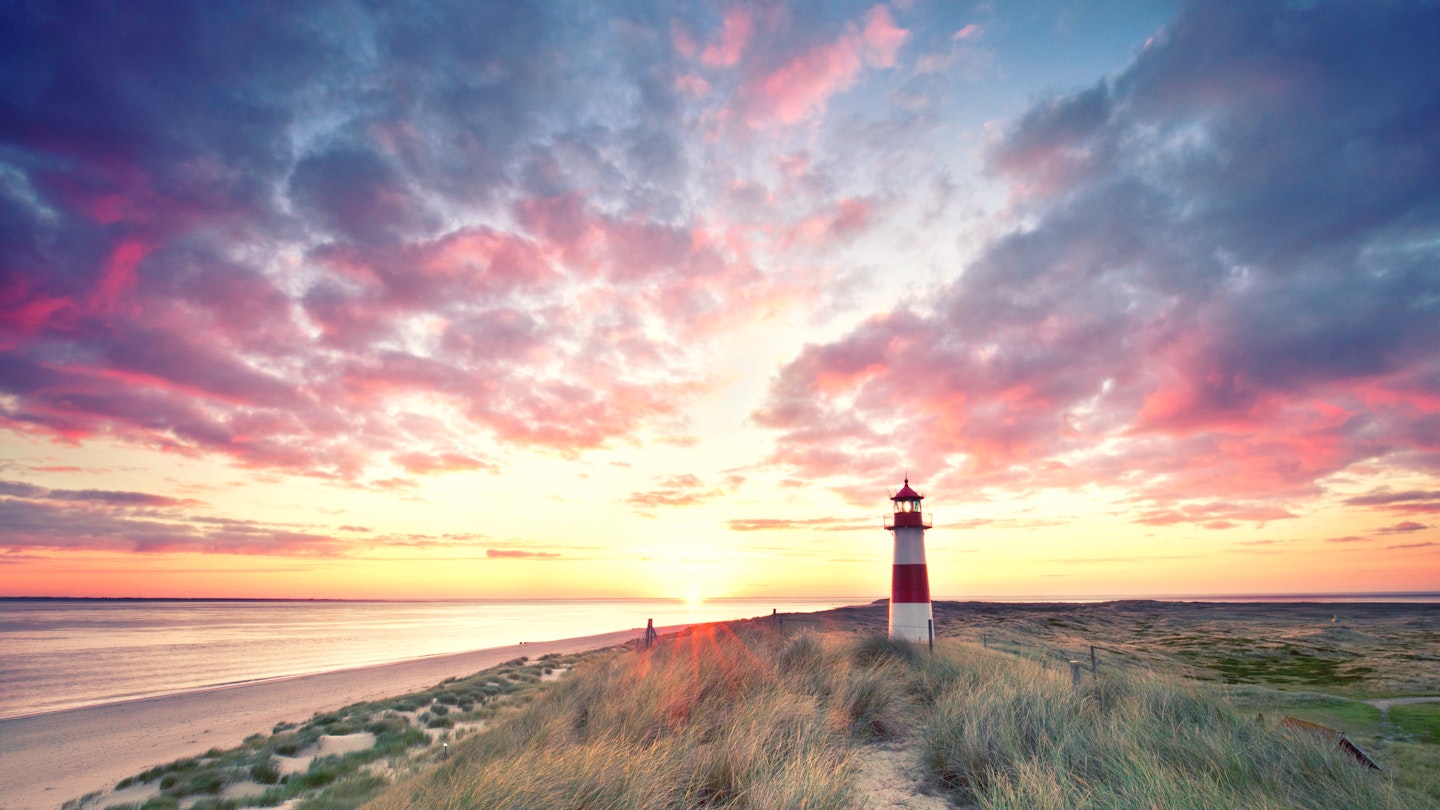
A lighthouse on the sand dunes of Sylt, North Frisian Islands © Jenny Sturm / Shutterstock
Germany may not be one of the first destinations you think of when considering a beach holiday, but it has over 1400 miles (2250km) of coastline on both the Baltic and North Seas, wonderful lakes with sandy coves, and artificial city beaches.
From the seaside resorts with hot saunas to warm you up before a naked dash into the cold sea, to the secluded lakeside sandy spots, perfect for kayaking and SUP, here are Germany's best beaches.
Editor's note: during COVID-19 there may be additional travel restrictions. Check the latest guidance in Germany before planning a trip, and always follow local government health advice. Some attractions may be closed.
Strandbad Wannsee
This lakeside public beach in Wannsee has delighted aquaphiles for more than a century. Although 1km long, the broad sandy strip can get very busy on hot days, especially on weekends. Besides swimming, you can rent boats, play volleyball, basketball or table tennis or grab a snack or drink. Note that the northern end of the beach is reserved for nude bathing.

Kühlungsborn
Kühlungsborn, the biggest Baltic Sea resort, with some 7500 inhabitants, has some lovely art deco buildings backing the long beach and adjoining a dense 130-hectare forest. The east and west ends of the sand are linked by the Ostseeallee promenade, lined with hotels and restaurants.
Heiligendamm
The "white town on the sea", also on the Baltic Coast, is Germany’s oldest seaside resort, founded in 1793. It was fashionable throughout the 19th century as a playground of the nobility. You can’t miss the five gleaming white, heritage-listed buildings of the Grand Hotel Heiligendamm perched nearly on the beach. Sunshine is possible; warm weather is rare.
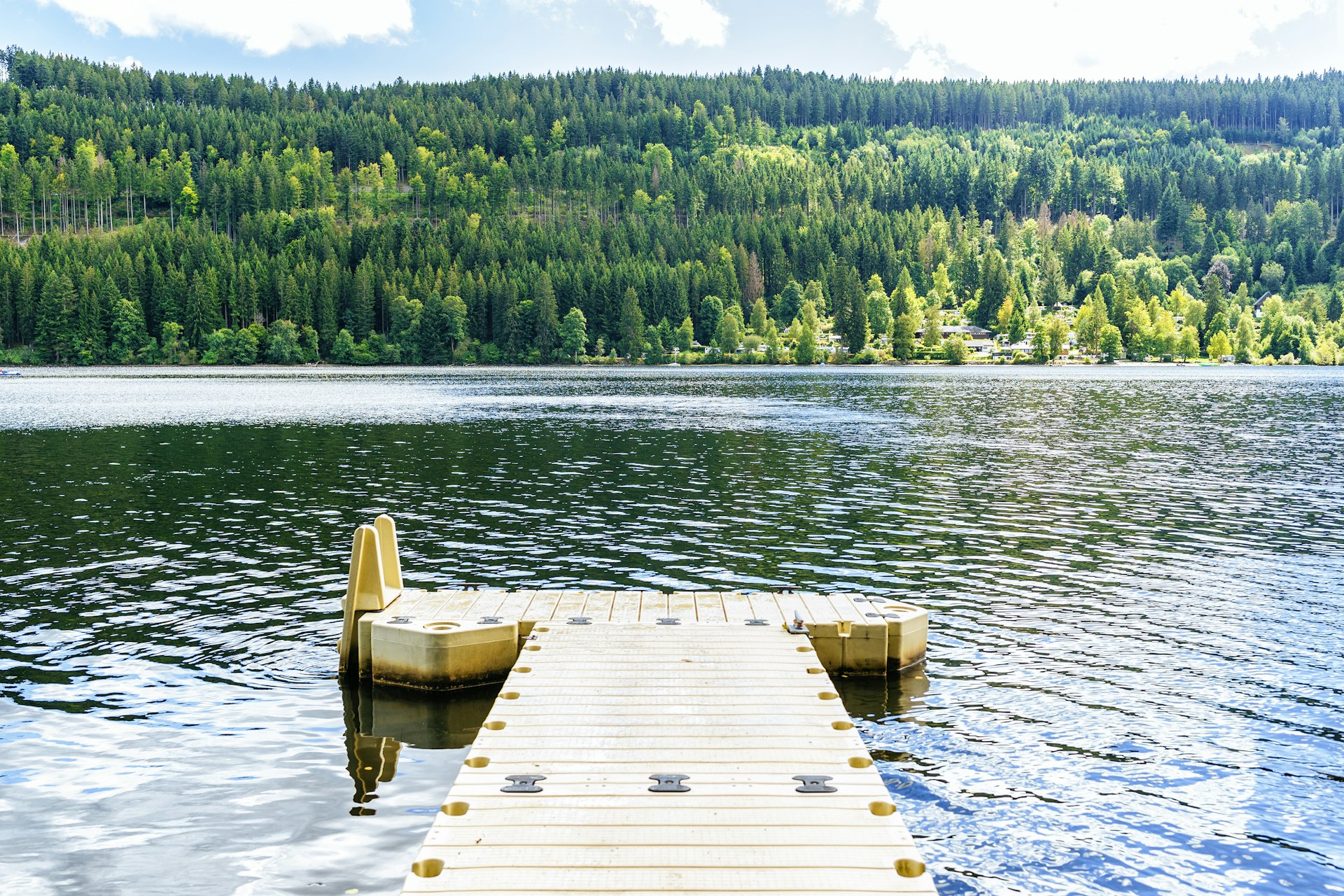
Titisee-Neustadt
Titisee, in southwest Germany, is a cheerful summertime playground with a name that makes English-speaking travelers giggle. The iridescent blue-green glacial lake, rimmed by forest, has everyone diving for their cameras or into the ice-cool water. Though a tad on the touristy side in the peak months, a quick stroll along these shores brings you to quiet bays and woodland trails that are blissfully crowd-free.
The Strandbad Titisee (Strandbadstrasse 1; Jun-Sep) lake-front lido has a pool and children’s pool, a slide, floating raft and a volleyball area, as well as lawns for sunbathing.
The Chiemsee is Bavaria ’s biggest lake (if you don’t count Bodensee, which is only partially in the state) and its natural beauty and water sports make the area popular with de-stressing city dwellers – many affluent Munich residents own weekend retreats by its shimmering waters. However, the vast majority of foreign visitors arrive at the shores of the Bavarian Sea – as Chiemsee is often called – in search of King Ludwig II’s Schloss Herrenchiemsee.
The towns of Prien am Chiemsee and, about 5km south, Bernau am Chiemsee (both on the Munich–Salzburg rail line) are good bases for exploring the lake. Of the two towns, Prien is by far the larger and livelier. The swimming beaches at Chieming and Gstadt (both free) are the easiest to reach, on the lake’s eastern and northern shores respectively. A variety of boats are available for hire at many beaches.
Maschsee, Hanover
This artificial lake, built by the unemployed in one of the earliest Nazi-led public-works projects, is now a favorite spot for boating and swimming. It’s certainly the most central, at just 30 minutes’ walk from the Hauptbahnhof and directly alongside the HDI Arena , Hanover ’s football stadium. Ferries – some solar-powered – ply the lake from Easter to October in good weather, and there are sailing, pedal and rowing boats for hire.
Photogenically poised above its namesake lake – the Black Forest’s largest – and rimmed by forest, Schluchsee tempts you outdoors with pursuits such as swimming, windsurfing, hiking, cycling and, ahem, skinny-dipping from the secluded bays on the western shore. The otherwise sleepy resort jolts to life with sunseekers in summer and cross-country skiers in winter.
Aqua Fun Strandbad is popular with families, this lake-front lido has a heated pool, water slide and rapid river, a sandy beach and a volleyball court.
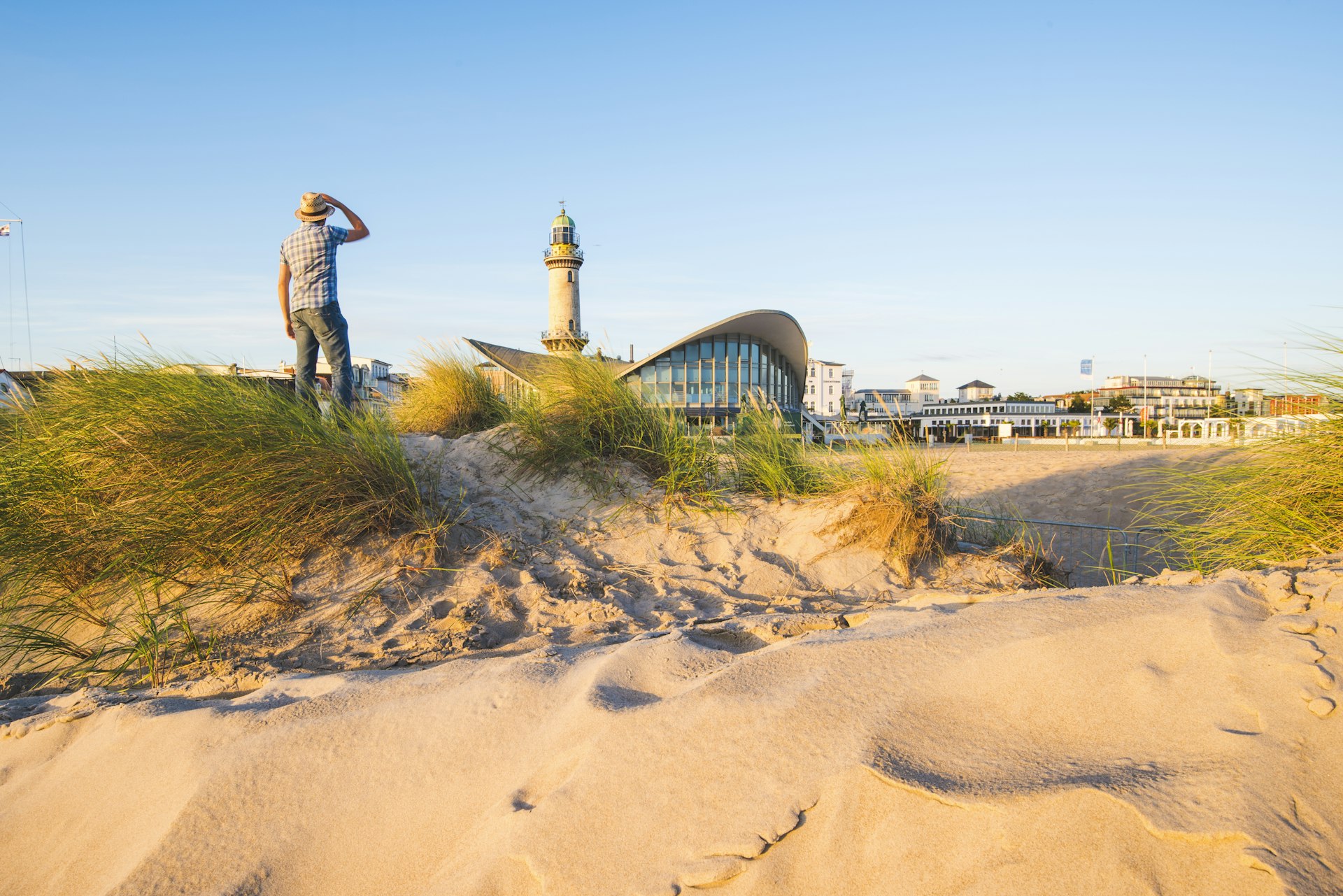
Warnemünde, near the port city of Rostock , is all about promenading, eating fish, sipping cocktails, and lazing in a Strandkorb (sheltered straw "beach basket" seat) on its long, wide and startlingly white beach. For a fabulous view from above, climb the spiralling 135-step wrought-iron and granite staircase of the 1898-built lighthouse.
East Frisian Islands
Lined up in an archipelago off the northern coast of Lower Saxony like diamonds in a tiara, the seven East Frisian Islands, with their long sandy beaches, open spaces and sea air, are both a nature-lovers’ paradise and a perfect retreat for those escaping the stresses of the world.
Trying to remember the islands' sequence, Germans – with a wink of the eye – recite the following mnemonic device: "Welcher Seemann liegt bei Nanni im Bett?" (which translates rather saucily as "Which seaman is lying in bed with Nanni?"). The islands are (from east to west): Wangerooge, Spiekeroog, Langeoog, Baltrum, Norderney, Juist and Borkum.
Langeoog is your best bet if you're looking for a quiet, day-return beach trip. On a sunny day, the most popular thing to do there is to stroll along the 14km-long beach. The main tourist season here runs from mid-May to September.
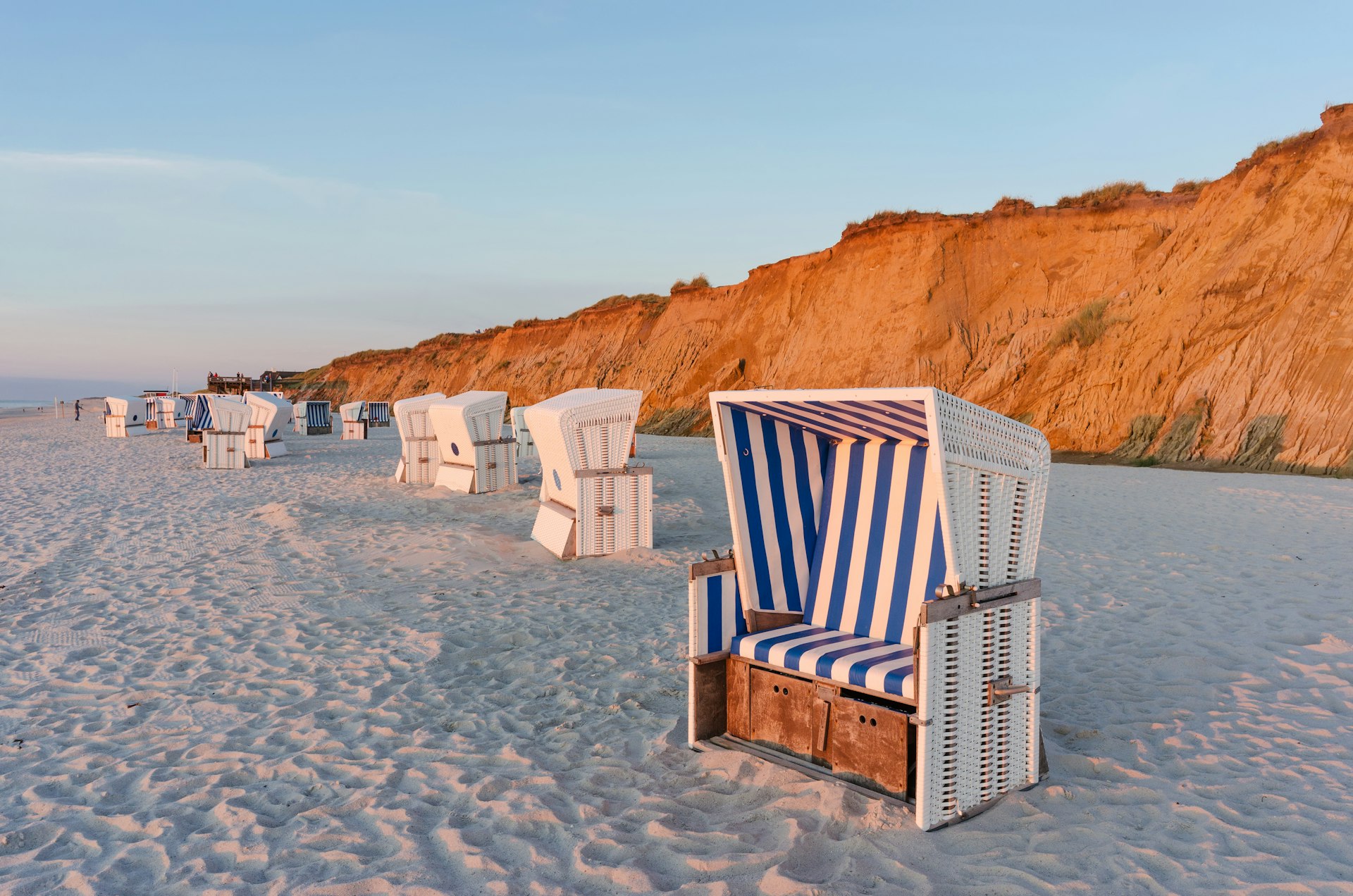
Sylt, North Frisian Islands
Glamorous Sylt (38.5km long and only 700m wide at its narrowest point) is the star of Germany's North Frisian Islands. This anchor-shaped island is attached to the mainland by a narrow causeway. On its west coast, the North Sea’s fierce surf and strong winds gnaw at Sylt's shoreline, even as the eastern Wadden Sea shore is tranquil.
Elsewhere, Sylt’s candy-striped lighthouses rise above wide expanses of shifting dunes, fields of gleaming yellow-gold rape flower and tracts of heath. Along the beaches are saunas, where the idea is to heat up and then run naked into the North Sea.
Sylt's windsurfing is known as the most radical on the World Cup windsurfing tour, which finishes here each September when winds and waves are wild. Beginners shouldn’t be deterred. There are water sports schools in every town where you can learn to master kitesurfing, regular surfing, catamaran sailing and much more, as well as rent gear.
You might also like:
Germany's best cycling routes Germany's most delicious dishes Germany's 10 most spectacular road trips
Explore related stories

Wildlife & Nature
Jul 8, 2019 • 4 min read
Ever dreamed of hopping between sun-kissed Aegean islands or making tracks of your own along the Silk Road? If a great voyage beckons on your bucket list…
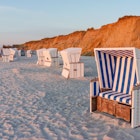
Apr 13, 2017 • 5 min read
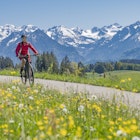
May 10, 2024 • 9 min read
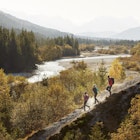
May 8, 2024 • 5 min read
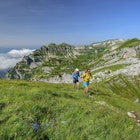
Mar 14, 2024 • 16 min read
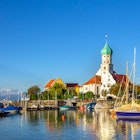
Jan 19, 2024 • 11 min read

Jan 5, 2024 • 20 min read
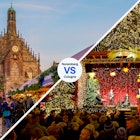
Nov 17, 2023 • 6 min read
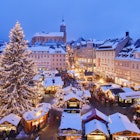
Nov 1, 2023 • 15 min read
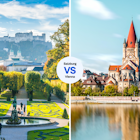
Oct 9, 2023 • 7 min read
- Australia edition
- Europe edition
- International edition

Readers’ favourite trips in Germany: ‘We wandered every cobbled street and climbed every gothic tower’
From the Baltic to Bavaria, via Berlin, our tipsters enjoy epic scenery and architecture, culture and steins of fabulous German beer
Literary Lübeck
Lübeck – Queen of the Hanseatic League – has a fading charm and vulnerability absent from the likes of Berlin, Munich and Hamburg … and most of Germany. I loved my trip there, wandering the cobbled streets, climbing every brick gothic church tower – generally alone! Thomas Mann wrote the unbearably sad novel Buddenbrooks there, then fled to the US from nazism in 1939. The Tin Drum author Günter Grass lived and worked in Lübeck in later life. Visit their former houses, now museums, the Grass-Haus and the Buddenbrook Haus . A singular German city, full of history and significance. Martin Charlesworth
Gothic marvel of Marburg, Hesse

Marburg, the small, ancient university town about an hour by train north of Frankfurt, is a fairytale destination, not least because it was once home to the Brothers Grimm . Every cobbled lane leads uphill to the castle, which looms above Marburg’s timber-framed Oberstadt. The castle was host to Martin Luther in 1529, and the Elisabethkirche, one of Germany’s earliest gothic churches, was an important medieval pilgrimage site. One of the main attractions is at the town hall, where, at midday, locals and visitors congregate to witness a brass cockerel (the Gockelhahn ) flap its mechanical wings to mark the hour. Anna
Brilliant viewing tower, Stuttgart

For a viewing tower that outdoes Berlin, take one of the little yellow trams, which then become a funicular, up Stuttgart’s spiralling streets. The views from the tower towards the Black Forest are stunning, and the external viewing platform will have you wondering whether it is gently swaying, or if it’s just your knees wobbling. Stuttgart is a leafy city with great art at the Kunstmuseum and archaeological finds at Landesmuseum Württemberg , and the Swabian cuisine and wines in the local Weinstuben are lighter and tastier than in many other major cities. Tim Proctor
Readers' tips: send a tip for a chance to win a £200 voucher for a Coolstays break
Guardian Travel readers' tips
Every week we ask our readers for recommendations from their travels. A selection of tips will be featured online and may appear in print. To enter the latest competition visit the readers' tips homepage
Monastic day trip from Munich

About 25 miles south-west of Munich is Andechs Monastery – Bavaria at its most idyllic and authentic. Sitting atop Ammersee (Lake Ammer), this Benedicitine monastery and pilgrimage church is popular for its brewery, restaurant and beer garden. It makes the perfect day out: take the S-Bahn from Munich to Herrsching, then hike 40 minutes gently uphill through lovely forest. On arrival, reward yourself with steins of great beer and Bavarian fare. Call into the beautiful St Martin’s church on your way back down to Herrsching, where you can have an ice-cream by the shores of the lake (or take a dip) and watch the boats before returning to Munich. Sonutschka
Culture and art in Nuremberg

If you can, spend time in the beautiful city of Nuremberg, with its amazing museums: the Germanische Nationalmuseum is the equivalent of the British Museum and is the largest German cultural history collection. The Neues Museum has an impressive collection of paintings by renowned visual artist Gerhard Richter and the Zukunftsmuseum is a great science museum. Stay at the Karl August hotel (doubles from €159 room only) with its stunning modern design, spectacular spa area, friendly staff and delicious breakfast (€28, served – instead of buffet – to minimise food waste). Till
A bike ride by the Baltic via Rostock

I had a brilliant time in Germany last summer cycling the Baltic Sea Cycle Route . I put my own two-wheeler on the train at Birmingham and got off in Wismar, northern Germany, then followed the well-signposted route around the charming seaside village of Kühlungsborn. I stopped for a bit of beach time at Warnemünde and had some sardine sandwiches and delicious soft Baltic Berry ice-cream from simple seaside cafes. Rostock is a lovely Hanseatic city with some stern old stone buildings. From here I put my bike on a ferry to car-free and calm Hiddensee island for a couple of quiet nights. Going back to the mainland, Sellin welcomed me with grand elegant villas and an art deco-style 1920s pier and a great footpath under the striking chalk cliffs of the Jasmund national park. I finished my trip by sitting on the white chalk “King’s Chair” (Königsstuhl) cliff, gazing out to sea – feeling like a king. Bill
after newsletter promotion
Touring Reformation country south of Berlin

In 1517, Martin Luther nailed his 95 Theses to the door of the Schlosskirche in Wittenberg , forever changing the western world by kicking off the Reformation. Exploring this corner of eastern Germany will reveal beautiful towns and vibrant cities rarely visited by western tourists. Wittenberg, 60 miles south-west of Berlin, itself is a medieval marvel on the River Elbe. Off the beaten track is Eisleben, a half-timbered town where you can visit Luther’s birthplace. The Wartburg is an imposing castle towering over Eisenach. Finish your trip in Halle , a vibrant university city near Leipzig. Luther’s death mask can be seen in the Market Church, where he also gave some sermons. Here, another great German, composer George Frederick Handel, was baptised and played the church’s organ when studying. Wilhelm Friedemann Bach, eldest son of Johann Sebastian, was organist here from 1746 to 1764. Nick
Punk ethos and Turkish delights, Kreuzberg, Berlin

Berlin’s large Turkish community has left an indelible mark on the culinary and artistic culture of the city as a whole, and it is in the neighbourhood of Kreuzberg where this unique fusion is best experienced. Start with a meal at Mardin restaurant , which serves the best kebabs I’ve had outside Turkey, along with perfectly frothy ayran – a salty yoghurt-based drink. Afterwards, find a concert at one of many characterful venues. SO36 , named for the area’s cold war era postcode, began life as a punk venue, but has now also become a centre for Turkish and queer culture – I was fortunate enough to see the psychedelic pop singer Melike Şahin here. The venue has retained its punk ethos and remained firmly rooted in the local community while also playing host to Turkish and other international stars in a wonderfully intimate, hole-in-the-wall setting, which wears its history of artistic and political radicalism with great pride, epitomising the multicultural Berlin with which I fell in love. Bruno
Cologne beyond the cathedral

I really enjoyed Cologne while visiting my daughter. It’s such a relaxed city, with a large student population. Away from the incredible gothic cathedral – Germany’s most popular attraction – there’s history to be discovered in all sorts of places that are best explored by bike on cycle lanes and routes through numerous parks. The city museum , Kölnisches Stadtmuseum, which recently moved to Minoritenstraße, is a good start. Some places are beautiful, such as the botanical garden with its French baroque, English landscape and Italian renaissance spaces. Others are less so, such as the brutalist Kirche Christi Auferstehung (Church of the Resurrection) until you step inside. It’s very thought-provoking, typical of a city shaping its future from a difficult past. And there are the art museums, concert hall, the Rhine and two parkruns. Mark Anstee
Winning tip: oompah bands and lager on Königssee, Bavaria

Last summer my partner and I camped and railed around Germany, utilising the €49 Deutschland-Ticket offering unlimited public transport, countrywide, for a month. A highlight was exploring Königssee in the Berchtesgadener national park, Bavaria. This small resort offers fantastic hiking and biking routes of varying difficulty levels. In summer, whether you have climbed on foot or taken the Jennerbahn cable car , beer garden season is in full swing so you can toast atop the mountain with an oompah band playing and a cold stein in hand. Königssee lake is fed by icy-clear glacier water, ideal for an invigorating swim, and you can explore further into the park by boat. Campsite Mühlleiten is 40 minutes by bus from Salzburg and connected by rail to Munich (Berchtesgaden station is a 40-minute walk away, or 10 minutes on the bus). Enjoy, and try the Berchtesgadener hell ! Becky

- Germany holidays
- Readers' travel tips
- Europe holidays
Comments (…)
Most viewed.
2024 Champions League final: All you need to know
Friday, May 10, 2024
Article summary
The 2023/24 UEFA Champions League final will take place at London's historic Wembley Stadium.
Article top media content

Article body
The best of the best will be crowned on the ultimate stage when the 2023/24 UEFA Champions League season concludes at London's prestigious Wembley Stadium on Saturday 1 June.
This is the 69th season of Europe's elite club competition and the 32nd since it was renamed the UEFA Champions League.
Who is playing in the Champions League final?
Borussia Dortmund were first to confirm their place in the final with a 2-0 aggregate victory over Paris Saint-Germain . They will take on 14-time champions Real Madrid, who secured their own ticket to London with a dramatic 4-3 aggregate victory over Bayern München .
Where is the Champions League final?
The highlight of European football's club calendar returns to the London venue for a record eighth time, and the third in the UEFA Champions League era following the 2011 and 2013 finals.
Wembley has undergone a massive transformation since it hosted the last old-style European Champion Clubs' Cup final in 1992 , the famous twin towers arena making way for a new venue symbolised by the gigantic arch. Boasting a seated capacity of around 90,000, the new Wembley reopened its doors in 2007 and is once again home to the England national side, as well as host to the nation's premier domestic cup finals.
Wembley Stadium also hosted all three of England's Group D games at UEFA EURO 2020 , as well as two round of 16 matches, both semi-finals and the final itself , with the hosts only denied their maiden triumph in the competition on penalties against Italy. The outcome was more successful for England at UEFA Women's EURO 2022, as the Lionesses overcame Germany 2-1 after extra time to become European champions for the first time.
How to watch the Champions League final
Details of where to watch the Champions League final will appear here.
Is there extra time and penalties in the Champions League final?
Yes. If the score is level at the end of normal time, two 15-minute periods of extra time are played. If one of the teams scores more goals than the other during extra time, that team is declared the winner. If the score remains level after extra time, the winner is determined by a penalty shoot-out.
Who is the referee for the Champions League final?
Slovenia's Slavko Vinčić will referee the game. He will be officiating his second UEFA club competition final after his appointment as the referee for the 2022 UEFA Europa League final between Eintracht Frankfurt and Rangers. The full refereeing team can be found here .
What do the Champions League winners get?
The UEFA Champions League trophy stands 73.5cm tall and weighs 7.5kg. "It may not be an artistic masterpiece, but everybody in football is keen to get their hands on it," said creator Jürg Stadelmann.
The 2023/24 UEFA Champions League winners will also automatically qualify for next season's league phase if they do not earn a place via their domestic league position.
Champions League winner rebalancing

What happens if the UEFA Champions League winners have also qualified for the league phase via their domestic league position?
Lastly, the European champions also earn the right to play against the winners of the 2023/24 UEFA Europa League in the 2024 UEFA Super Cup in Warsaw, Poland .
Who's performing at the Friday Night Show?
Rudimental will headline the first Friday Night Show in five years on 31 May to kick off UEFA Champions League final weekend in London .
Staged in in collaboration with Rockstar Energy Drink®, the Friday Night Show will take place at an iconic central London location, with Rudimental the main attraction on what promises to be an unforgettable music experience ahead of the biggest event in world club football.
Where are the other 2024 club competition finals?
2024 Europa League final : Dublin Arena, Dublin, Republic of Ireland 2024 Women's Champions League final : San Mamés Stadium, Bilbao, Spain 2024 Europa Conference League final : AEK Arena, Athens, Greece
Where is the 2025 Champions League final?

- May 14, 2024 • 35:20 Voters Want Change. In Our Poll, They See It in Trump.
- May 13, 2024 • 27:46 How Biden Adopted Trump’s Trade War With China
- May 10, 2024 • 27:42 Stormy Daniels Takes the Stand
- May 9, 2024 • 34:42 One Strongman, One Billion Voters, and the Future of India
- May 8, 2024 • 28:28 A Plan to Remake the Middle East
- May 7, 2024 • 27:43 How Changing Ocean Temperatures Could Upend Life on Earth
- May 6, 2024 • 29:23 R.F.K. Jr.’s Battle to Get on the Ballot
- May 3, 2024 • 25:33 The Protesters and the President
- May 2, 2024 • 29:13 Biden Loosens Up on Weed
- May 1, 2024 • 35:16 The New Abortion Fight Before the Supreme Court
- April 30, 2024 • 27:40 The Secret Push That Could Ban TikTok
- April 29, 2024 • 47:53 Trump 2.0: What a Second Trump Presidency Would Bring
Hosted by Sabrina Tavernise
Produced by Nina Feldman , Carlos Prieto , Sydney Harper and Luke Vander Ploeg
Edited by M.J. Davis Lin , Brendan Klinkenberg and Lisa Chow
Original music by Diane Wong , Marion Lozano and Dan Powell
Engineered by Alyssa Moxley
Listen and follow The Daily Apple Podcasts | Spotify | Amazon Music | YouTube
Donald Trump upended decades of American policy when he started a trade war with China. Many thought that President Biden would reverse those policies. Instead, he’s stepping them up.
Jim Tankersley, who covers economic policy at the White House, explains.
On today’s episode

Jim Tankersley , who covers economic policy at the White House for The New York Times.

Background reading
Mr. Biden, competing with Mr. Trump to be tough on China , called for steel tariffs last month.
The Biden administration may raise tariffs on electric vehicles from China to 100 percent .
There are a lot of ways to listen to The Daily. Here’s how.
We aim to make transcripts available the next workday after an episode’s publication. You can find them at the top of the page.
The Daily is made by Rachel Quester, Lynsea Garrison, Clare Toeniskoetter, Paige Cowett, Michael Simon Johnson, Brad Fisher, Chris Wood, Jessica Cheung, Stella Tan, Alexandra Leigh Young, Lisa Chow, Eric Krupke, Marc Georges, Luke Vander Ploeg, M.J. Davis Lin, Dan Powell, Sydney Harper, Mike Benoist, Liz O. Baylen, Asthaa Chaturvedi, Rachelle Bonja, Diana Nguyen, Marion Lozano, Corey Schreppel, Rob Szypko, Elisheba Ittoop, Mooj Zadie, Patricia Willens, Rowan Niemisto, Jody Becker, Rikki Novetsky, John Ketchum, Nina Feldman, Will Reid, Carlos Prieto, Ben Calhoun, Susan Lee, Lexie Diao, Mary Wilson, Alex Stern, Dan Farrell, Sophia Lanman, Shannon Lin, Diane Wong, Devon Taylor, Alyssa Moxley, Summer Thomad, Olivia Natt, Daniel Ramirez and Brendan Klinkenberg.
Our theme music is by Jim Brunberg and Ben Landsverk of Wonderly. Special thanks to Sam Dolnick, Paula Szuchman, Lisa Tobin, Larissa Anderson, Julia Simon, Sofia Milan, Mahima Chablani, Elizabeth Davis-Moorer, Jeffrey Miranda, Renan Borelli, Maddy Masiello, Isabella Anderson and Nina Lassam.
Luke Vander Ploeg is a senior producer on “The Daily” and a reporter for the National Desk covering the Midwest. More about Luke Vander Ploeg
Advertisement

IMAGES
VIDEO
COMMENTS
Peak Season in Germany . Summer in Germany is peak travel season. While many Germans go on holiday over the warmer months, often coinciding with the summer school break, this is the high time for visitors. Transportation will be more crowded, accommodation prices skyrocket, and airfare is at its highest.
The best time to visit Germany is between August and October, when late summer temperatures, lower prices, limited rainfall, and colorful fall foliage make perfect conditions for sightseeing, festivals, and hiking.. Everything the peak season (May-September) offers can still be enjoyed during this fair-weather period from late summer to fall — lively beer gardens, German Riviera beaches ...
By Rick Steves. In Germany, the "tourist season" runs roughly from May through September. Summer has its advantages: the best weather, snow-free alpine trails, very long days (light until after 21:00), and the busiest schedule of tourist fun. Travel during "shoulder season" (spring and fall) is easier and can be a bit less expensive.
Germany is a country that embraces its seasons, with events and celebrations spread across the calendar. With a balmy south west, a cool northern coast and a mountainous south, the weather is by no means uniform between the states, so check the region you plan to visit for more detailed information; including which festival is next.
The best time to visit Germany is in the dry summer months from June-September. Plan a tour with our month-by-month Germany climate guide and travel tips. ... July is one of the best times to visit Germany and, naturally, the peak tourist season and therefore a relatively expensive time of the year to visit. Temperatures are in the range of 77 ...
The best time to visit Germany is in the late spring and early autumn, particularly May and early October. Both of these months fall within the country's tourism shoulder season, offering respite from the summer crowds and its hot & humid weather. Still, travelers will enjoy comfortable temperatures and less rainfall than in the summer and ...
The low season is the best time to visit Germany for good value. BEST Munich Hostel Premium Dresten Airbnb Luxury Berlin Stay. Busiest Time to Visit Germany. The peak summer season (June to August) is the busiest time to visit Germany. Hordes of tourists flock to the many attractions and sights, making sightseeing sometimes very difficult.
Summer vacation for schools ends in Germany for most states by the middle of August. If you wait to go after that, you will at least have fewer German tourists to contend with. The days will still be long and warm of course. For me, this is often the best time to travel.
June to August is peak tourist season, and for a good reason. The weather is at its best, making it ideal for exploring the medieval walls and lush grounds of castles such as Burg Eltz. This is when Germany's castles look vibrant against the backdrop of blue skies and greenery. ... For many, the best time to visit Germany's castiles might be ...
Learn the best time to visit Germany, with details on weather, seasons, climate, crowds, and events. Find out when to book your flights and accommodations for the best deals. ... Summer Season in Germany. German summers are warm with temperatures typically ranging from 20°C to 25°C (68°F to 77°F), though occasional heatwaves can bring ...
Free outdoor classical music concerts in places like Bonn, Munich, and Nuremberg. Fall (Sept-Nov) Beautiful autumn foliage; shoulder season with fewer crowds and lower prices than summer in most places. Late October and November can get cold and rainy; huge crowds in Bavaria during Oktoberfest.
June - August is the second busiest season for tourism in Germany, so lodging and other accommodations may cost slightly more. Fall (September through November) Fall daily highs range from 67.4°F (19.7°C) and 41.3°F (5.2°C), which will feel chilly given the humidity and wind. It rains or snows a barely noticeable amount: 0 to 1 days per ...
Fall is one of my favorite times to travel in Germany! The fall season in September, October, and November is usually marked by good weather, especially in early autumn as high temperatures cool down. The vibrant autumn foliage is a highlight before days get gloomier and cold temperatures set in by early to mid-November. Fall is also a great ...
Summer(June to August) is the peak tourist season in Germany, with warm temperatures and longer daylight hours. It's perfect for outdoor activities, including visiting the beaches at the North Sea and Baltic Sea. Winters during Christmas and Oktoberfest, one of the largest cultural fest are two prime festivals and a peak season in Germany.
Low Season in Germany. Lowest influx of tourists to the country is observed in early spring, late autumn and in two weeks before Christmas. And even during those periods of transitional weather with long drizzly rains and nasty temperature ranges Germany is open for tourists. Spectacular local culinary and products of brewing are available year ...
Peak visitor numbers and tourist seasons in Germany. Find out when Germany has its high tourist season (the period when the influx of tourists is highest) and off-peak tourist season using our data and figures. Tourist seasons in Germany. The months with low numbers of tourists are: January, February, March, April, November and December.
Spring in Germany. Summer At Last: Beer Gardens, Swimming Fun, Strawberry Ice Cream. Summer Pleasures in Germany. Golden sunshine, colourful forests: the Indian summer can also be found in Germany. An ideal time for active holidaymakers and wellness fans. And for epicures, since this is harvest time. Autumn Holidays in Germany.
Here are some German trip itinerary ideas…. Germany itinerary ideas for a taste of everything: Southern Germany Classic: Munich, the Allgäu (for Castles!), Garmisch Partenkirchen, Berchtesgaden National Park, Stuttgart & Area, Black Forest. Eastern Germany Classic: Berlin, Dresden, Saxon Switzerland.
Tourist Crowds: The peak tourist season in Germany is during the summer months of June, July, and August. To avoid crowds and enjoy a more relaxed atmosphere, consider visiting during the shoulder seasons of April-May or September-October. Festivals and Events: Germany boasts a wide array of festivals and events throughout the year, such as ...
Rostock. Rostock, a vibrant coastal city in northern Germany, is a fantastic destination to explore during the summer season. Its sandy beaches along the Baltic Sea coast, especially Warnemünde Beach, invite sunbathing, swimming, and leisurely strolls along the promenade.
May 5: Father's Day in Germany. May 8: Mother's Day. May 10: Book Day in Germany. May 13: Festival of Gothic Music and Culture in Leipzig. Summer in Germany. Summertime is the peak of tourist season. This is the period when nature is transformed and appears in all its glory.
From beaches to mountains. Summer is the peak travel season in Germany - for a multitude of reasons. Warm temperatures, long, sunny days, colourful open-air festivals, inviting 'biergartens' and many outdoor activities invite visitors from near and far to discover this versatile country to the fullest.
Werra Castle Trail in Hesse. …the impressive castles along the way and the wide view over the autumn landscape of the Werra Valley promise hiking pleasure of a very special kind. Kyffhäuser Trail. …the almost Mediterranean-looking karst landscape is especially beautiful at this time of year. Spessart Hills Trail 1 and 2.
Germany may not be one of the first destinations you think of when considering a beach holiday, but it has over 1400 miles (2250km) of coastline on both the Baltic and North Seas, wonderful lakes with sandy coves, and artificial city beaches.. From the seaside resorts with hot saunas to warm you up before a naked dash into the cold sea, to the secluded lakeside sandy spots, perfect for ...
Exploring this corner of eastern Germany will reveal beautiful towns and vibrant cities rarely visited by western tourists. Wittenberg, 60 miles south-west of Berlin, itself is a medieval marvel ...
The outcome was more successful for England at UEFA Women's EURO 2022, as the Lionesses overcame Germany 2-1 after extra time to become European champions for the first time.
transcript. How Biden Adopted Trump's Trade War With China The president has proposed new barriers to electric vehicles, steel and other goods.